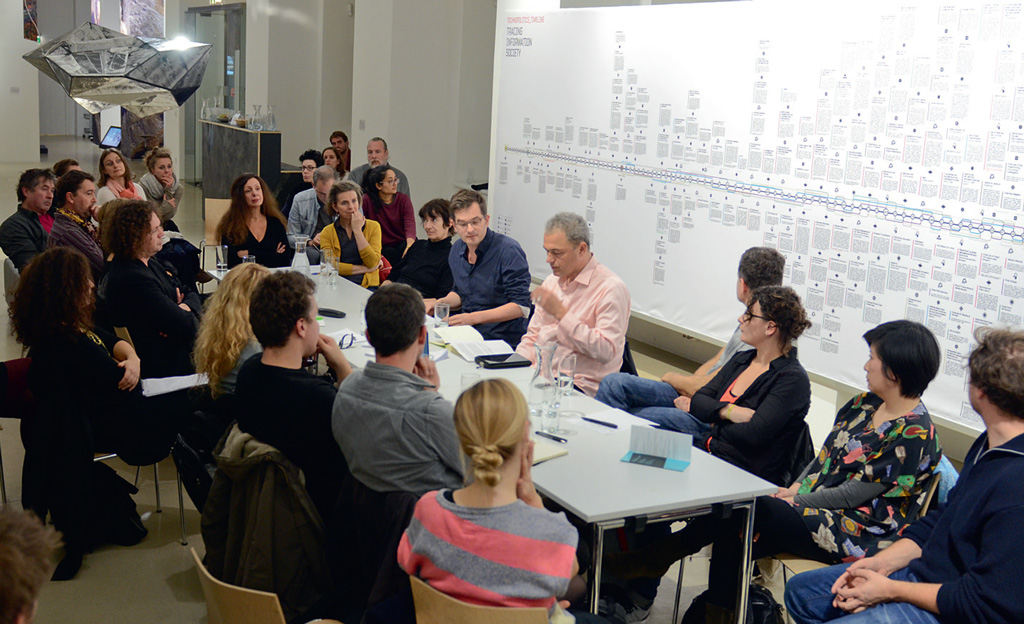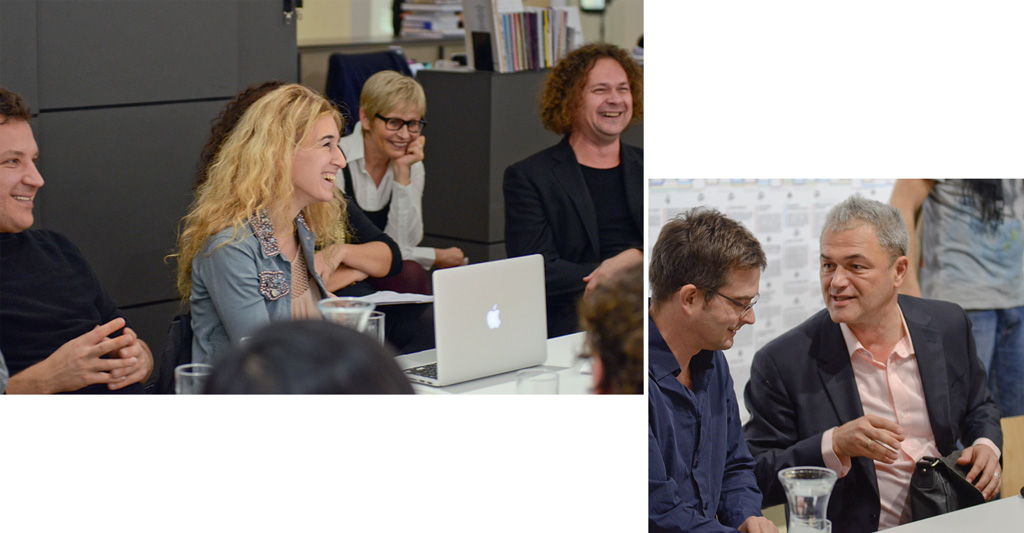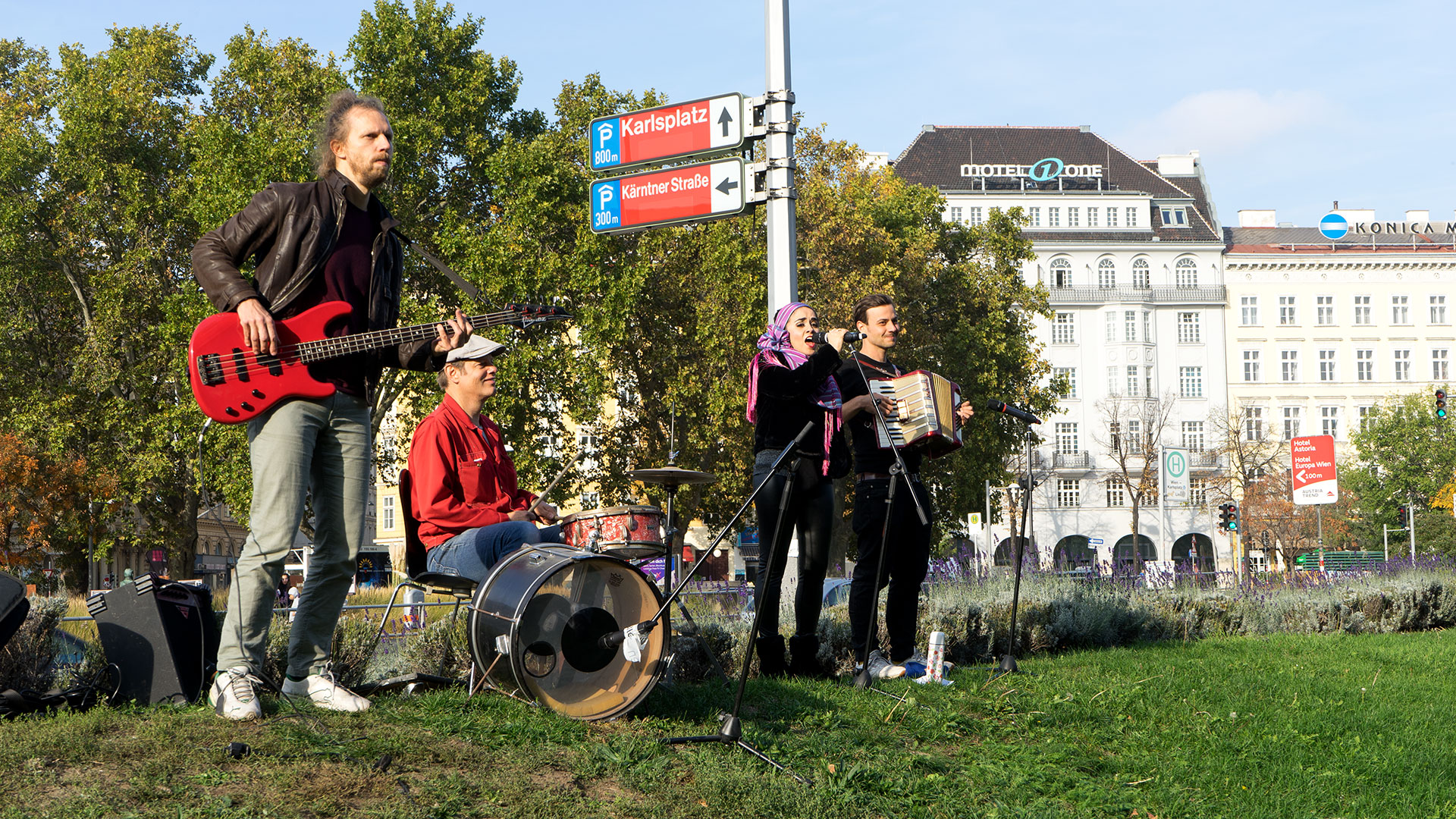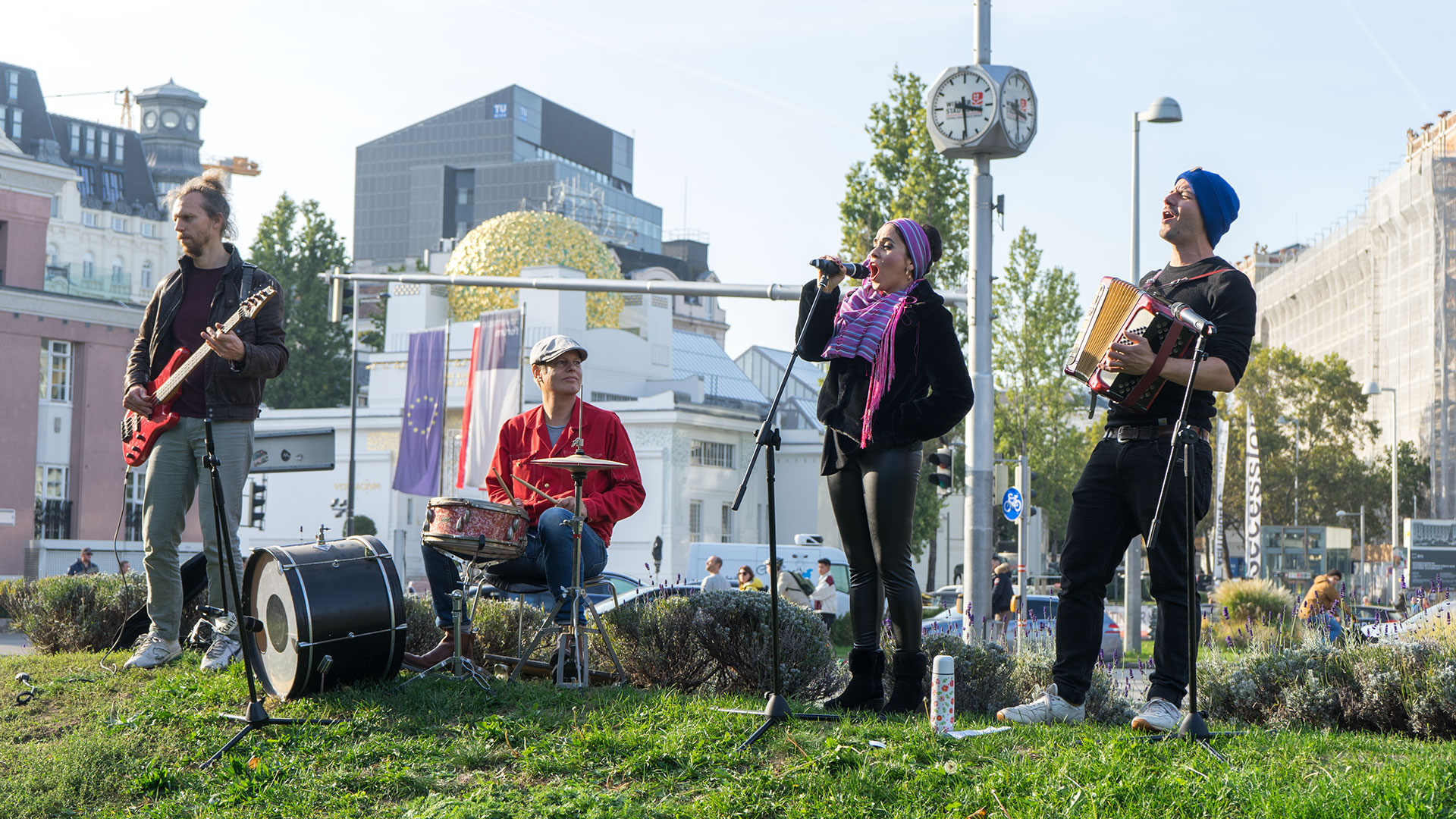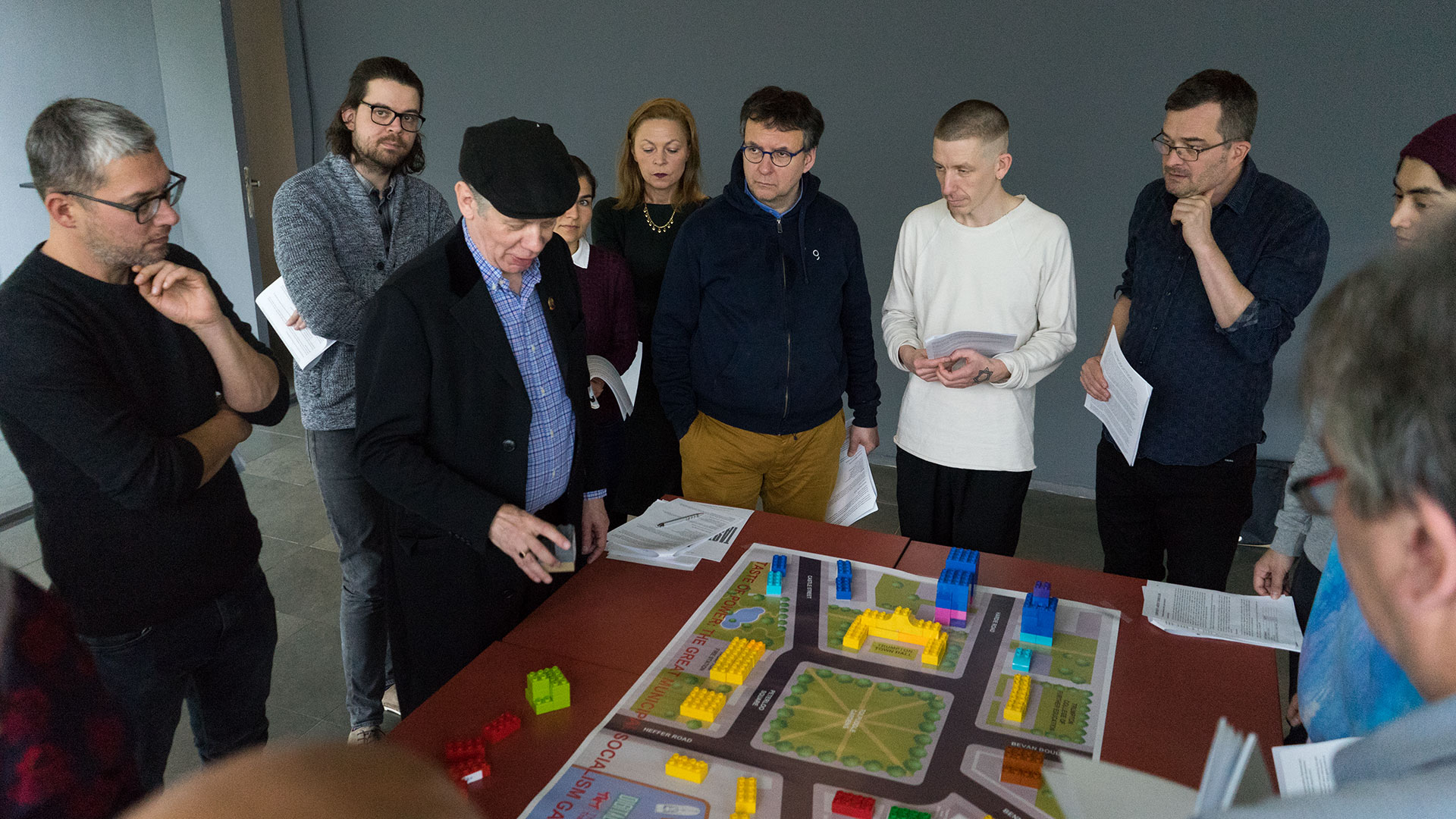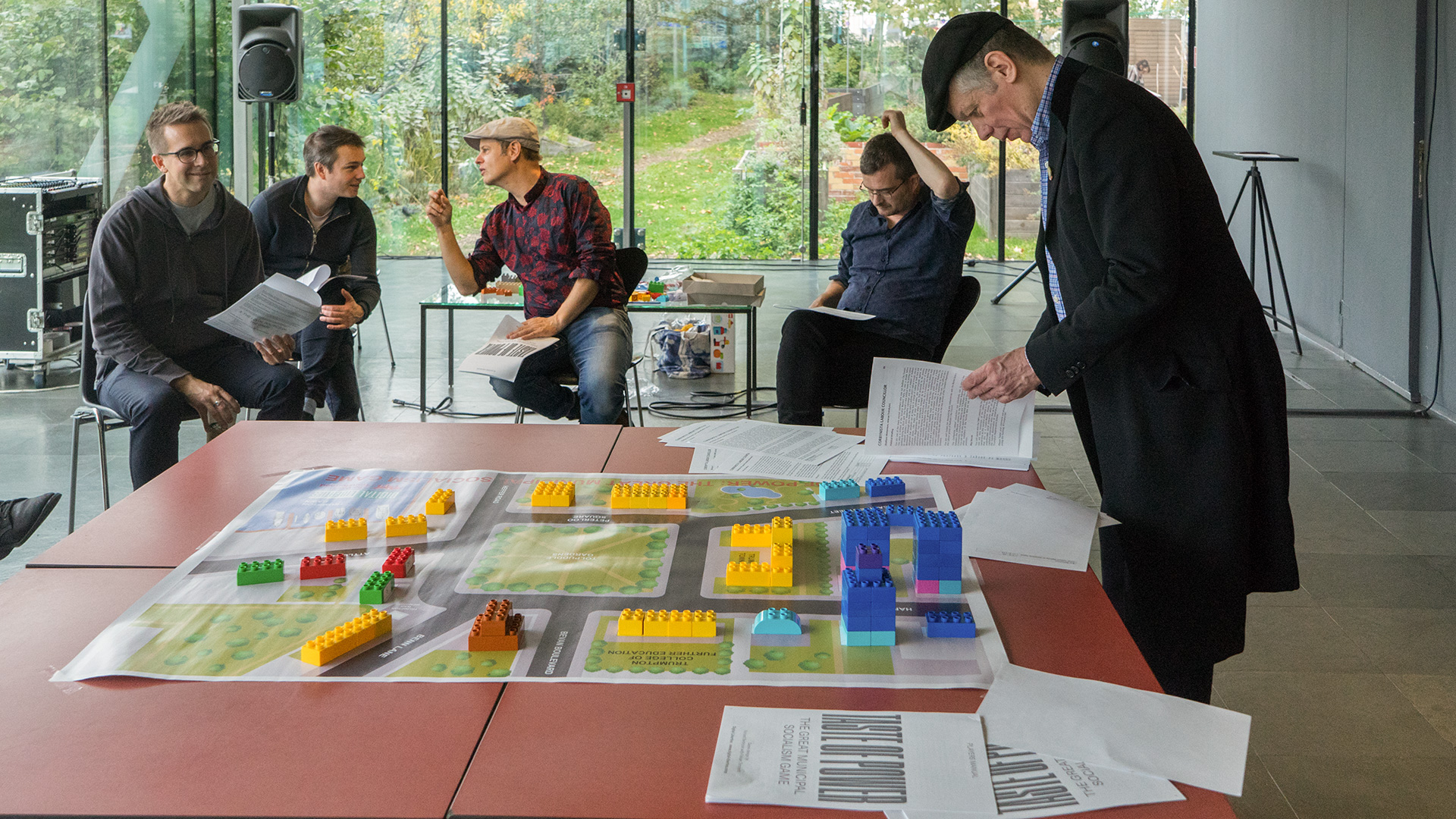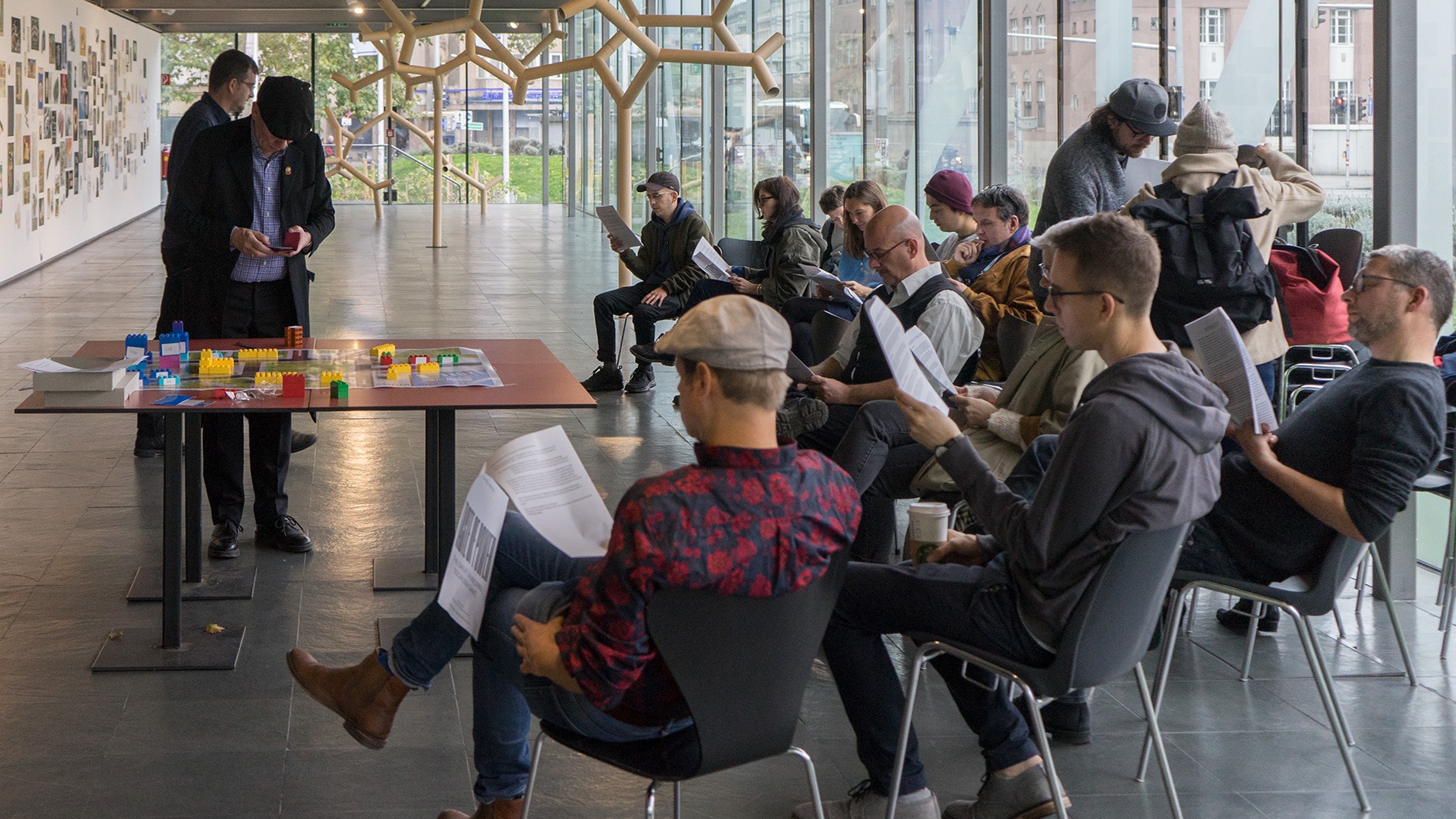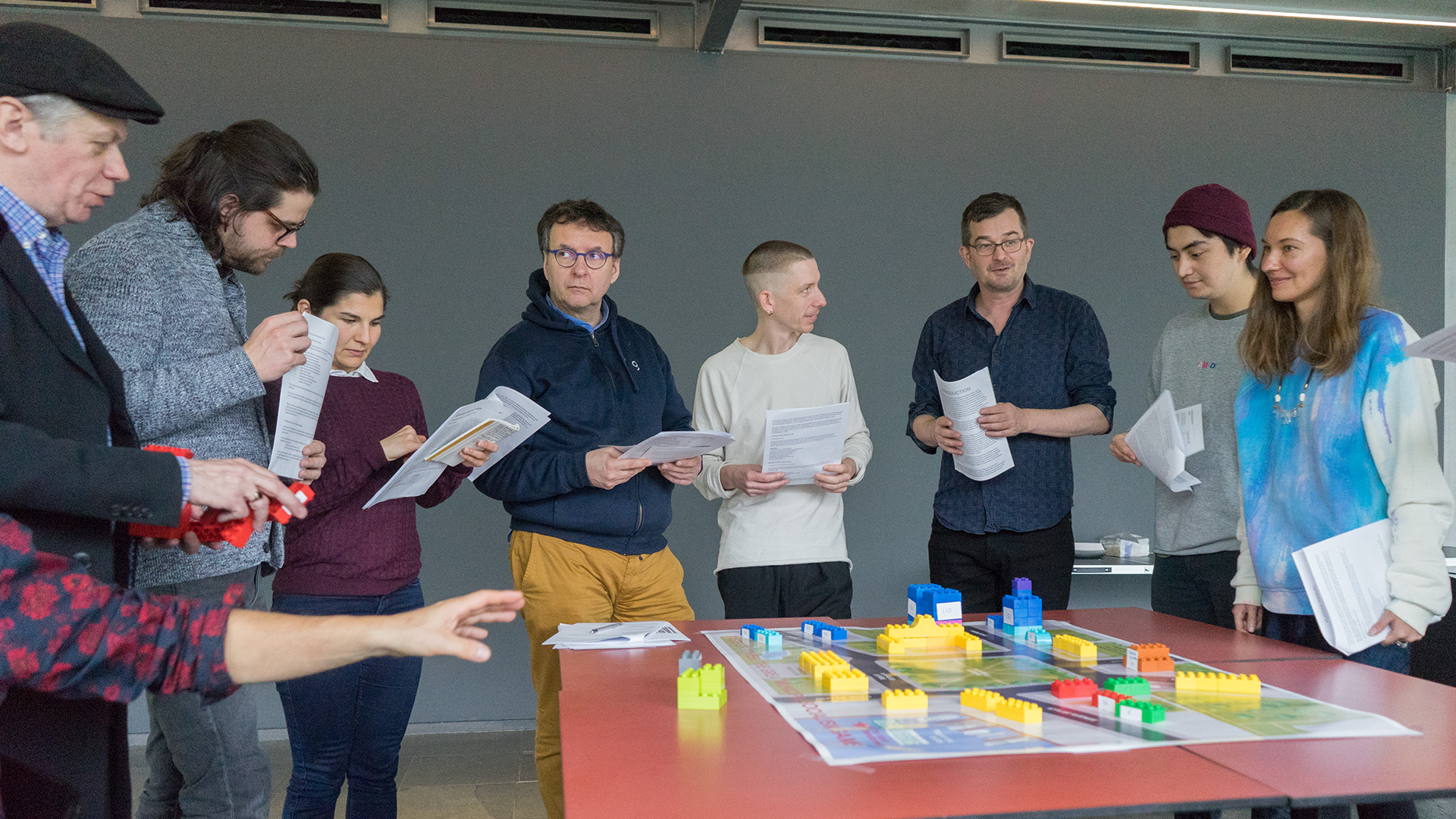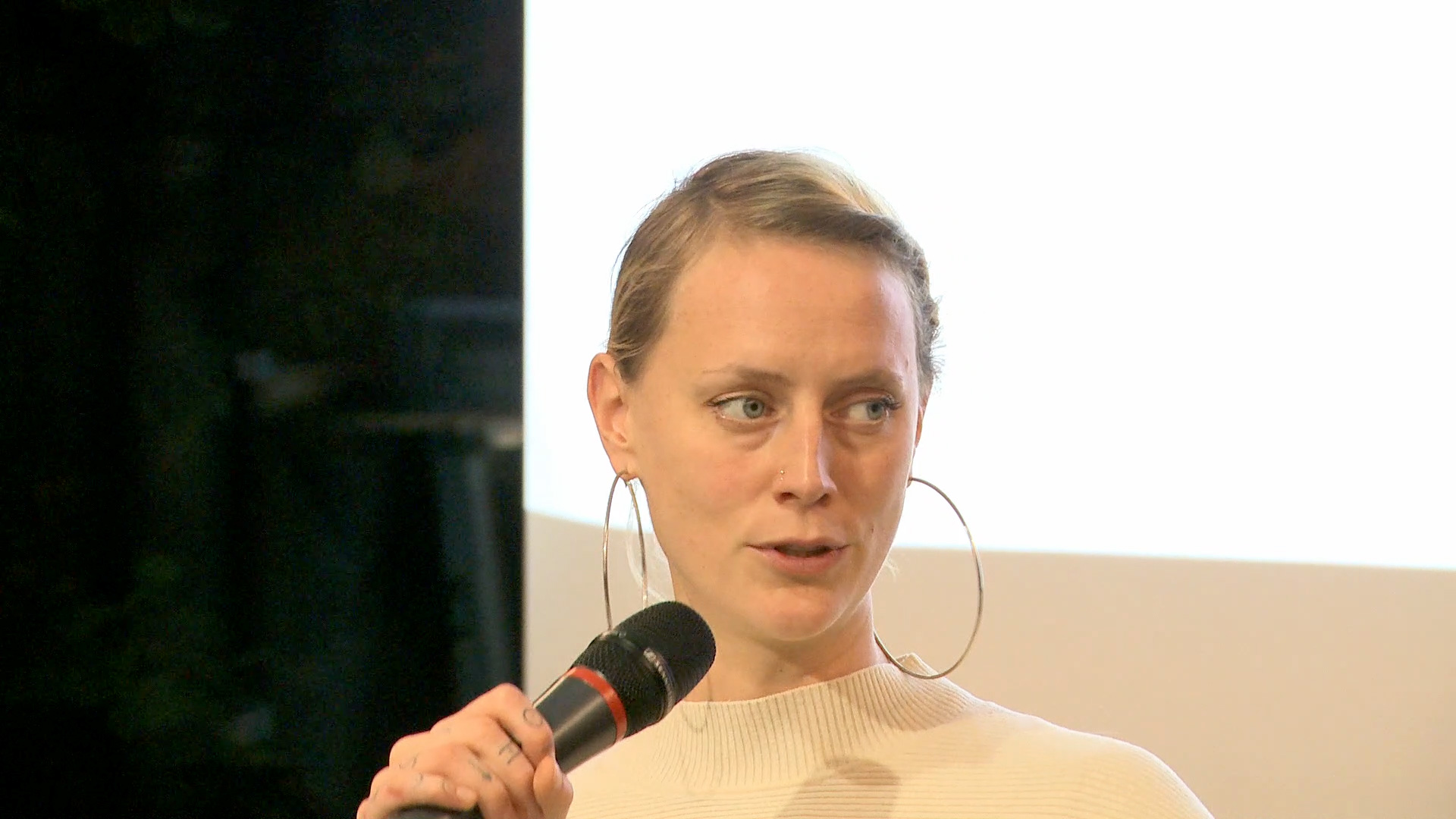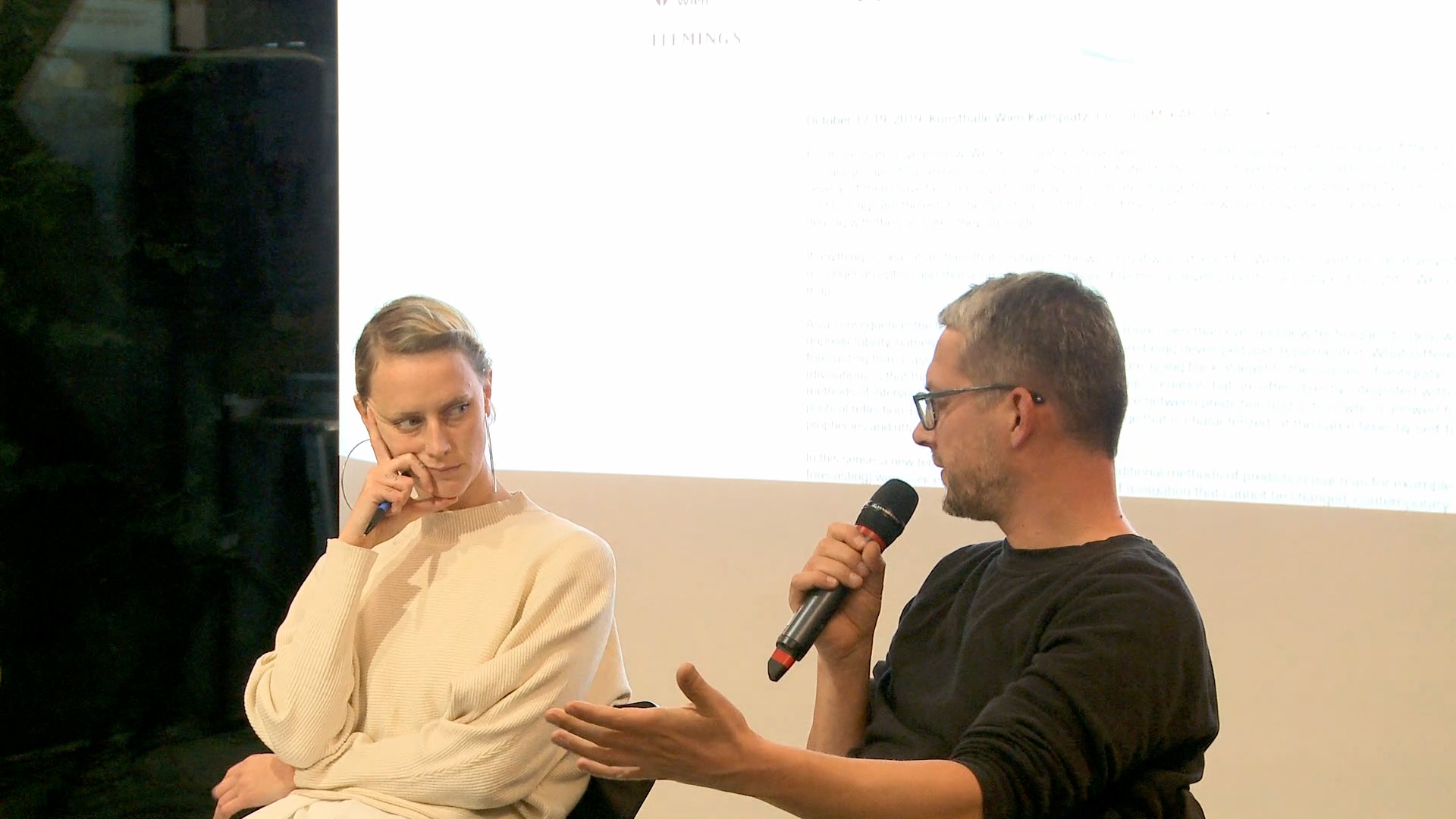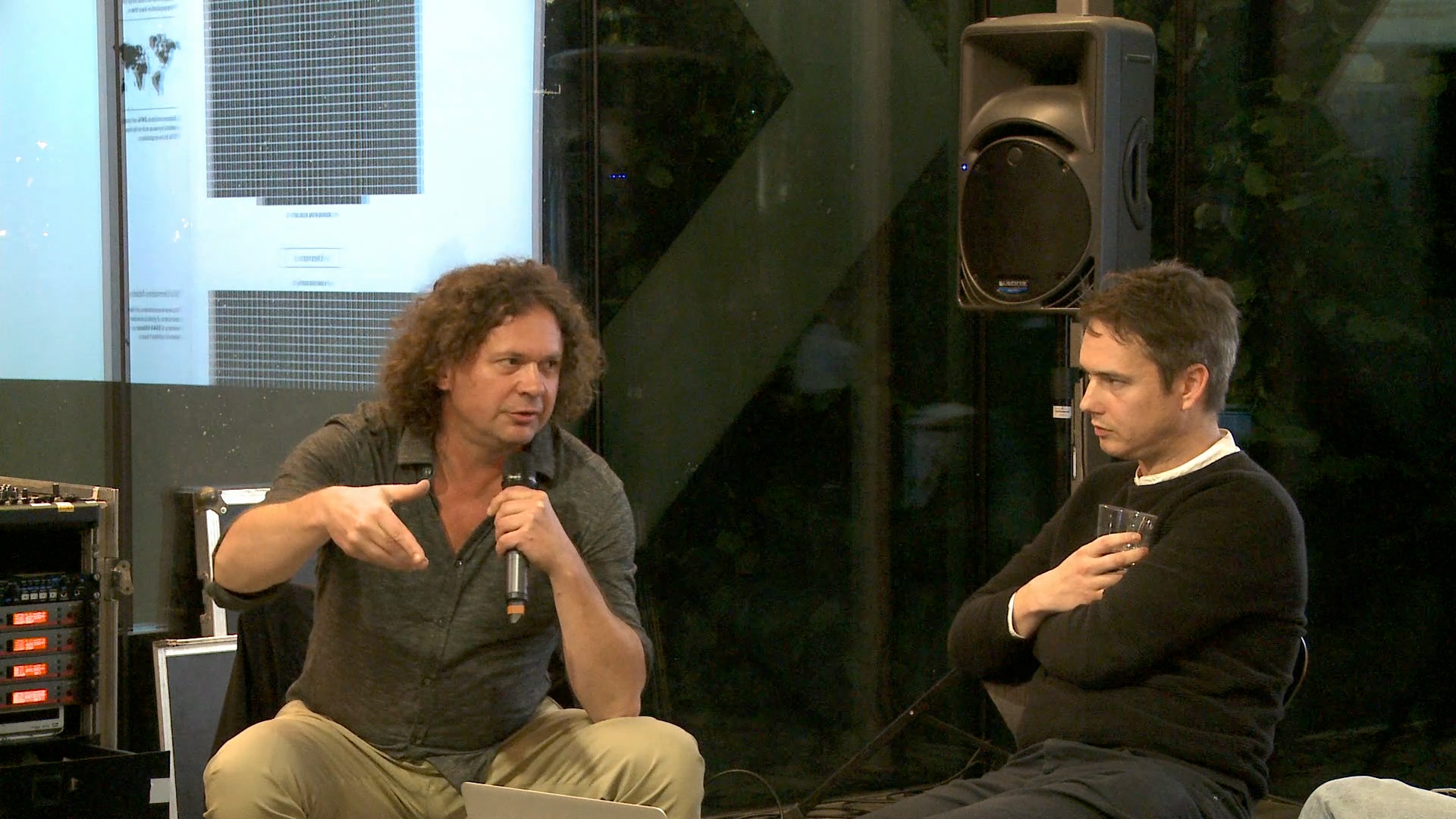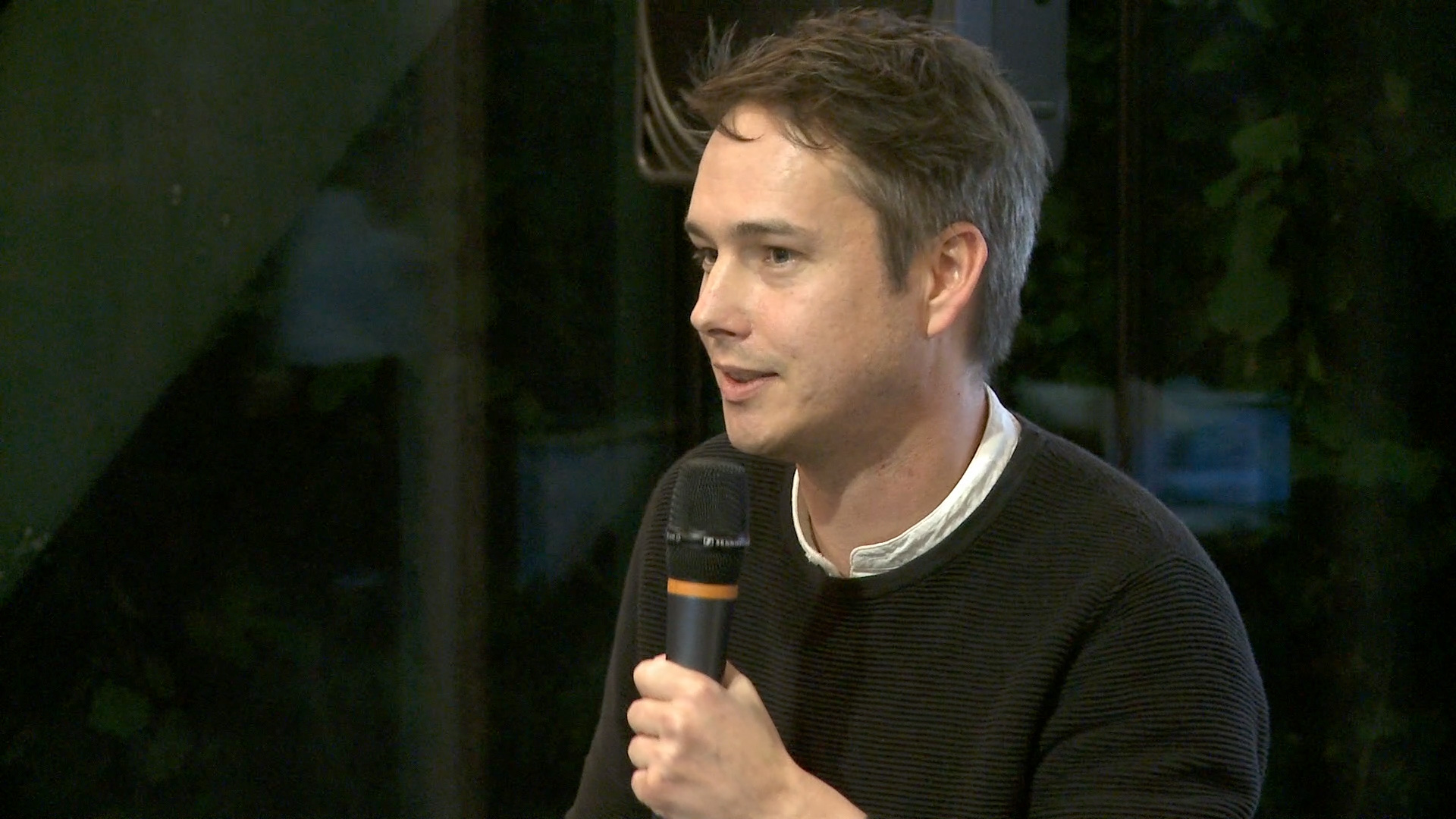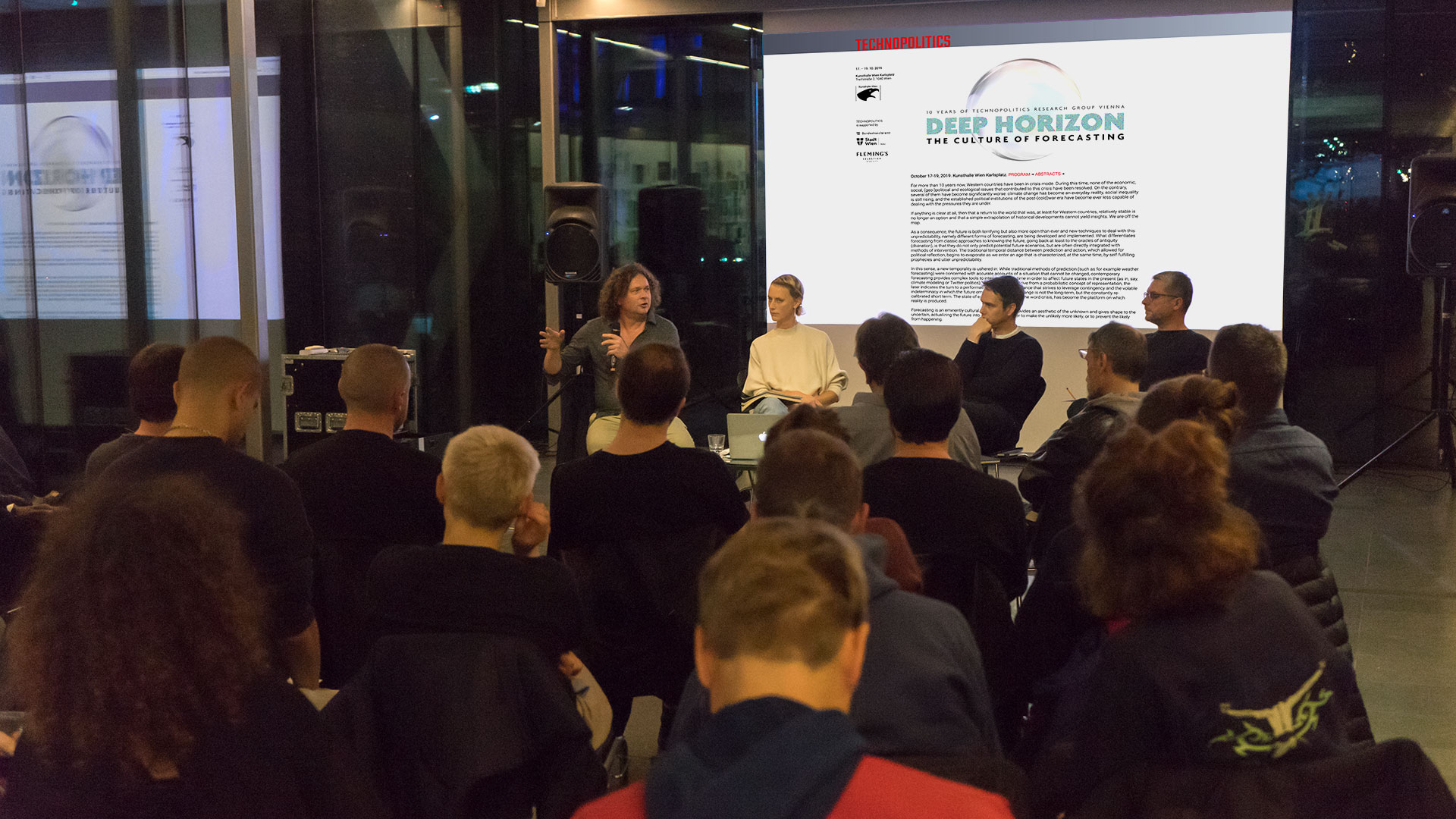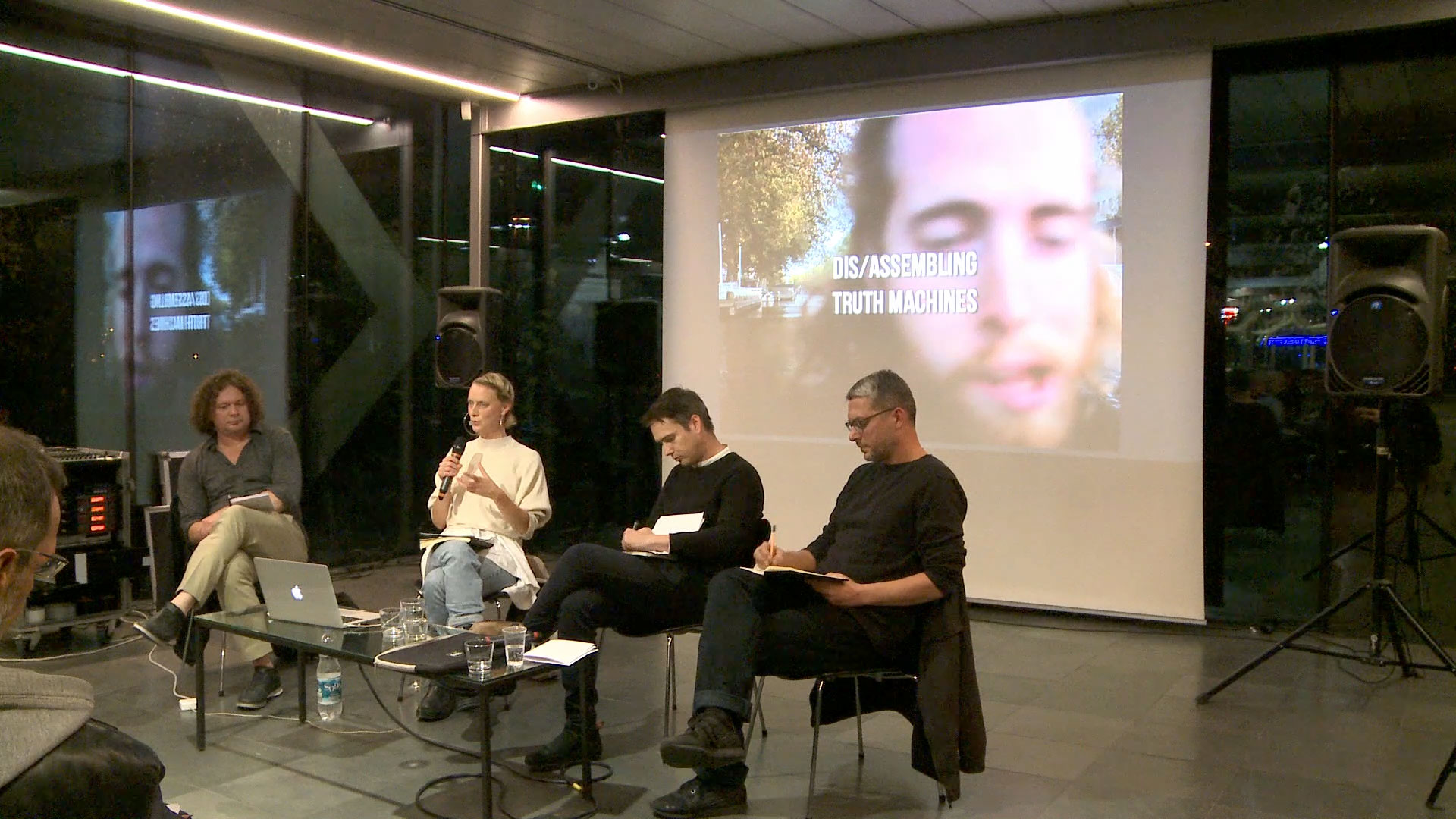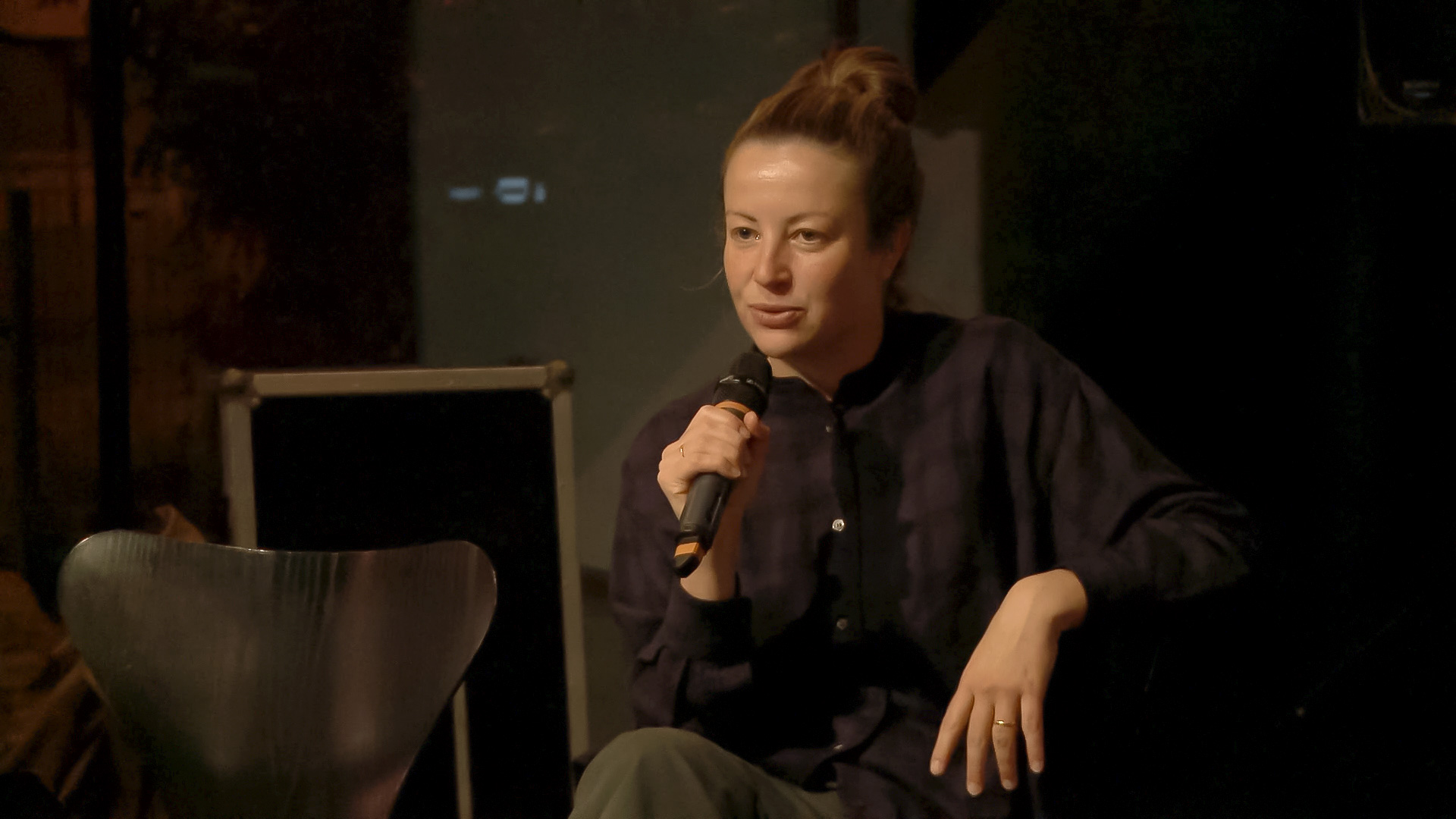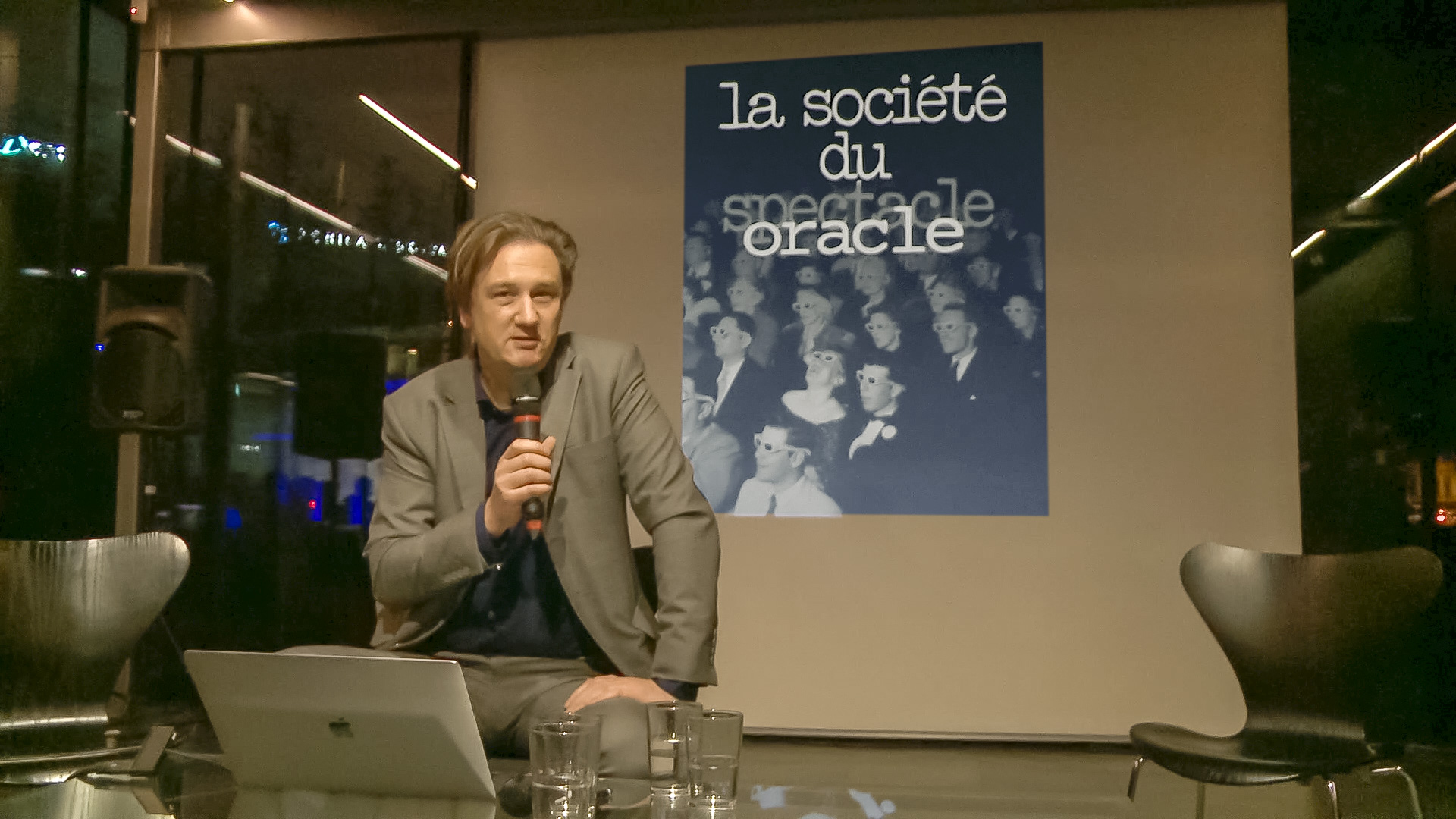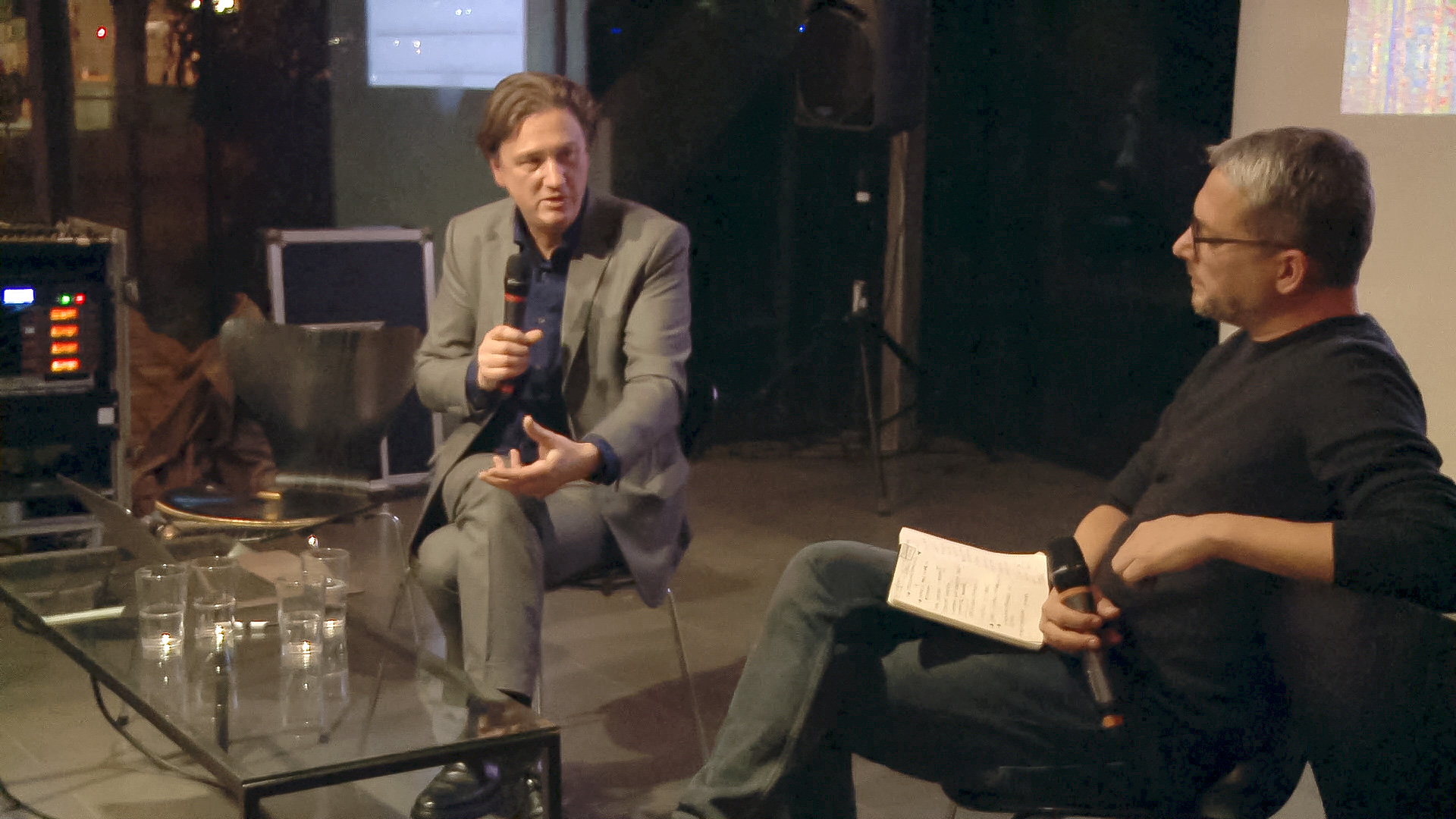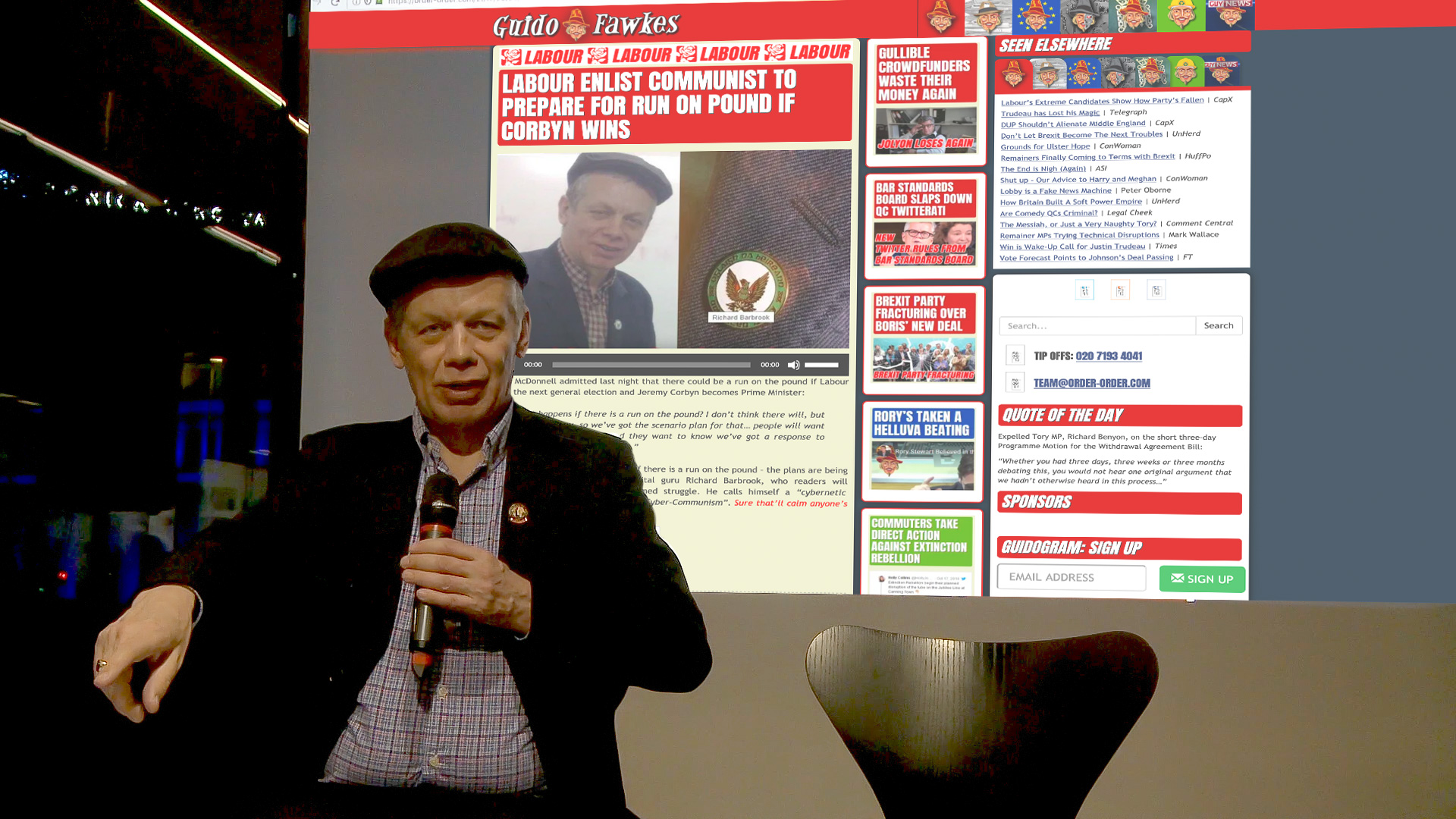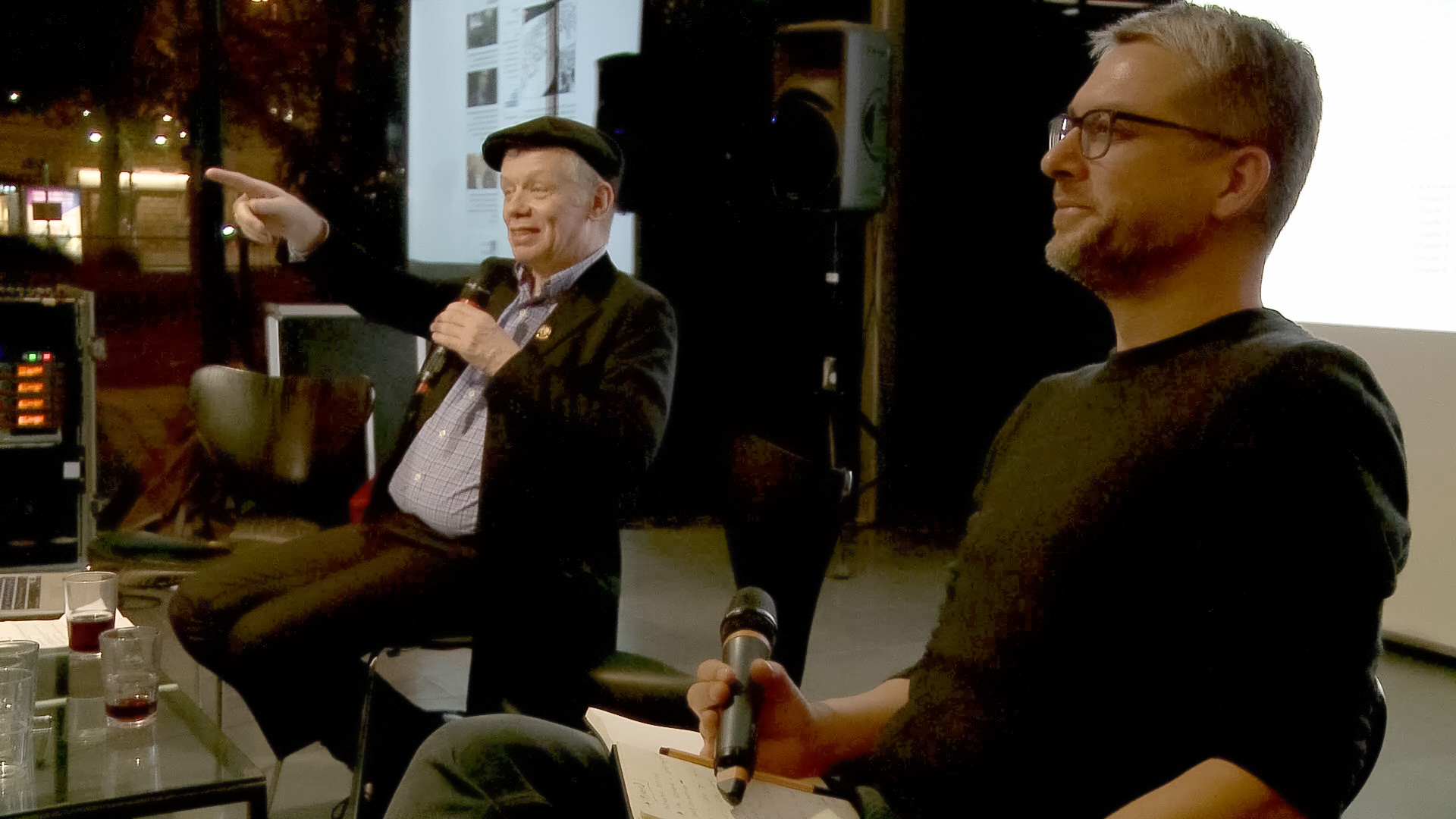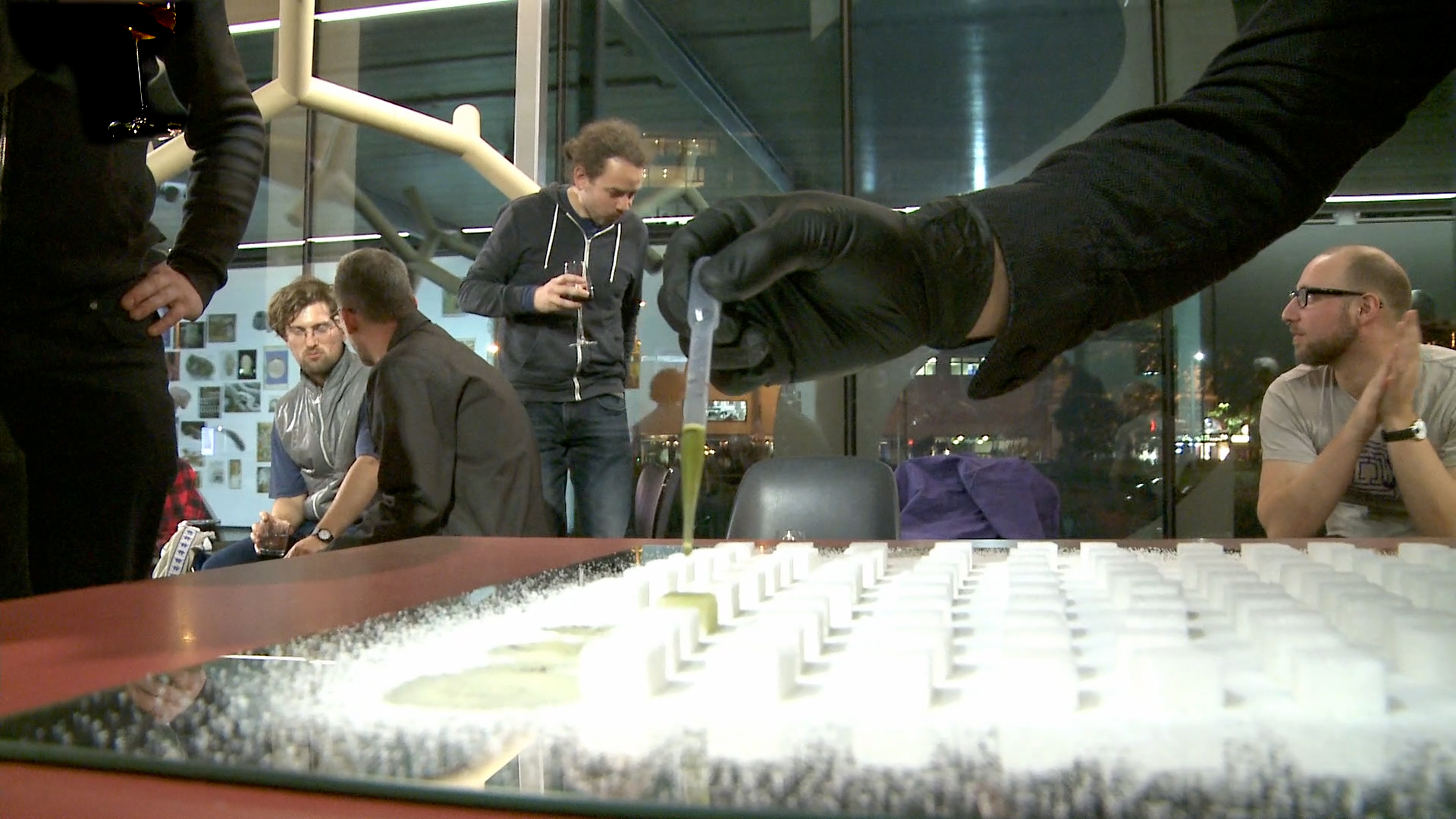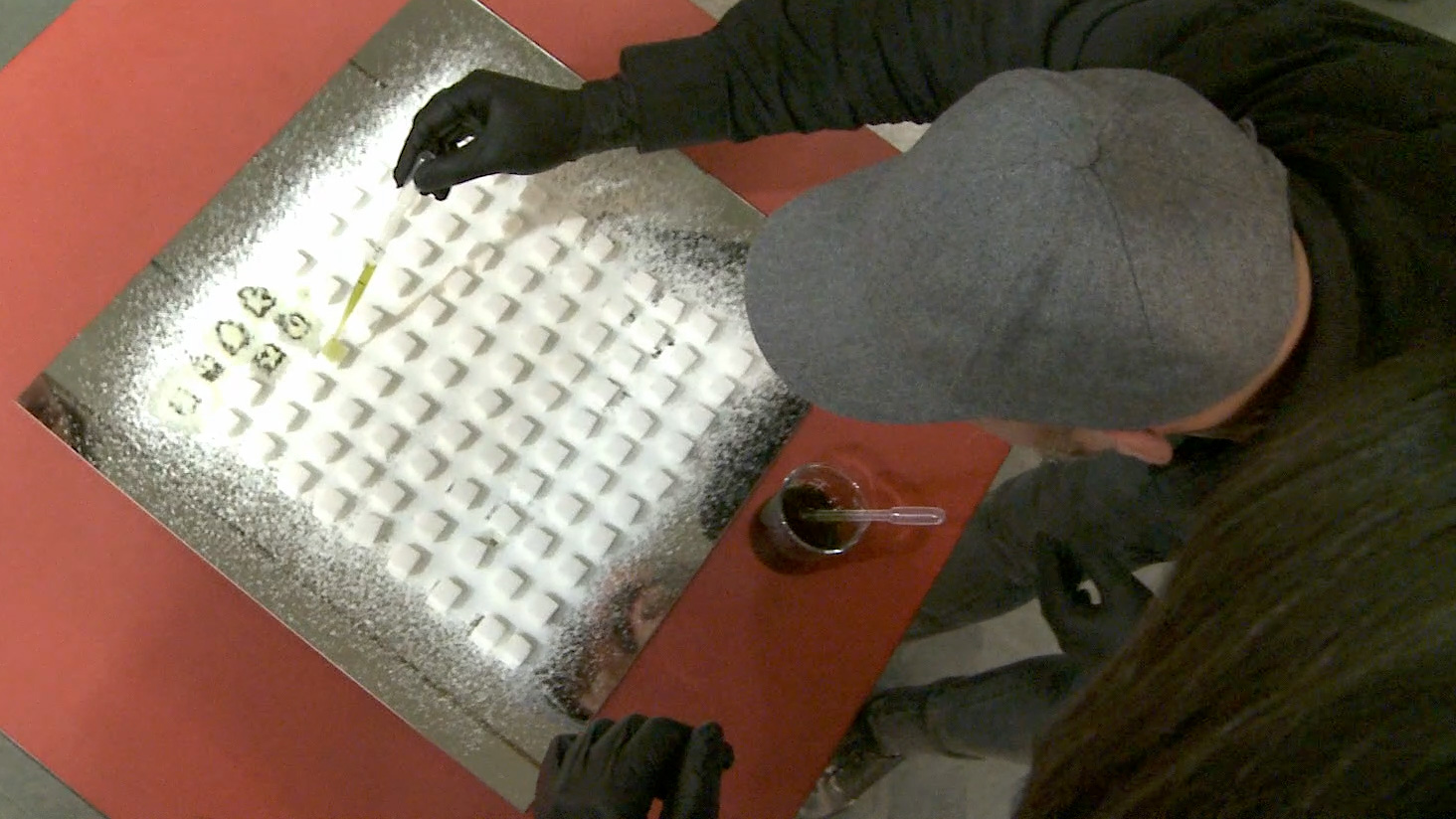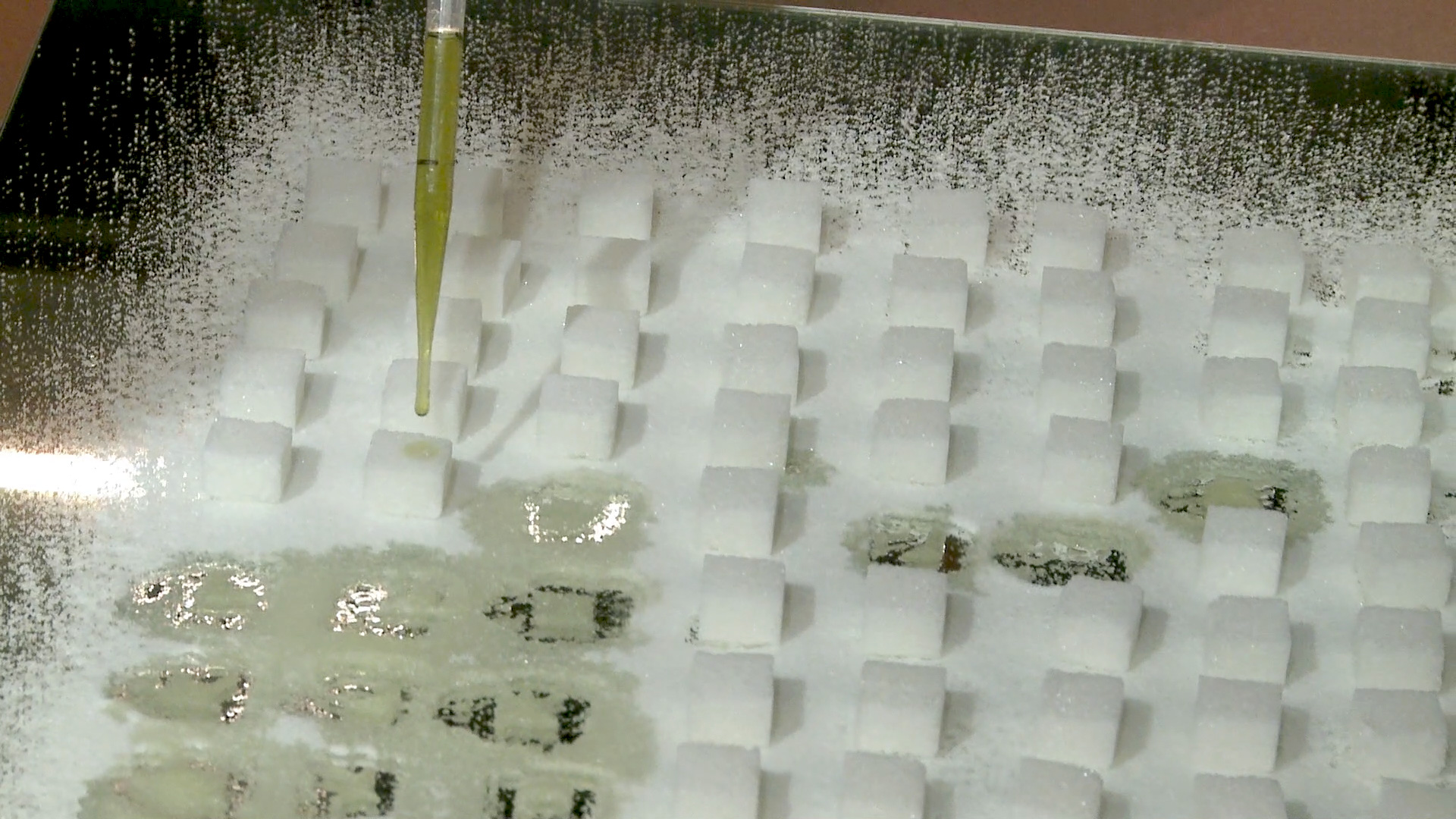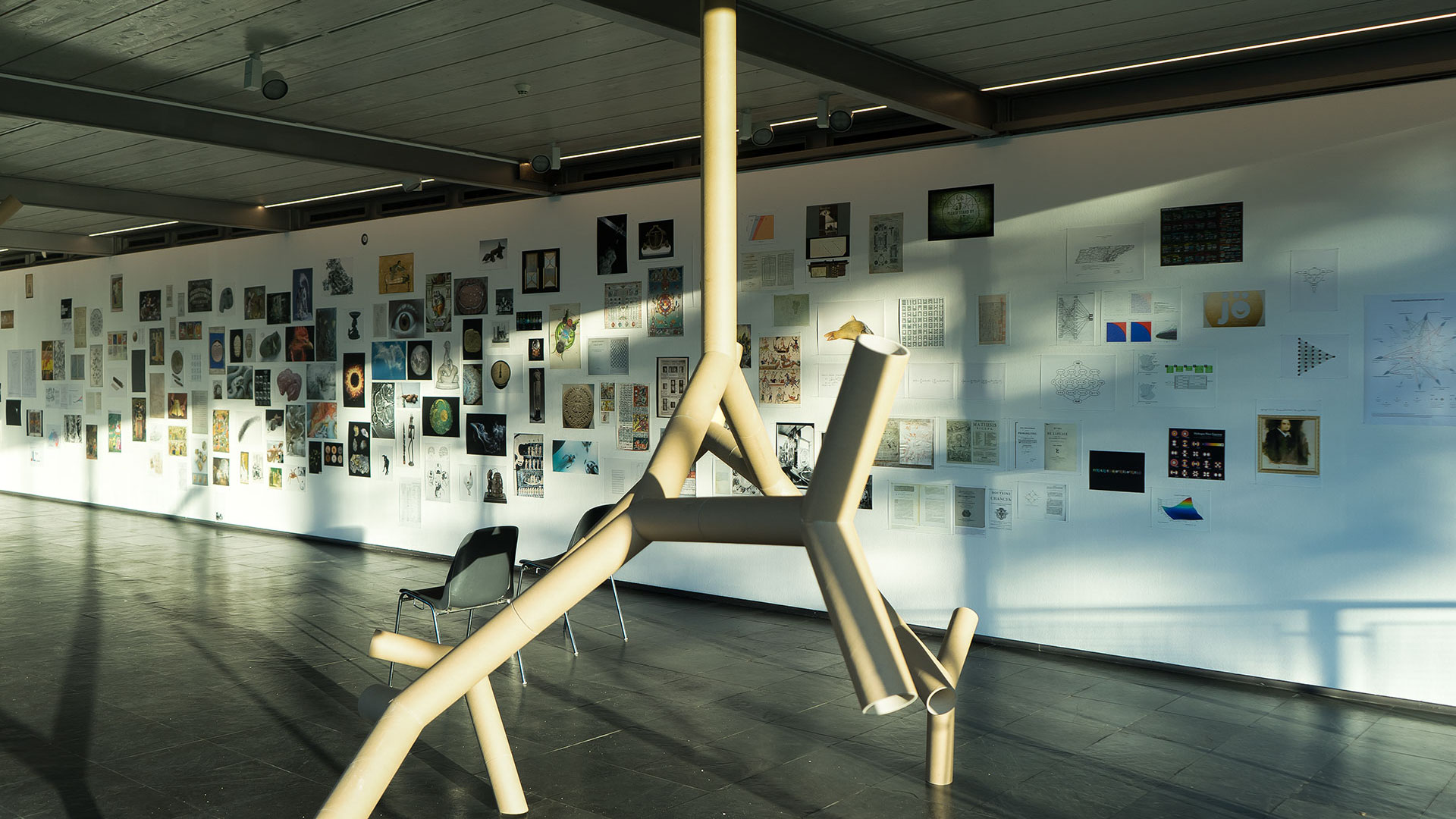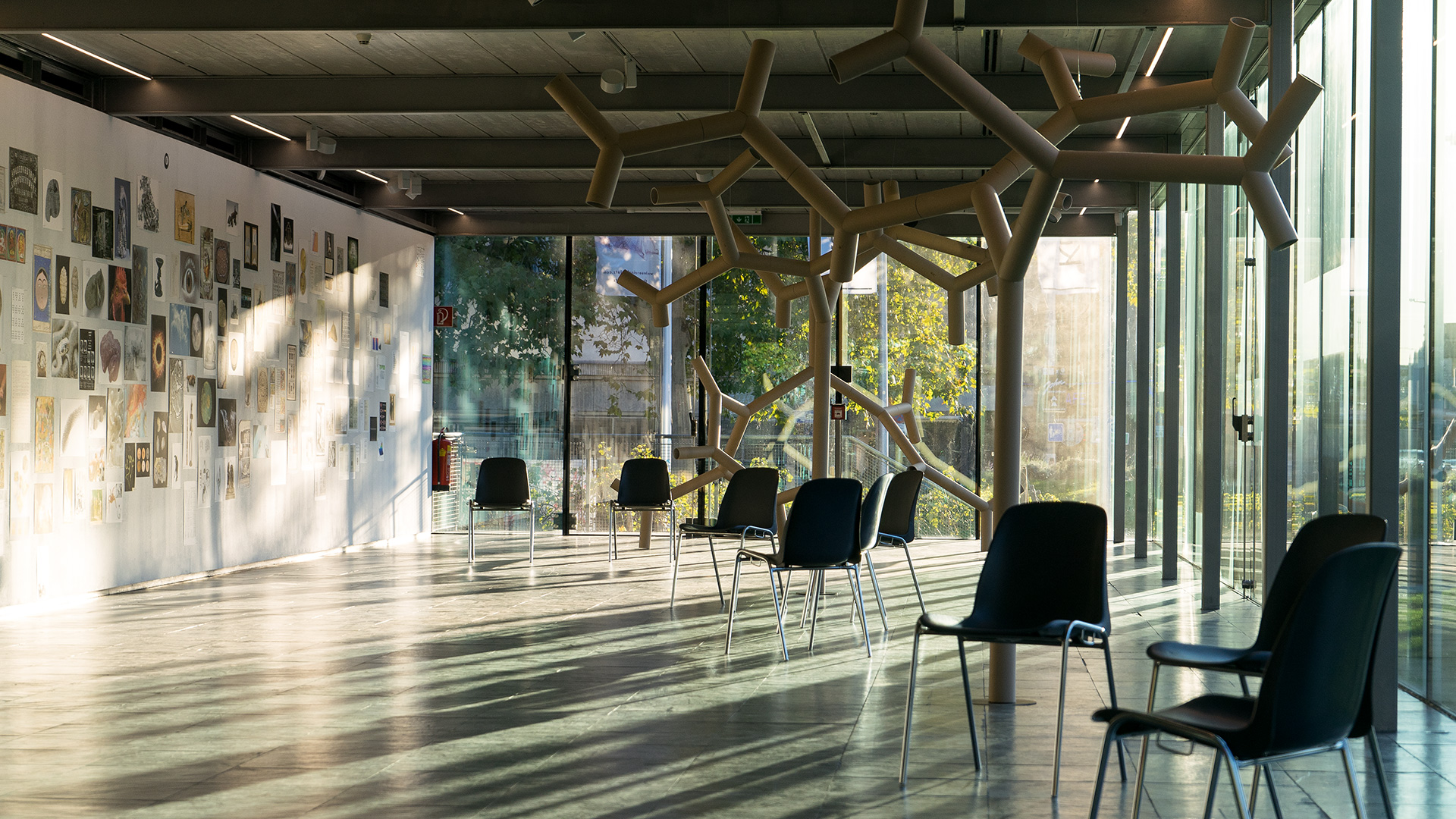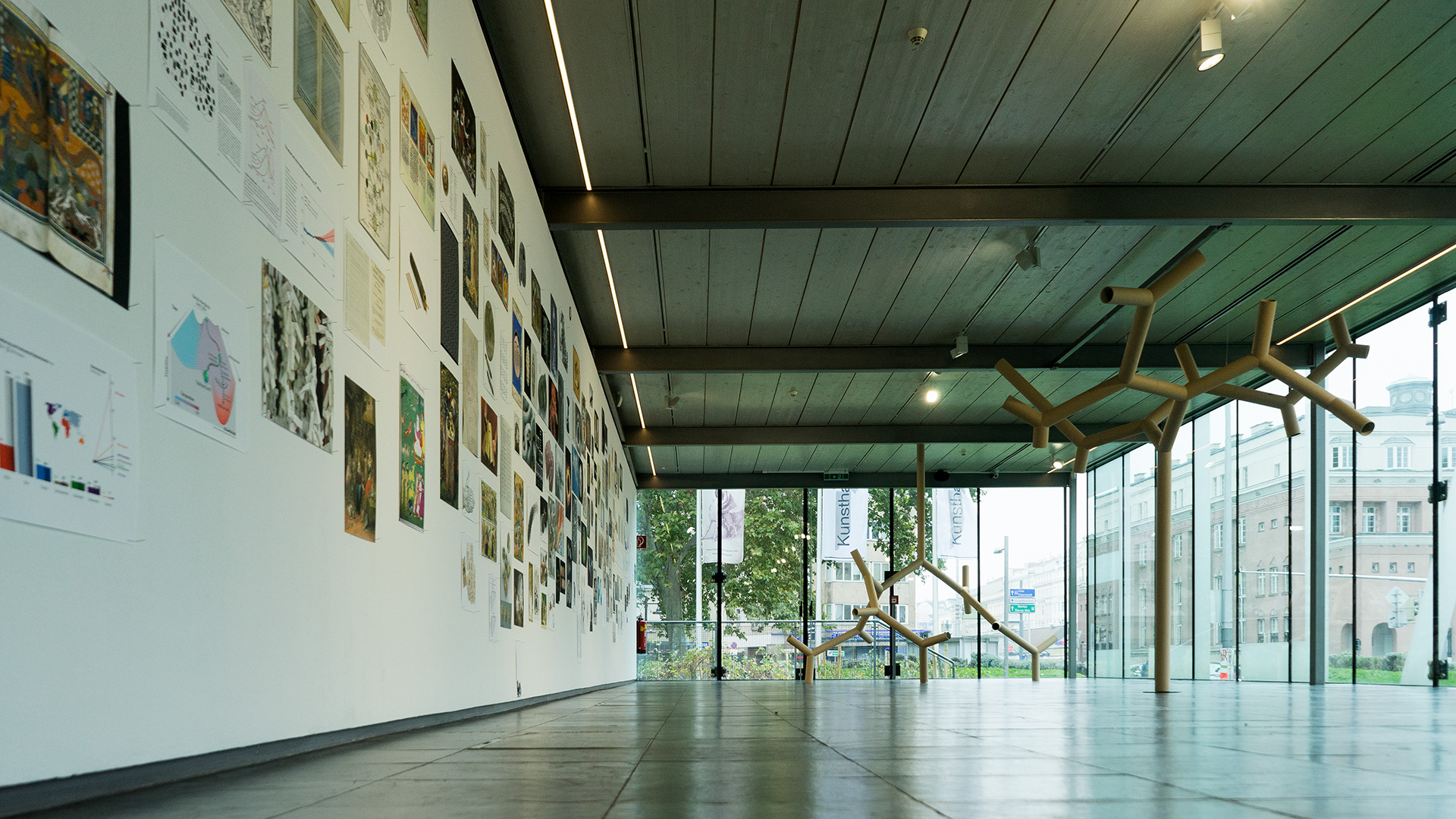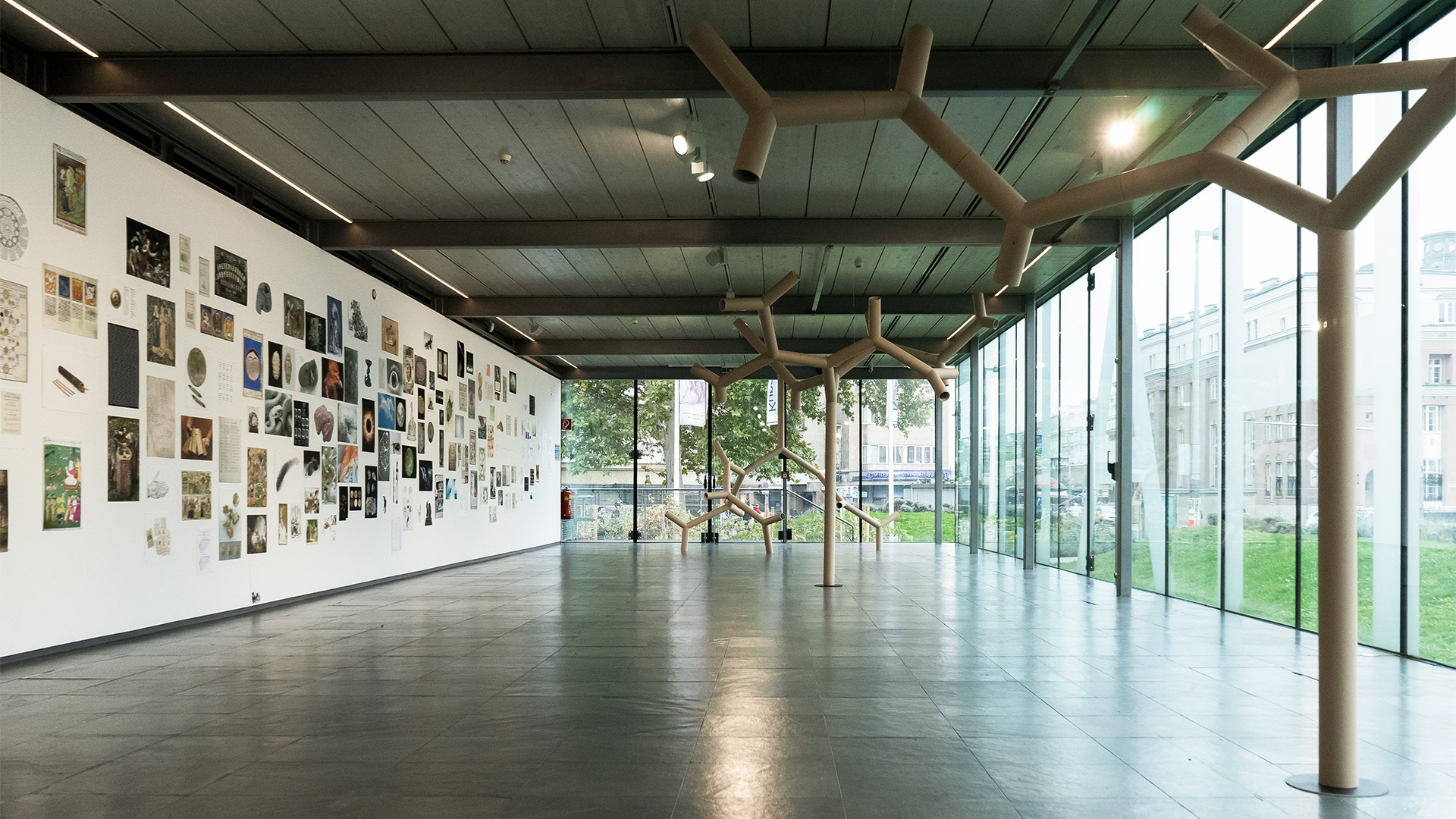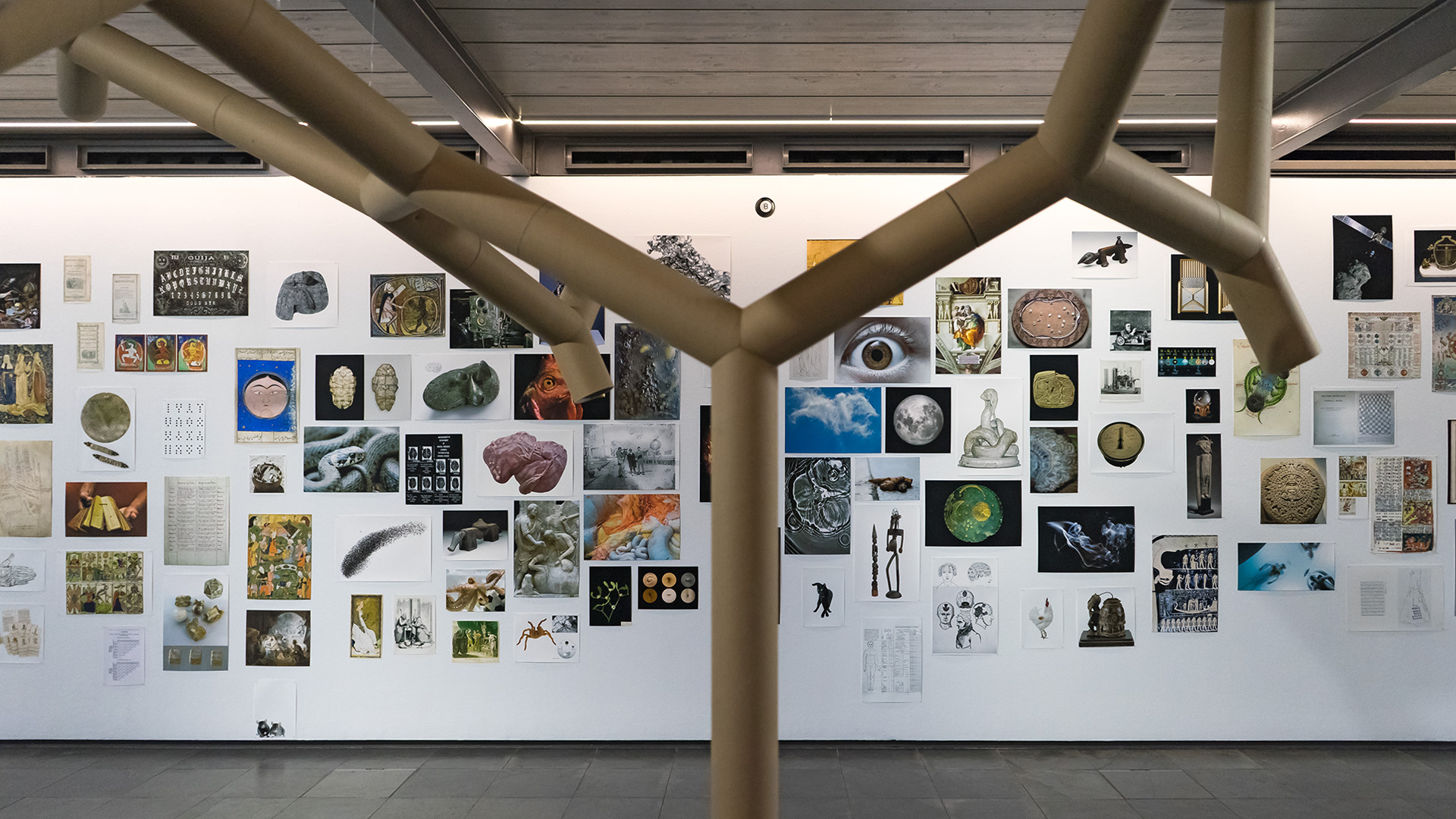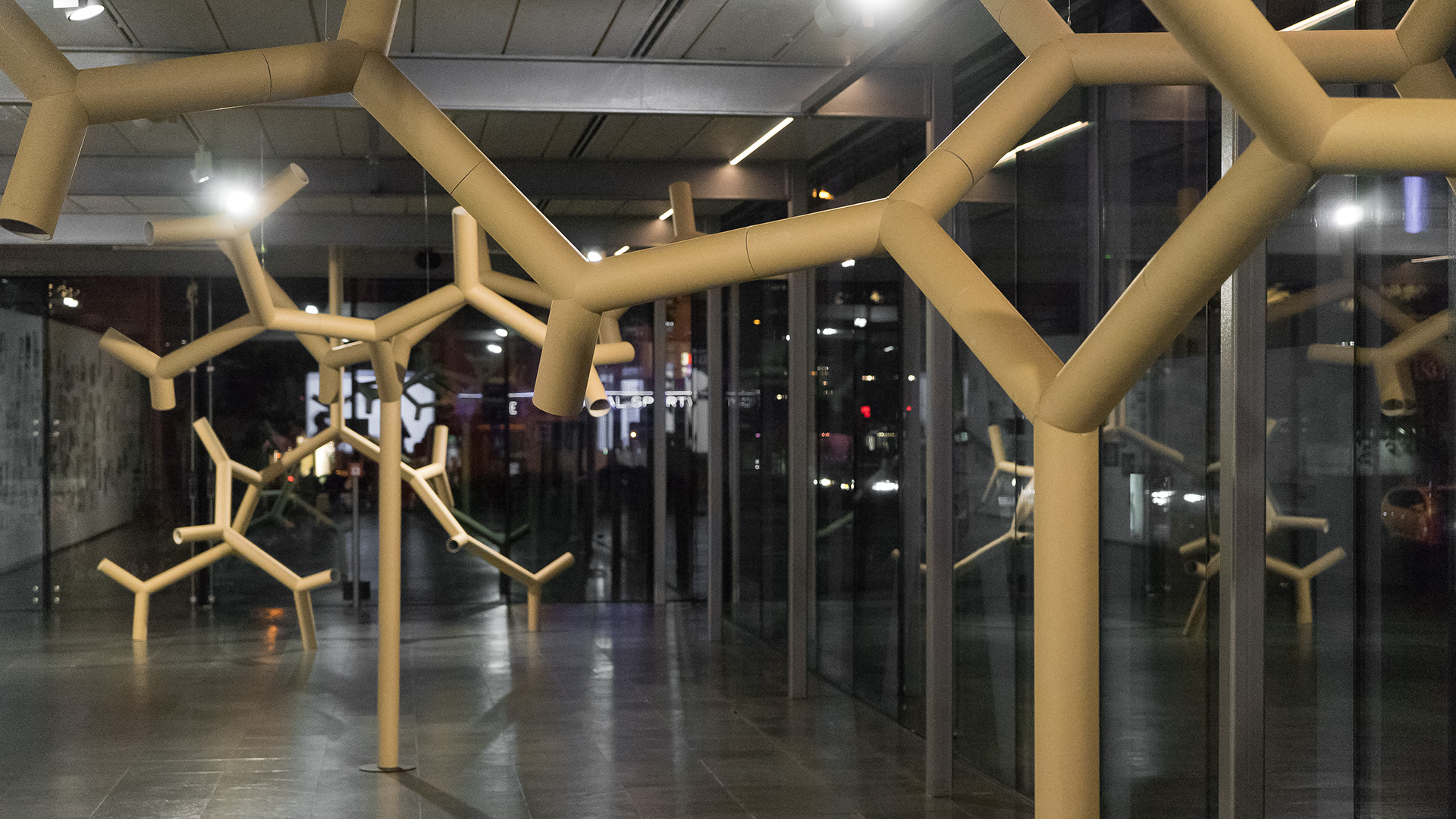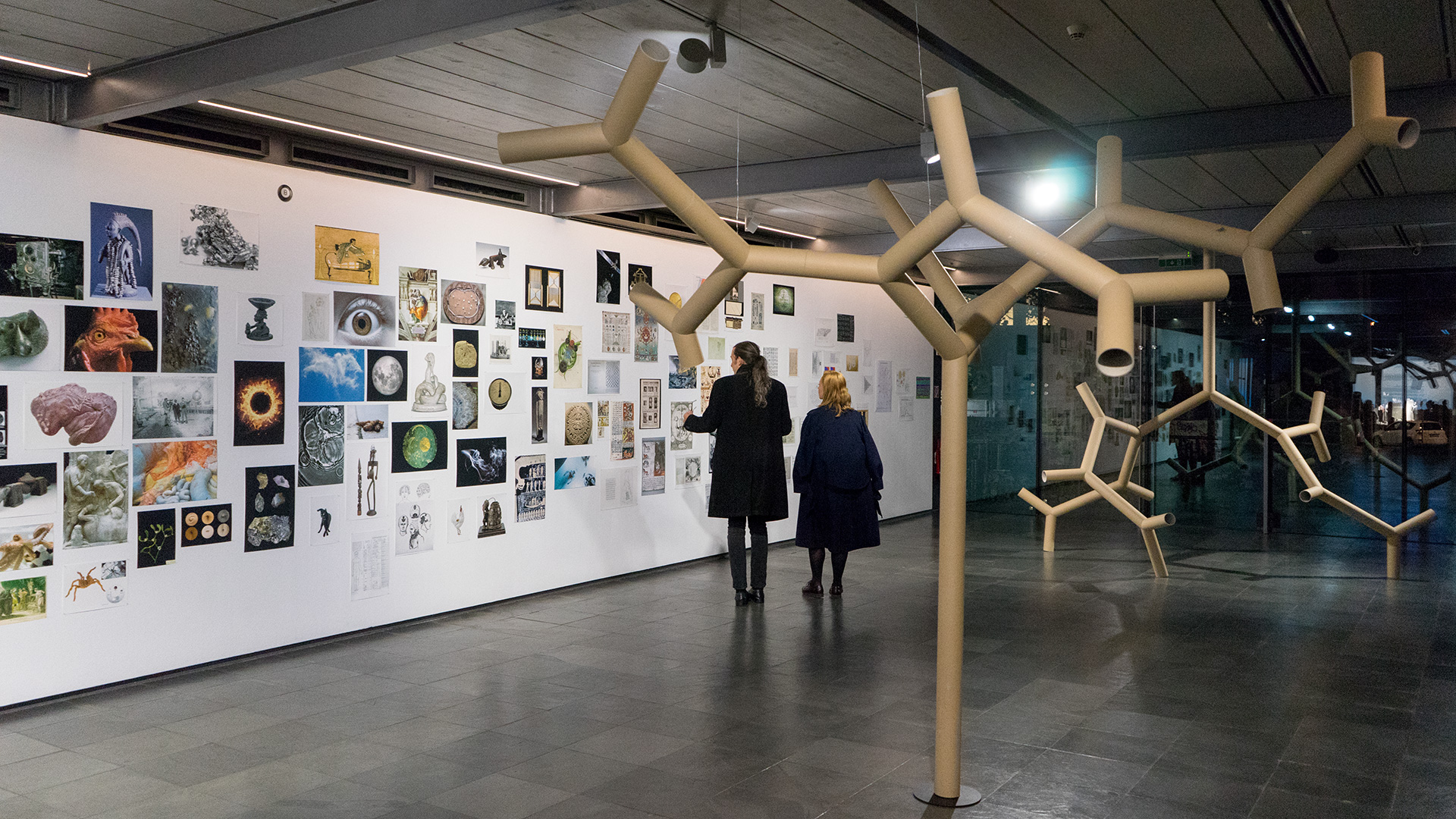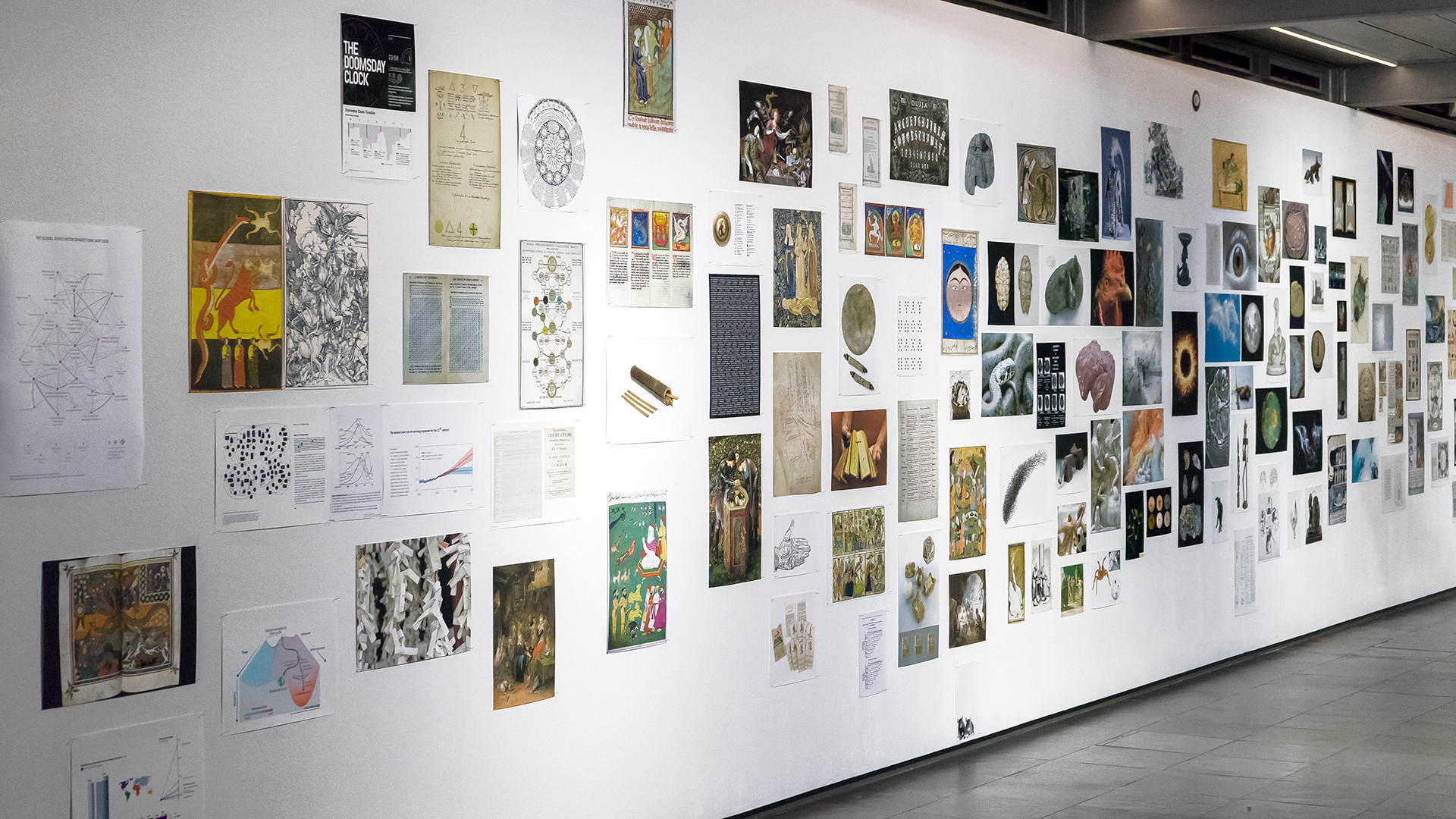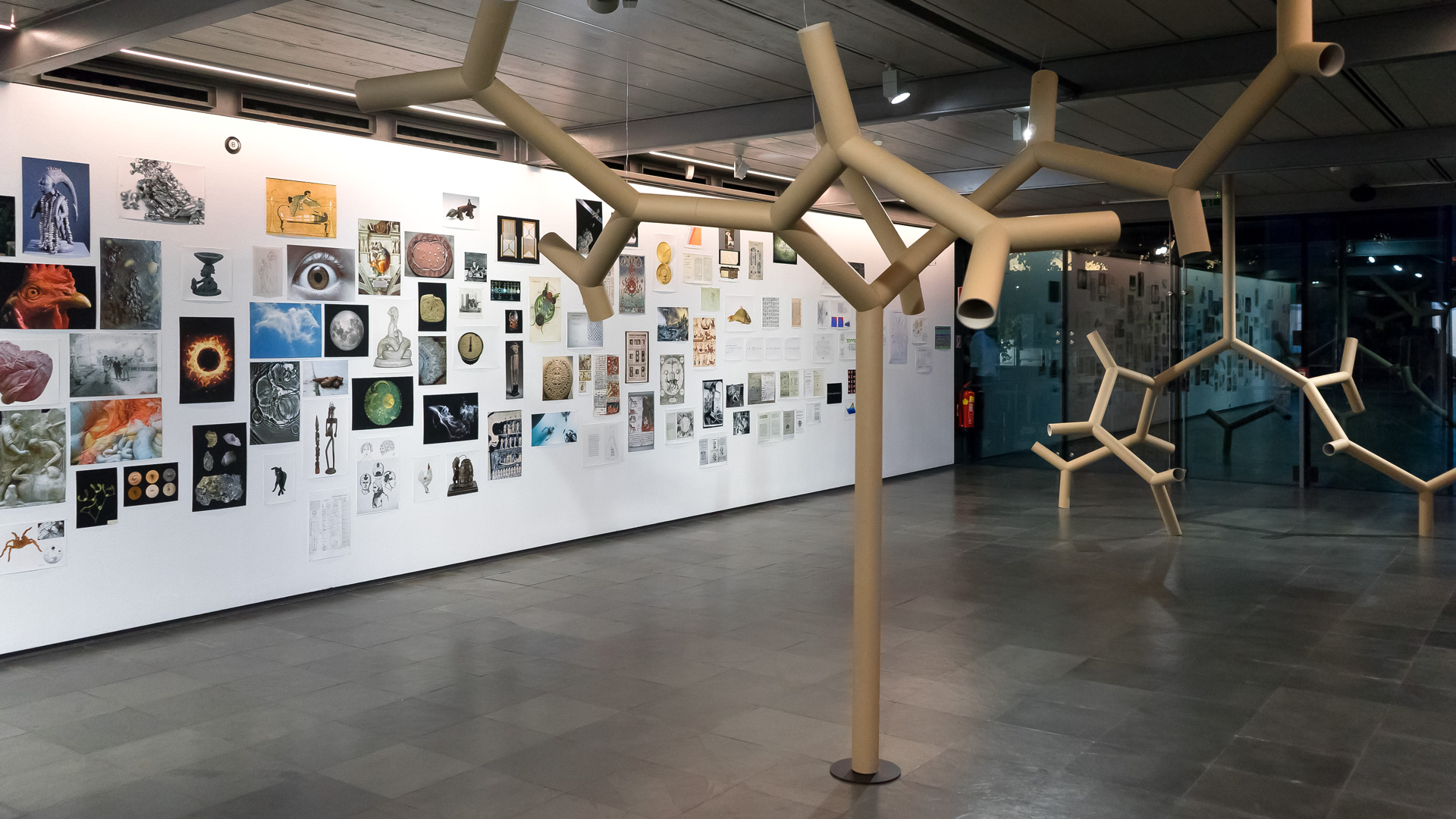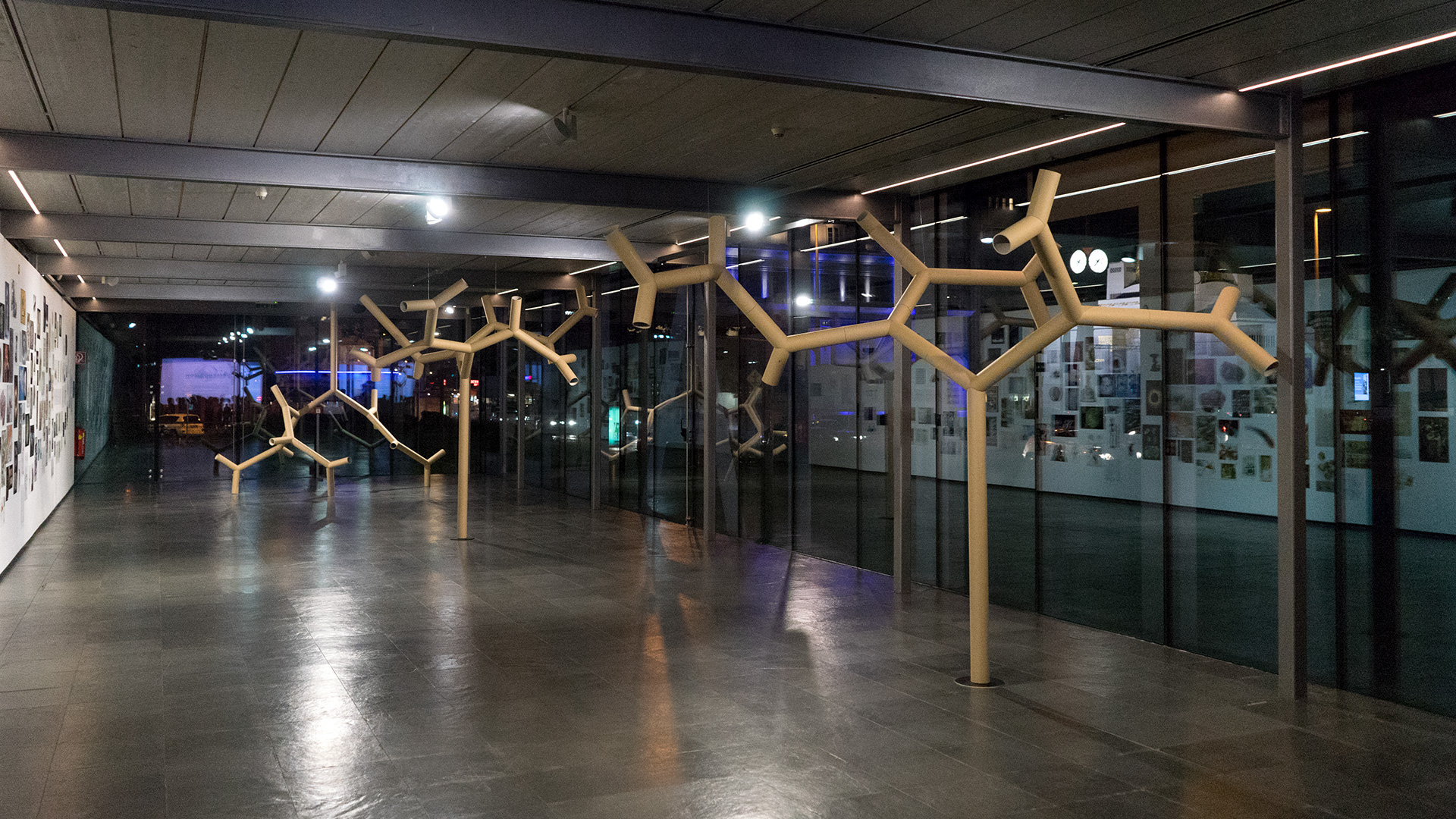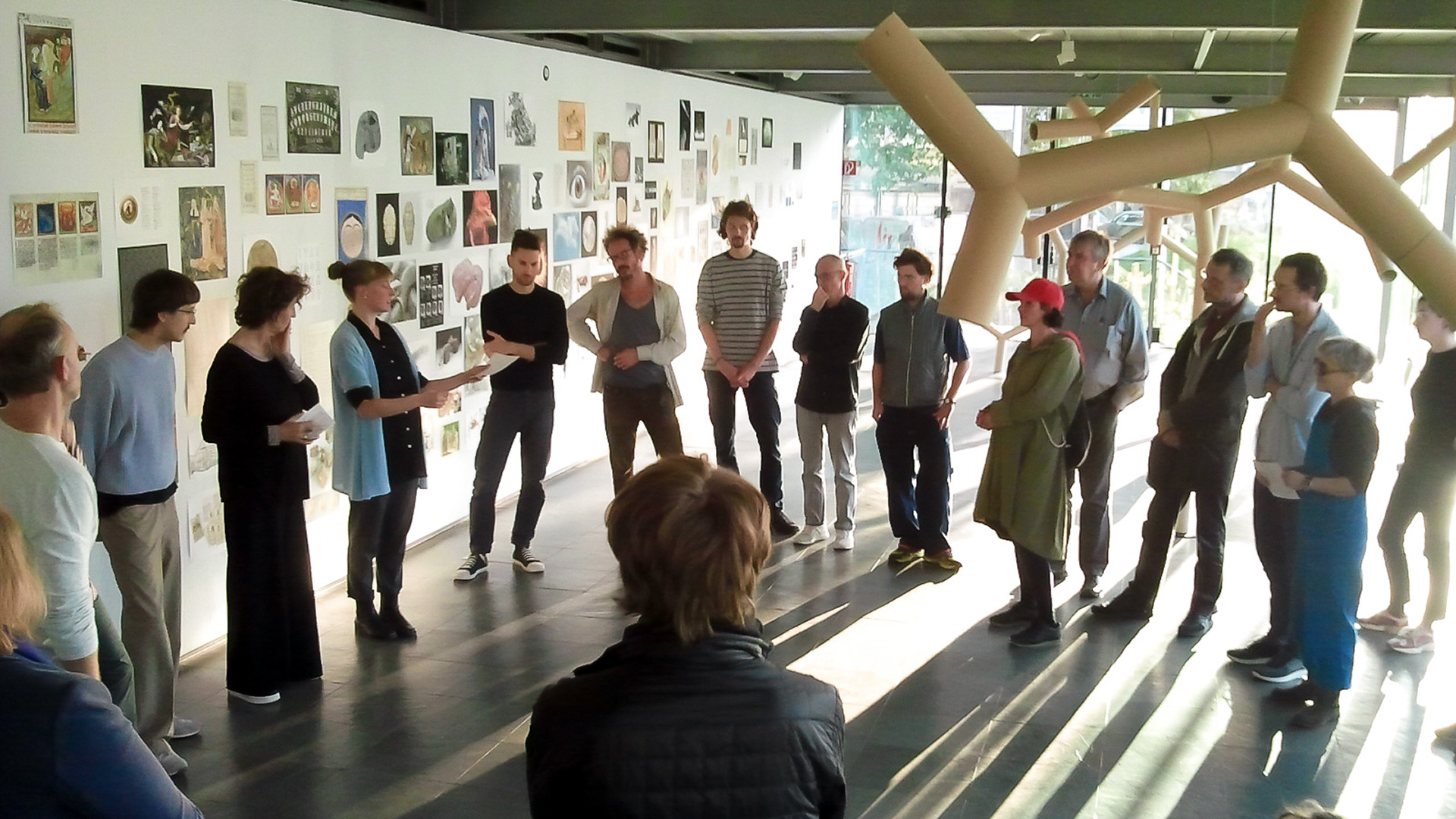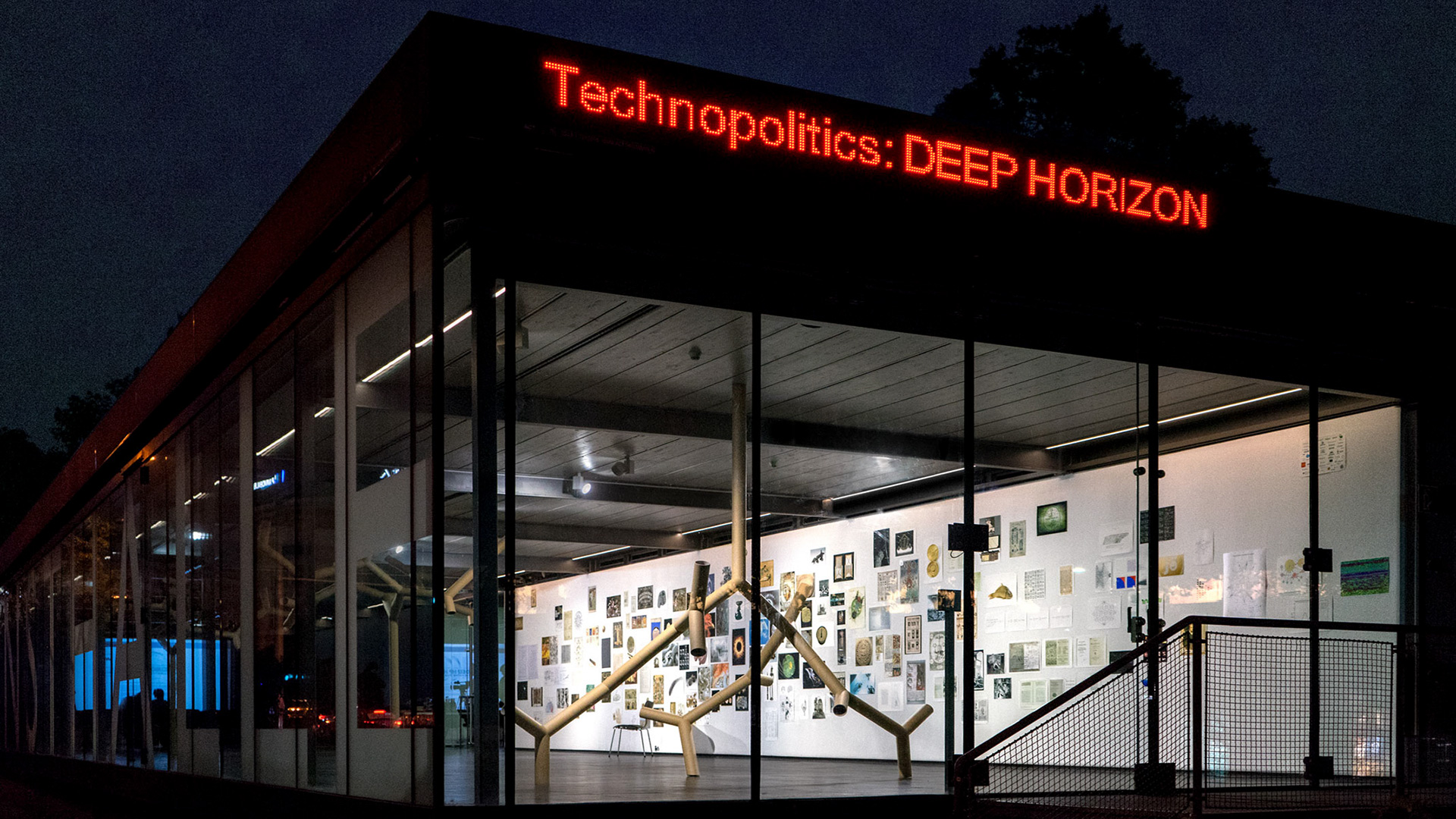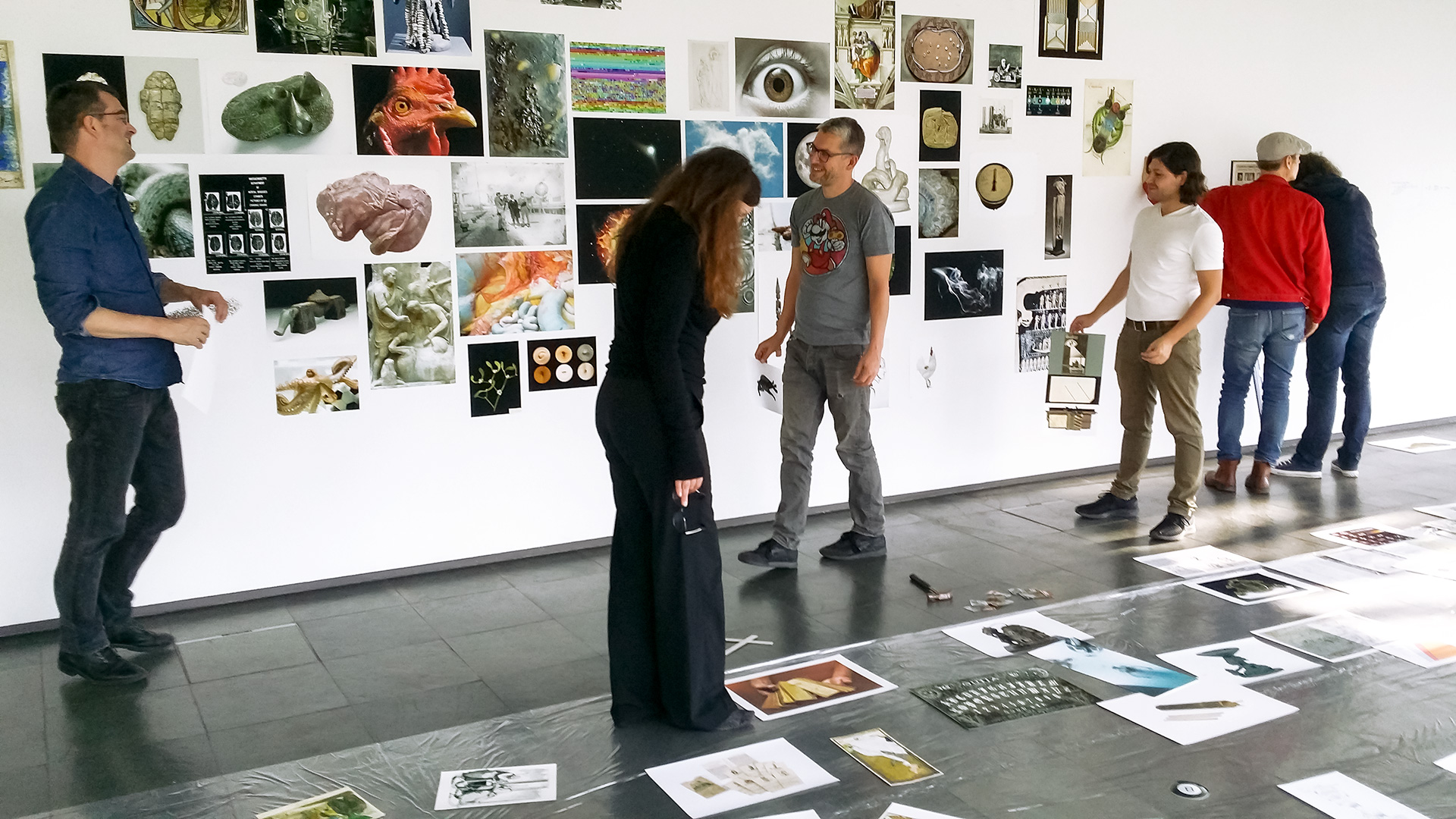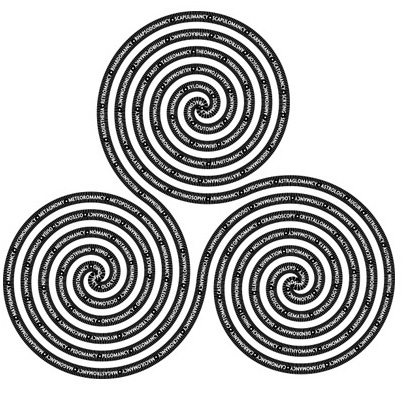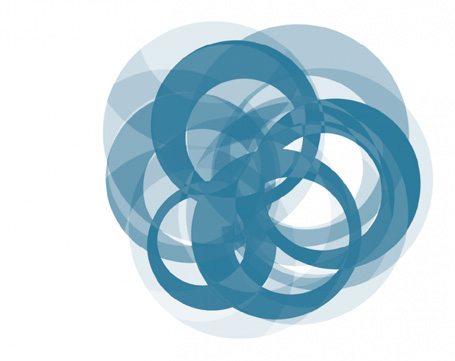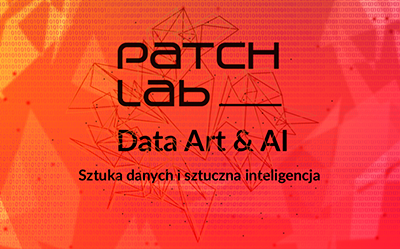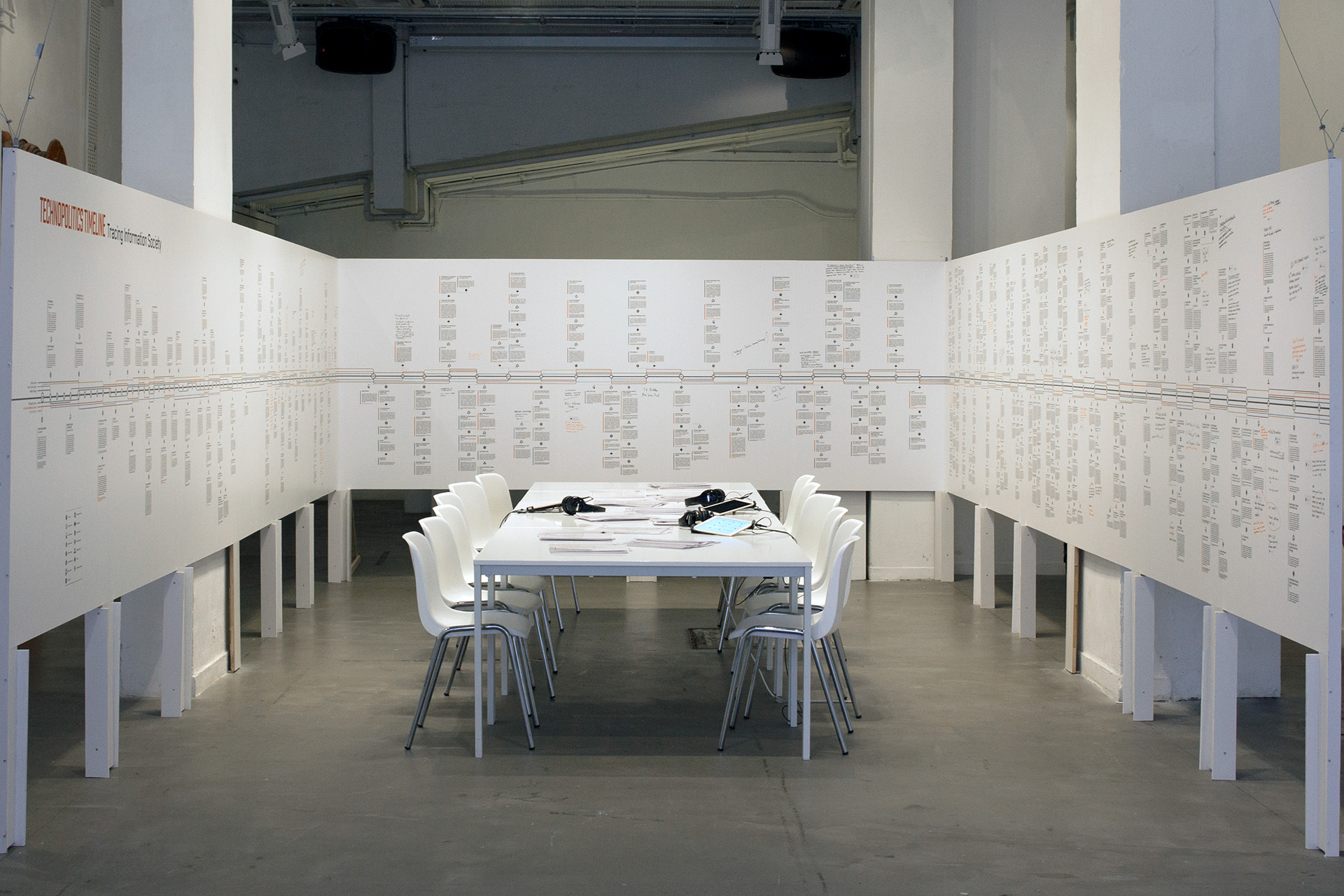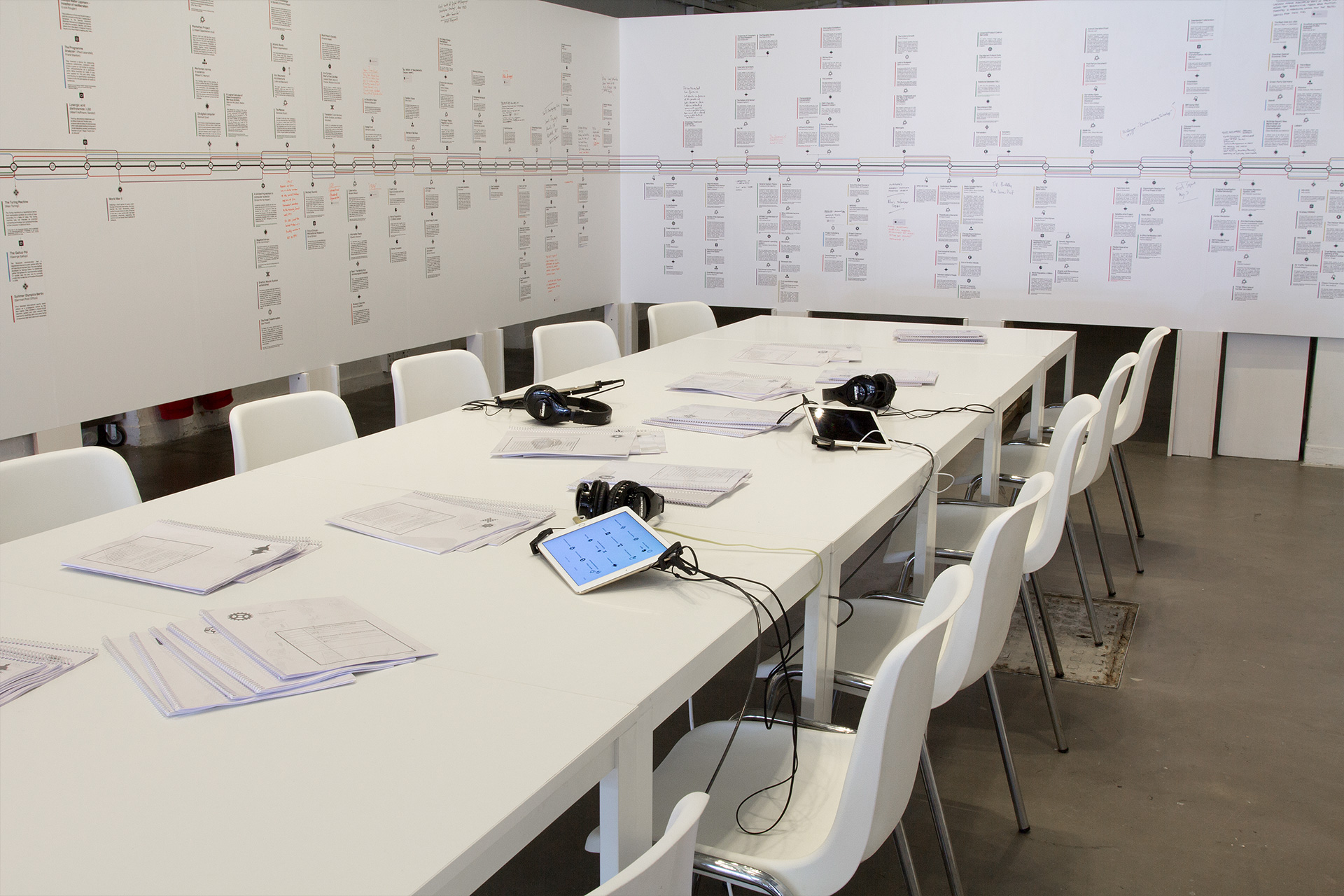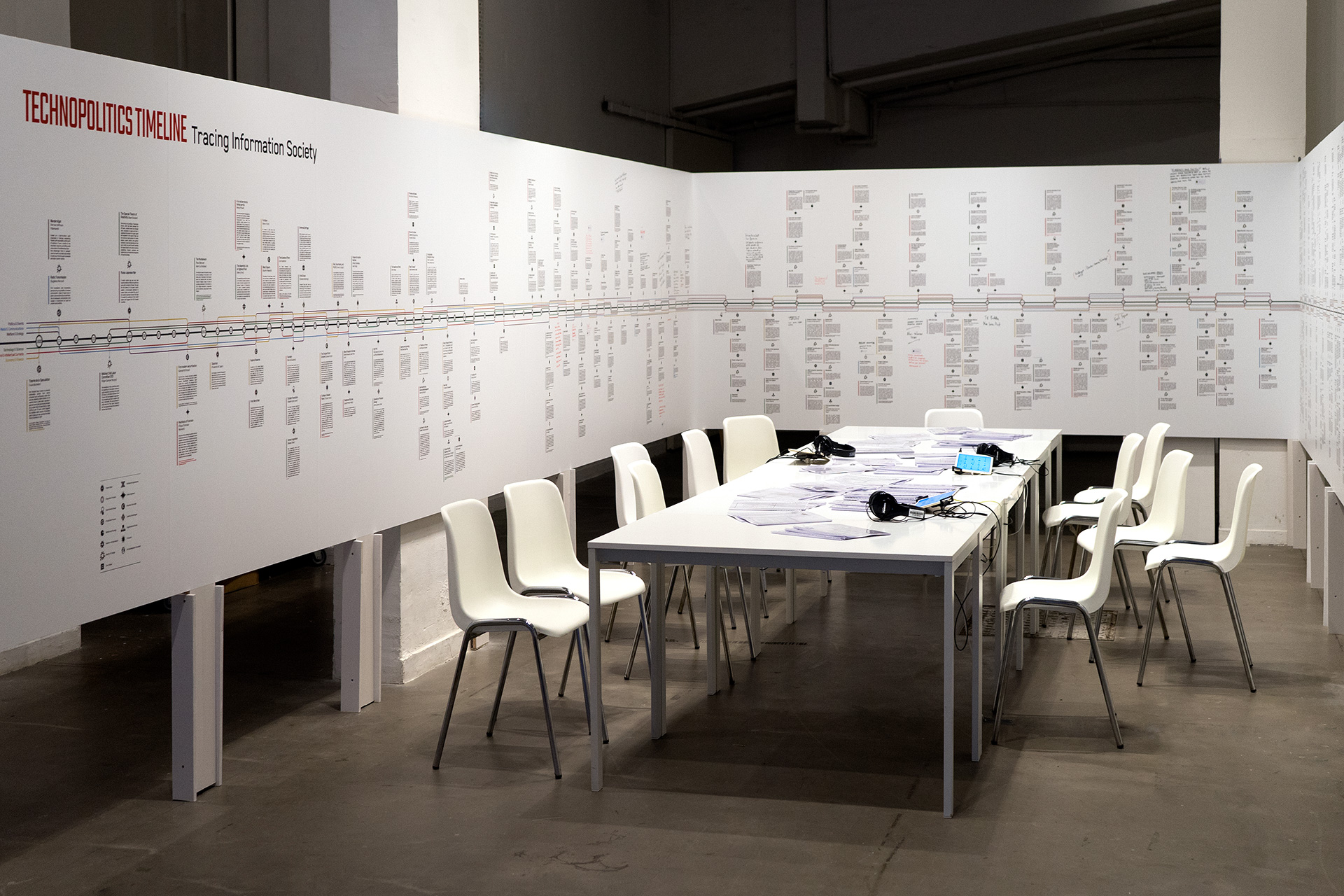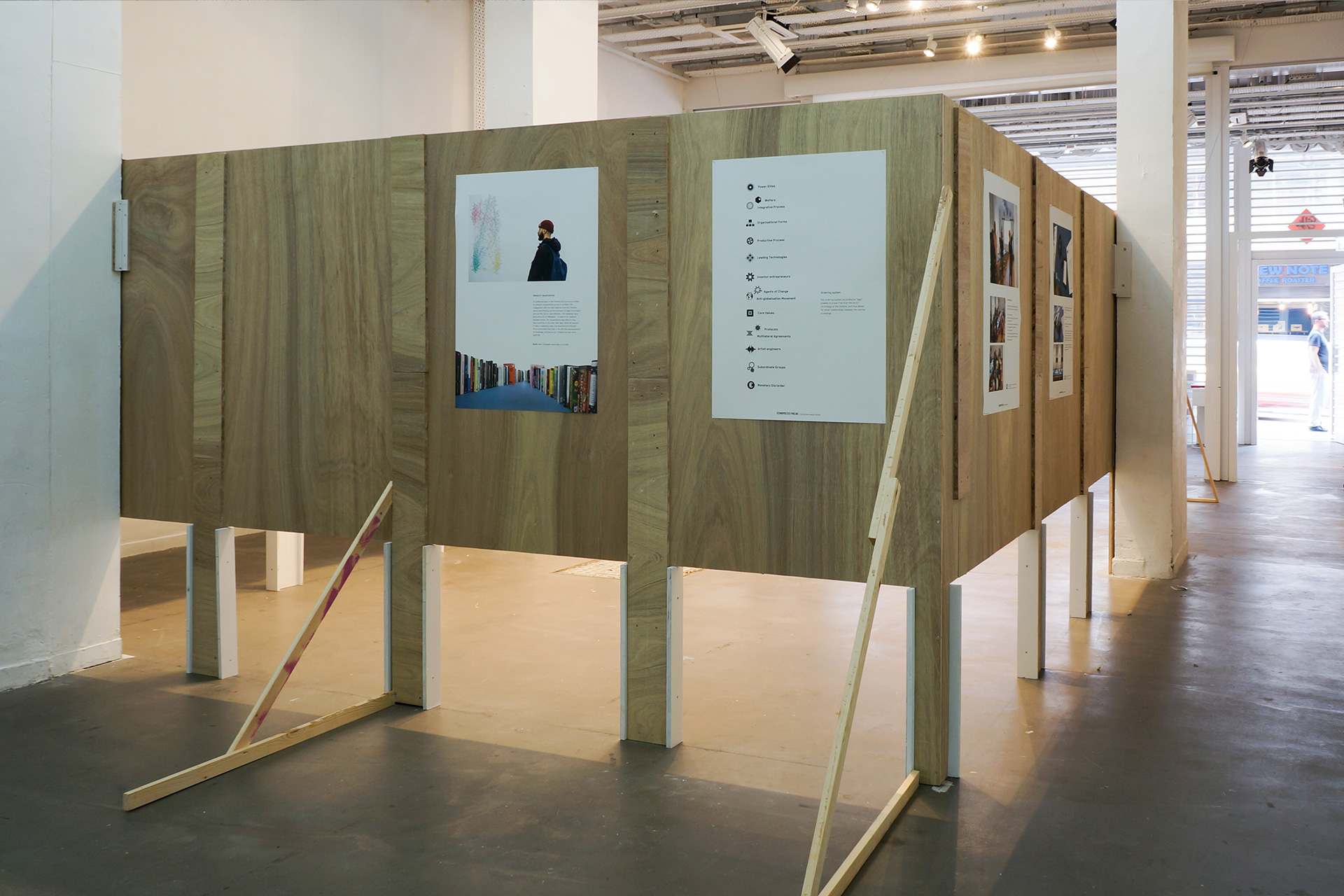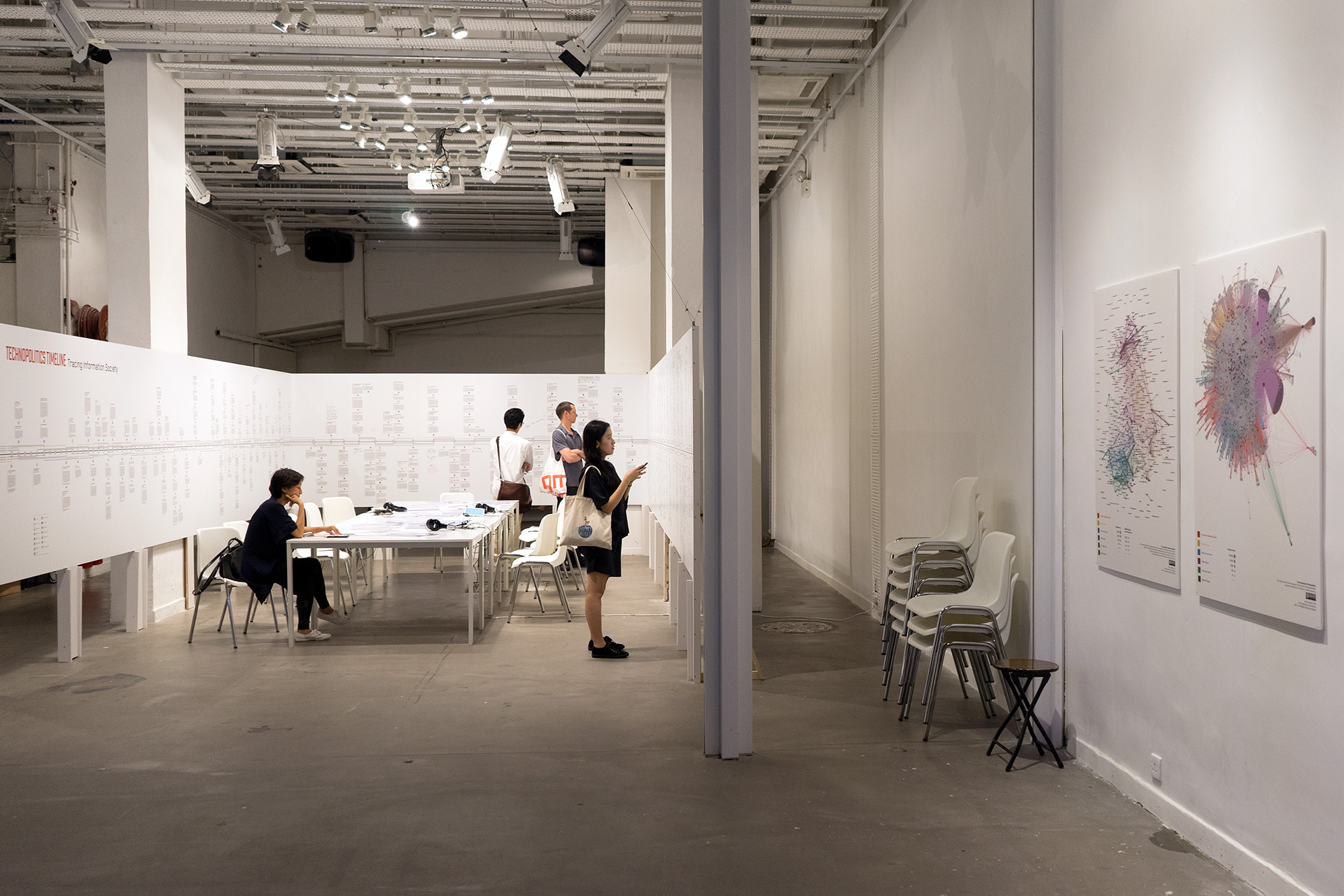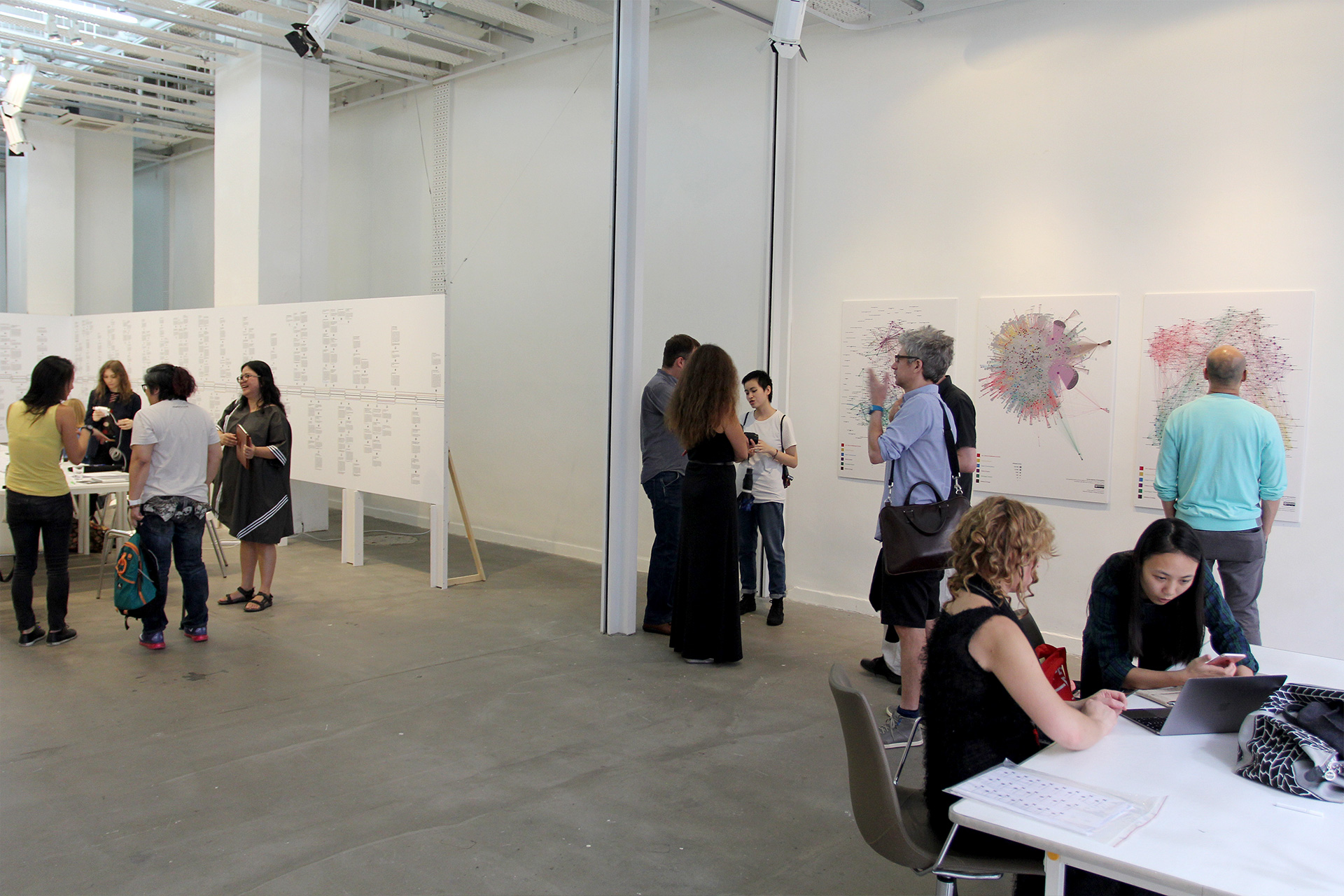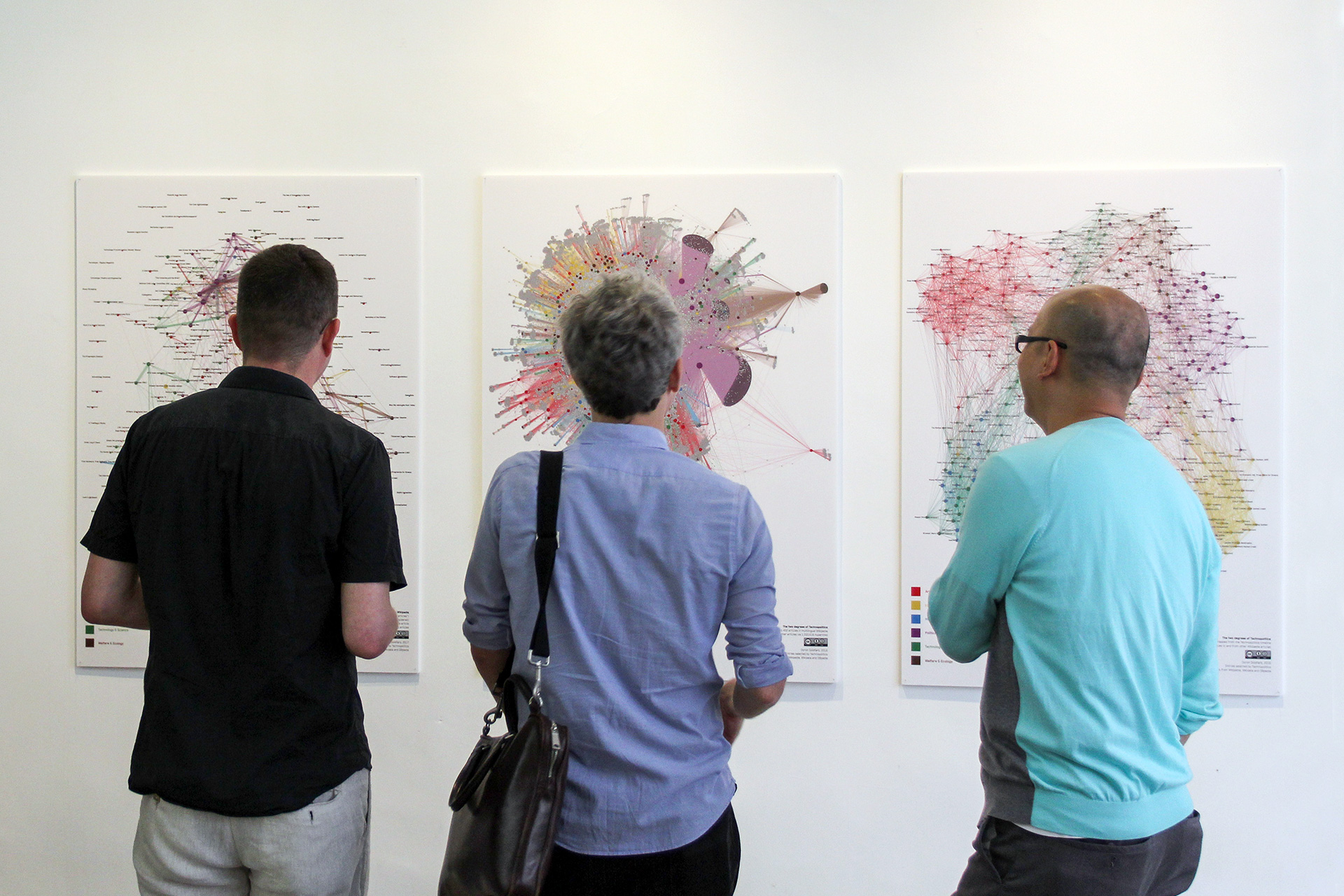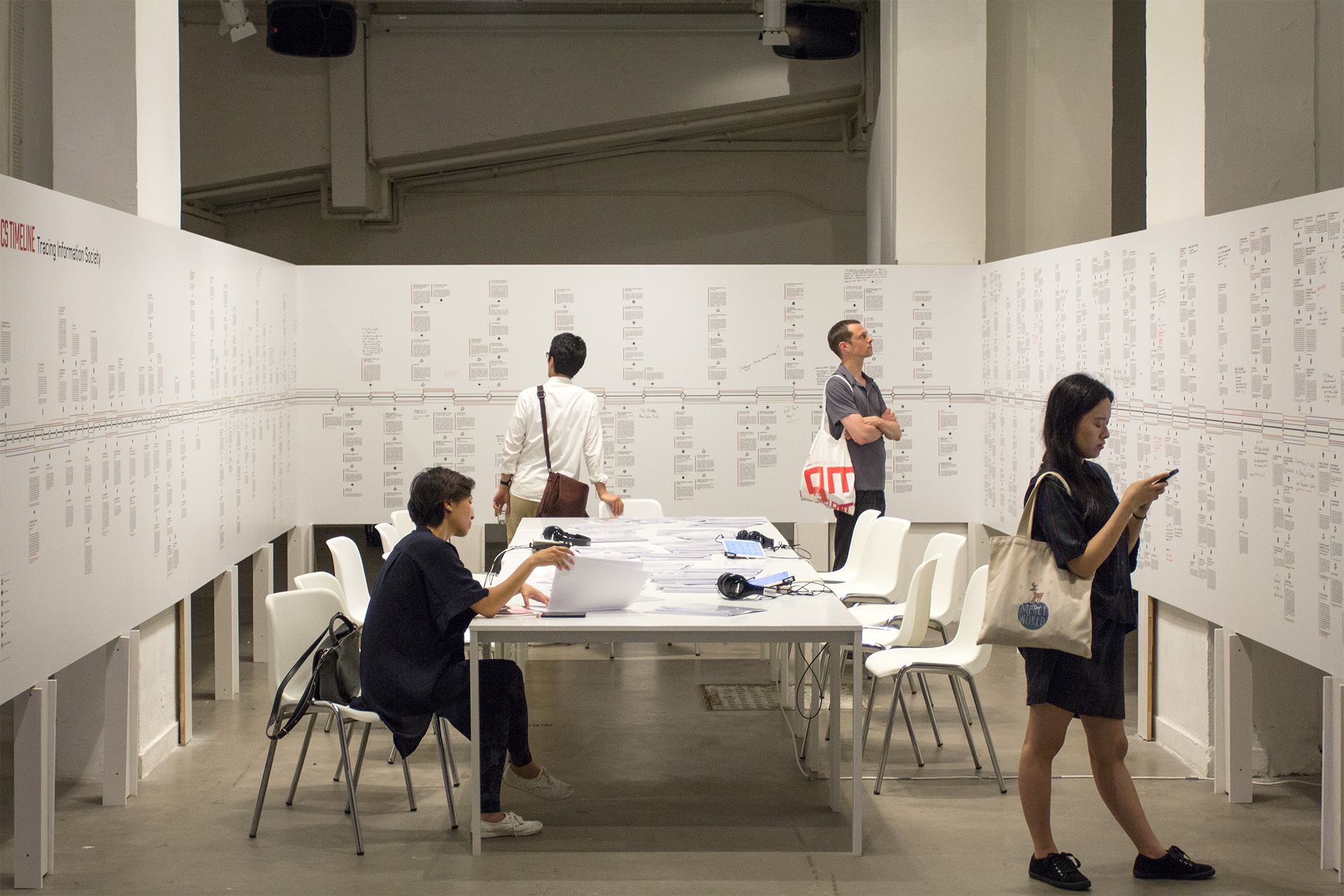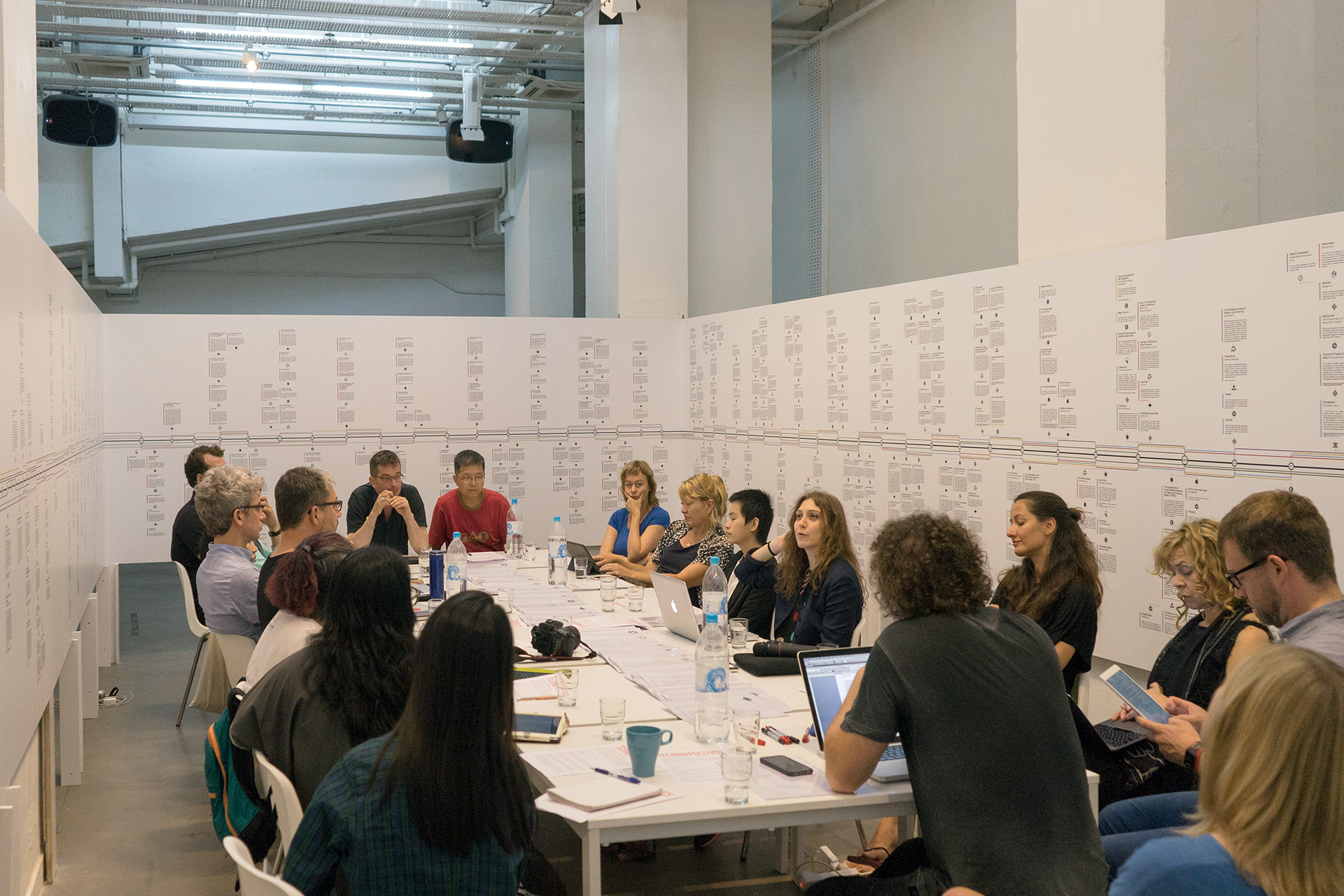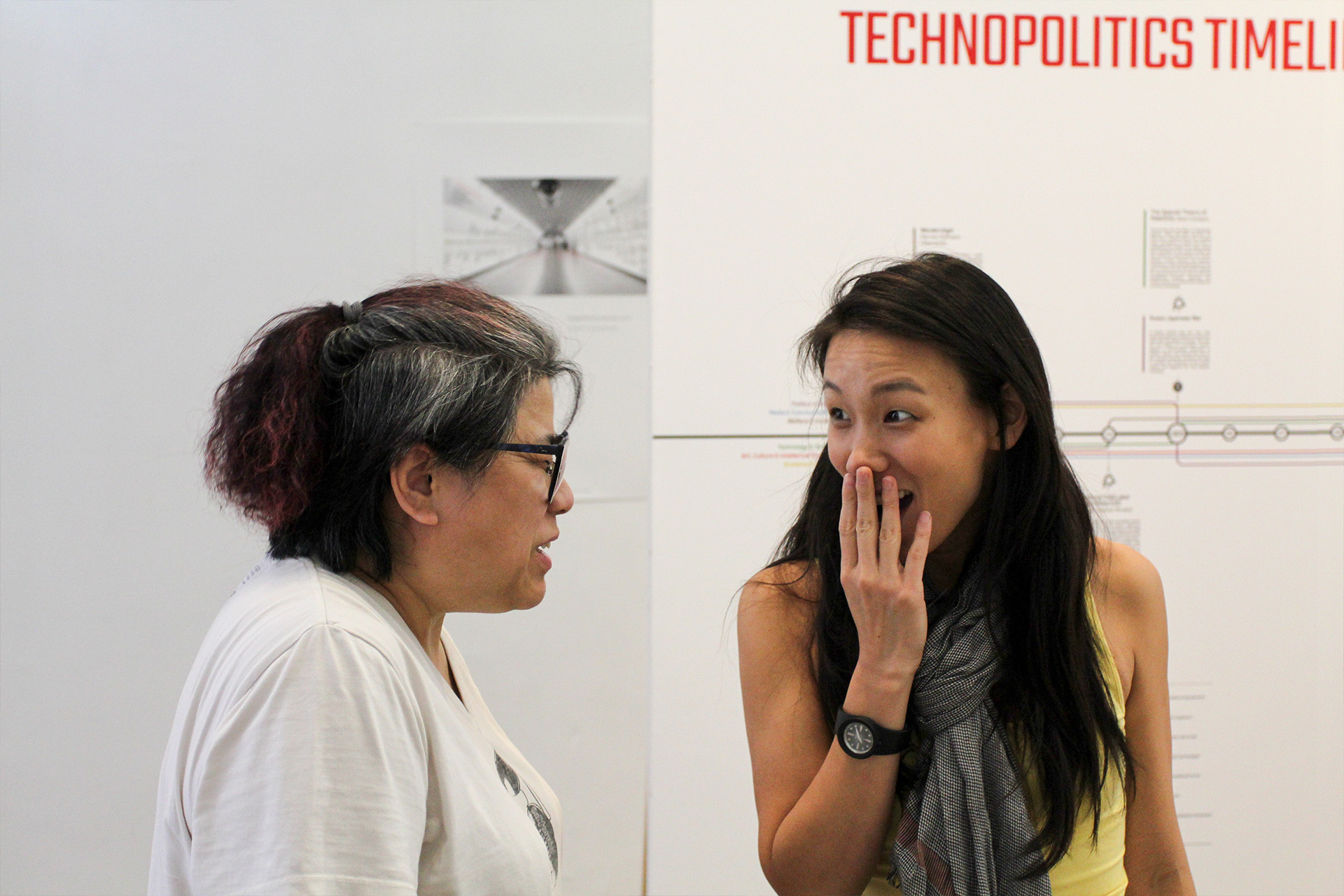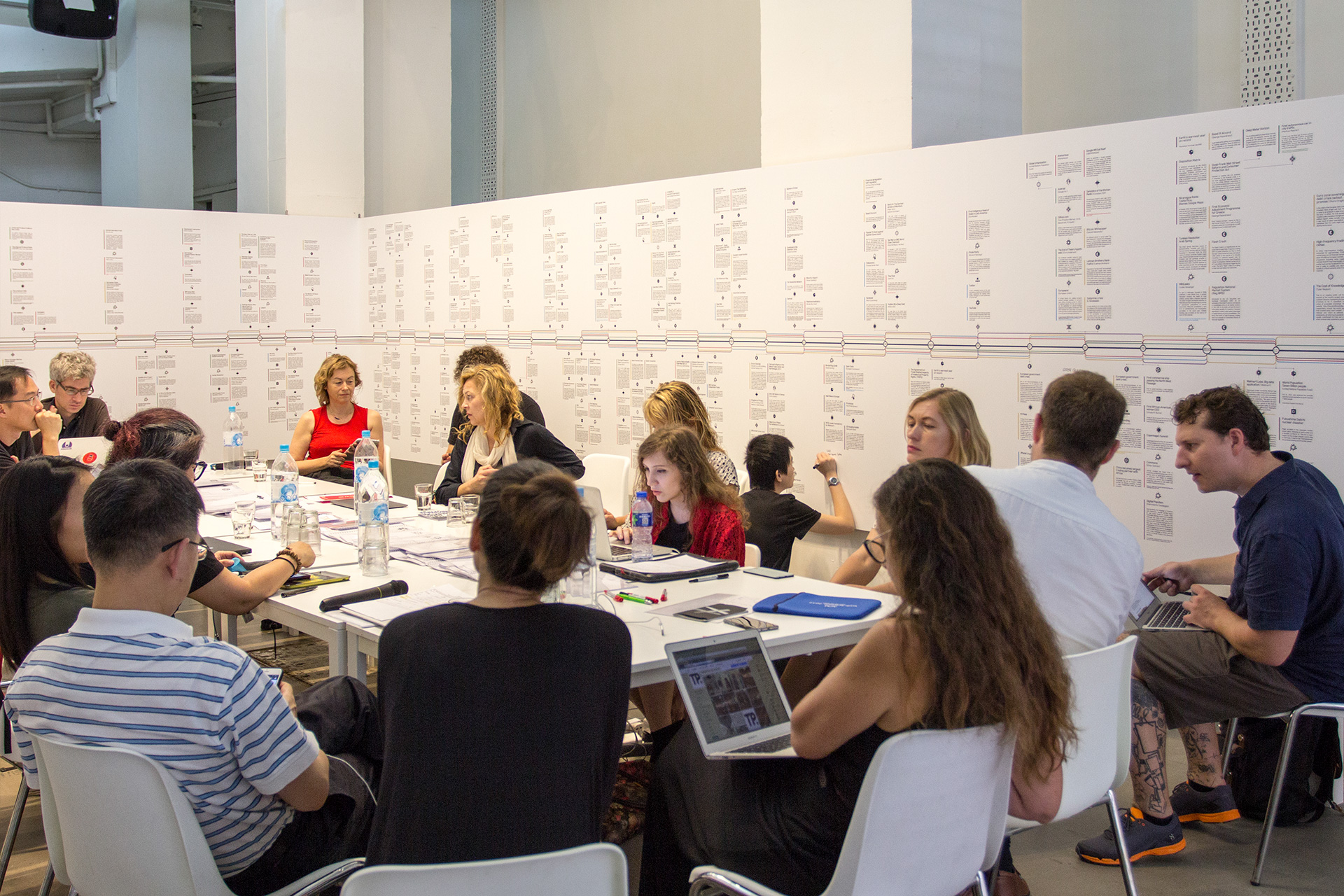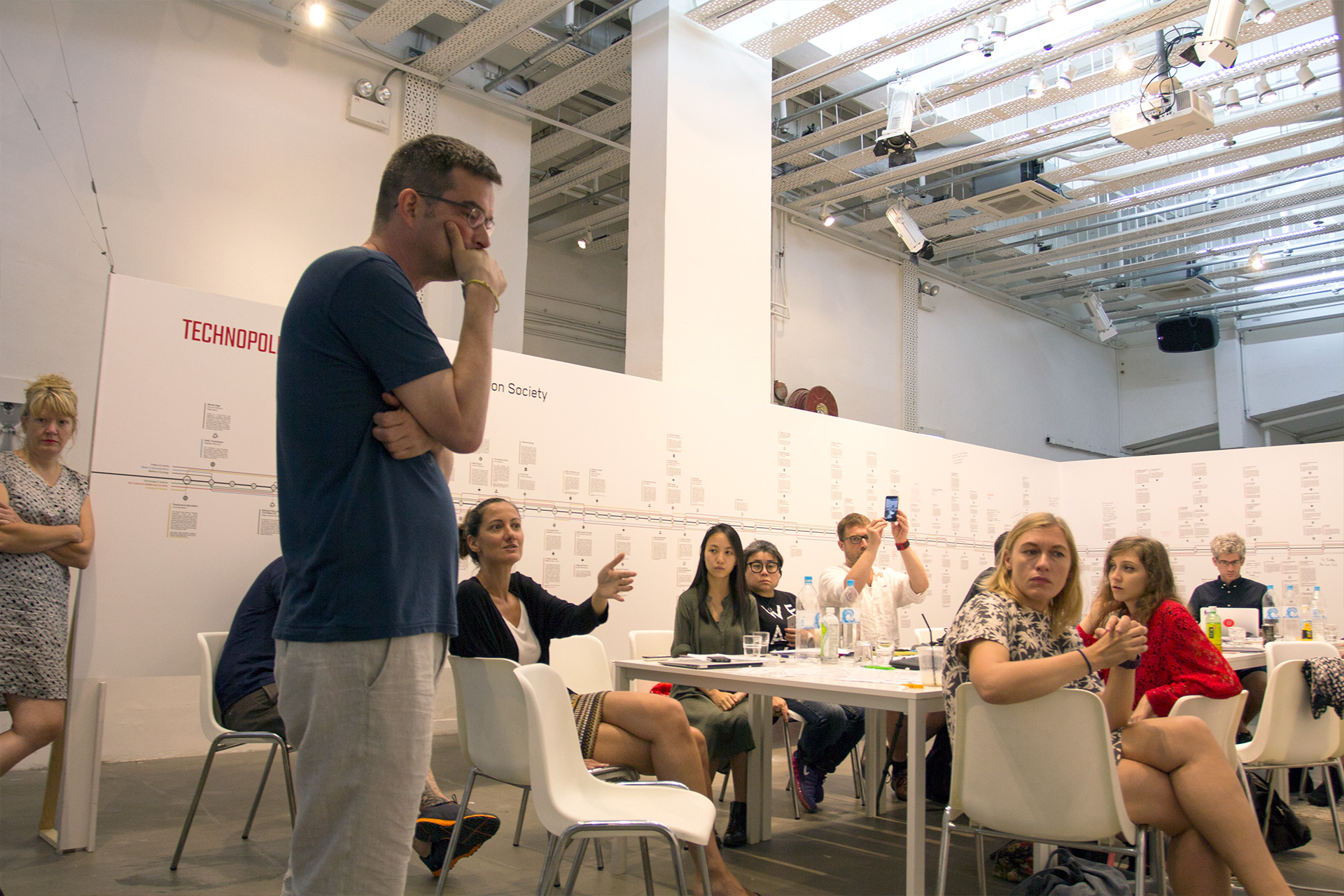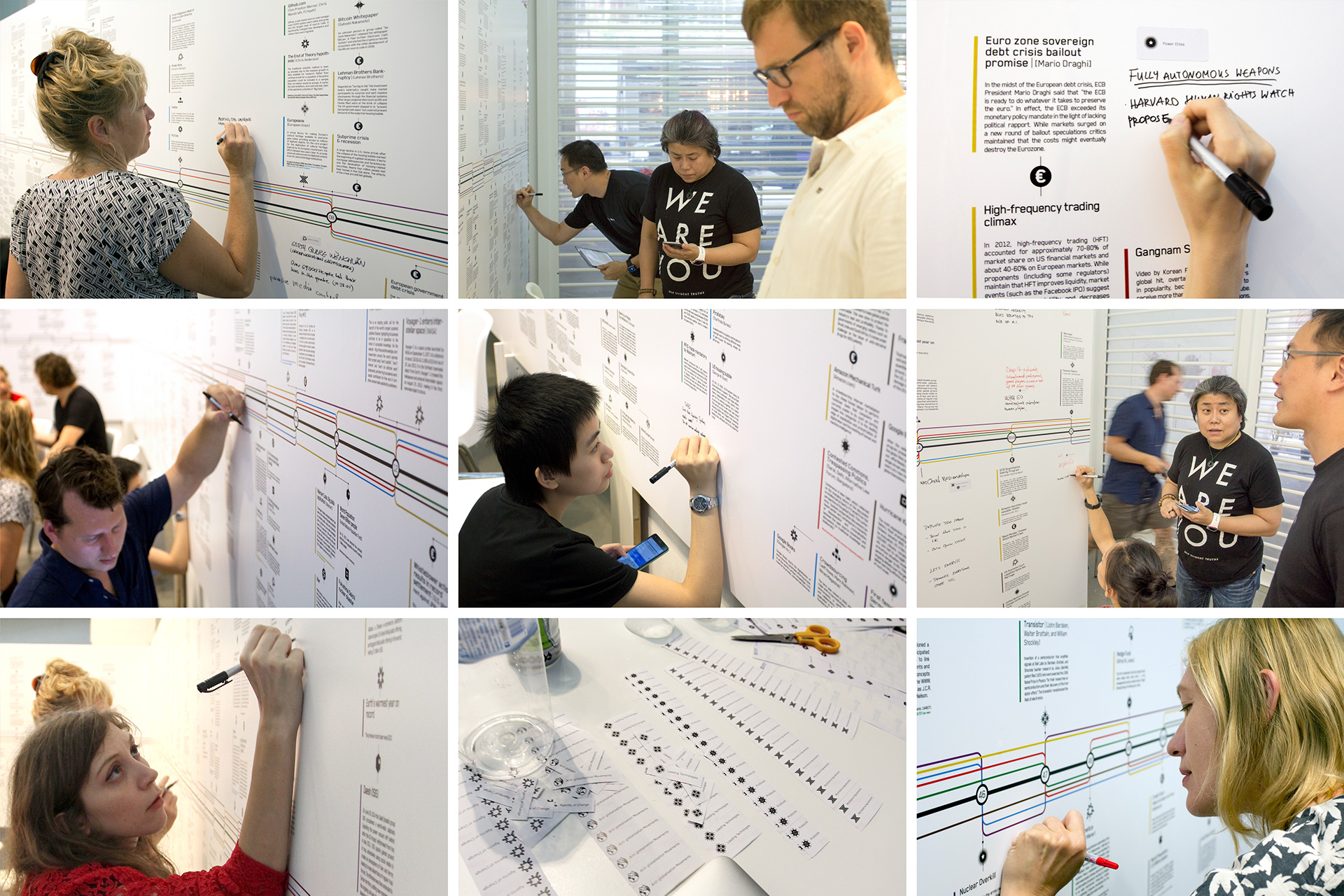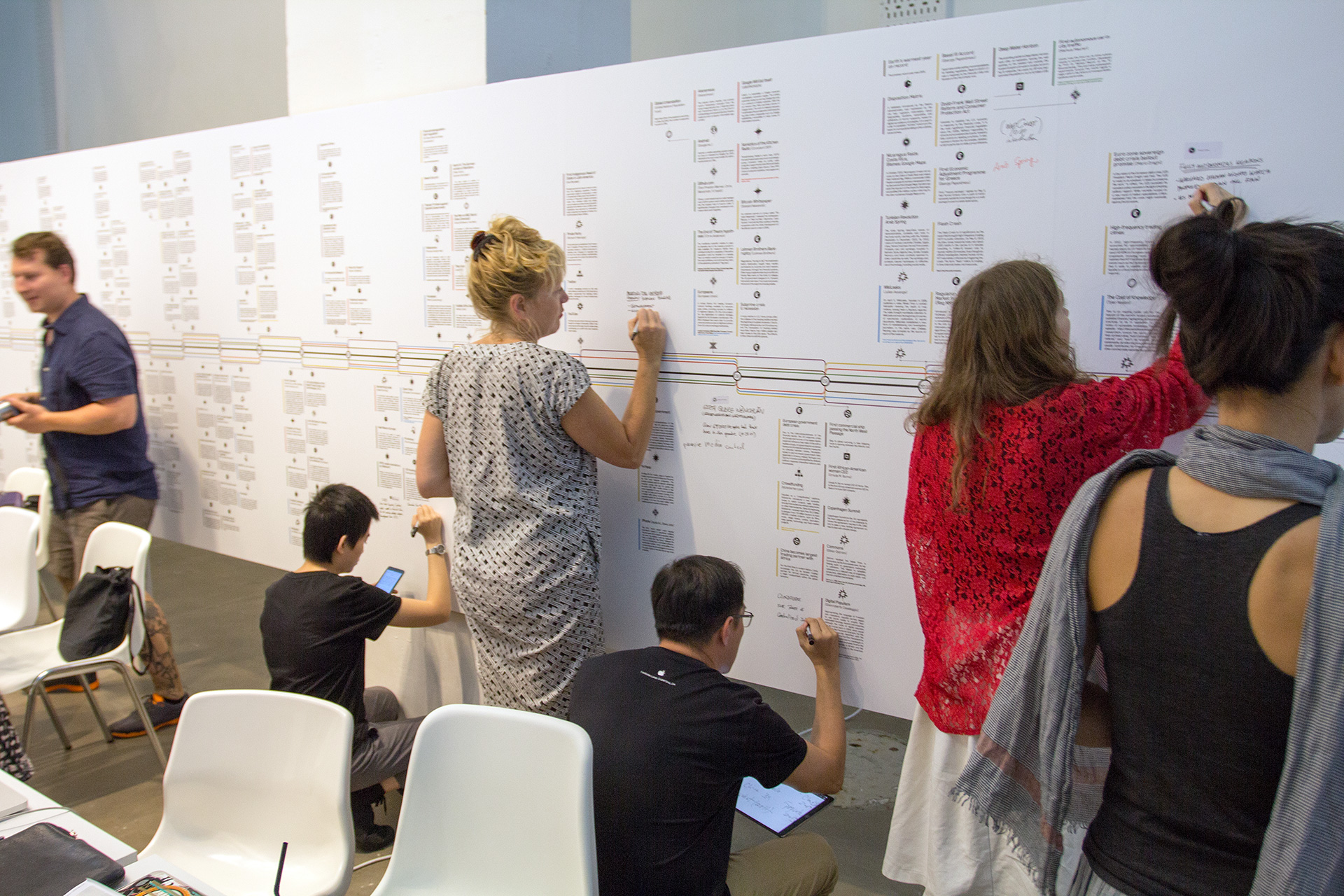Technopolitics is an independent, transdisciplinary platform of artists, journalists, researchers, designers and developers who jointly develop innovative formats at the intersection of art, research, science, and pedagogy. Technopolitics was launched as an online discussion group by Armin Medosch and Brian Holmes in 2009. In 2011, it was set up in Vienna as a circle that regularly meets for lectures and discussions. Technopolitics also produces interdisciplinary conferences and artistic research projects internationally. An important common objective is the investigation of large-scale historical processes structured by technoeconomic paradigms from a critical, explorative standpoint. We use transdisciplinary approaches to connect these processes to the cultural forms of the respective historical moment and place, including the participants’ own work. (TP portfolio)
Deutsch
Technopolitics ist eine transdisziplinäre Plattform bestehend aus KünstlerInnen, JournalistInnen, ForscherInnen, DesignerInnen und EntwicklerInnen. Im Jahr 2009 gemeinsam von Armin Medosch und Brian Holmes als Online-Diskussionsgruppe ins Leben gerufen, hat sich seit 2011 daraus ein Kreis in Wien gebildet, der sich regelmäßig zu Vortrags- und Diskussionsabenden trifft, sowie Konferenzen und Kunstprojekte produziert. Eine wichtige gemeinsame Zielsetzung ist, die Bedeutung technologischer Entwicklungen, Perspektiven und Paradigmenwechsel aus einer kritischen, künstlerischen und offenen Perspektive sichtbar zu machen.
Technopolitics Working Group
Emma Dowling, sociologist, political scientist | Sylvia Eckermann, artist | Volkmar Klien, artist, composer | Gerald Nestler, artist, writer | Felix Stalder, sociologist, cultural theorist | Axel Stockburger, artist, researcher | Gerald Straub, applied cultural theorist, curator, artist | Thomas Thaler, science journalist.
Technopolitics evenings (2011-now) ▸▸▸
Technopolitics TIMELINE (Documentation, PDF) ▸▸▸ 
Technopolitics evenings:

Undisziplinierte Intelligenz
Eine Gesprächsreihe quer zu den Disziplinen.
Intelligenz galt lange als Alleinstellungsmerkmal des Menschen. Doch seit der Begriff gegen Ende des 19. Jahrhunderts in den (pseudo-) wissenschaftlichen Sprachgebrauch Eingang fand, ist er umstritten. Es ist bisher weder gelungen, den Begriff klar zu definieren, noch ihn von seinen rassistischen oder patriarchalen Konnotationen zu befreien.
Dennoch, oder vielleicht gerade deshalb, weitet sich seine Verwendung aktuell stark aus. In Richtung Maschinen als künstliche Intelligenz und in Richtung einer wachsenden Zahl nichtmenschlicher Organismen, deren höhere kognitive Funktionen analysiert werden.
Die Frage der Intelligenz ist nicht nur innerhalb verschiedener wissenschaftlicher Disziplinen von Interesse, sondern weit darüber hinaus. Sie betrifft direkt oder indirekt die Beziehung des Menschen zur Welt und seine Stellung in ihr. Der Wandel des Intelligenzbegriffs begleitet und spiegelt den ständigen Wandel der Selbstwahrnehmung sich verändernder Gesellschaften wider. Das bedeutet, dass unser Verständnis von Intelligenz zwangsläufig kulturell geprägt ist und politische Konsequenzen generiert.
English
Intelligence has long been regarded as a central and unique characteristic of humans, and yet ‘intelligence’ has always been a problematic term. Since it came into (pseudo-) scientific use towards the end of the 19th century, it has not been possible to define the term clearly. Nevertheless, or perhaps precisely because of this, its use is currently expanding rapidly. Towards machines in the form of artificial intelligence, and a growing number of non-human organisms whose higher cognitive functions are being analysed.
The question of intelligence is not only of interest within various scientific disciplines, but far beyond them. It directly or indirectly concerns the relationship of humans to the world and their position in it. The change in the concept of intelligence accompanies and reflects the constant change in the self-perception of different societies. This means that our understanding of intelligence is inevitably culturally characterised and has political consequences.
Bisher fanden folgende Veranstaltungen statt:
| Info |
14. Sept. 2025 |
Thomas Raab
Intelligenz & Phantasie |
| Info |
28. Sept. 2025 |
Alice Auersperg
Tierische Kognition, Erfindungsreichtum und Intelligenz.
Neue Perspektiven auf Tiere, Menschen und Maschinen. |
ORT: HOTHOUSE The Future of Demonstration Season 5, Atelier Augarten
ORT: Studio Eckermann/Nestler, Wien 3, Neulinggasse 9
Anna Echterhölter
Too blind to see
Über Datenkolonialismus, AI und (anti-)imperiale Intelligenzen
Präsentation und Gespräch mit Emma Dowling Universität Wien und Felix Stalder Zürcher Hochschule der Künste.
D
atenkolonialismus beschreibt die jüngste Welle der Metrisierung, Verdatung und Quantifizierung der Gesellschaft. Wie der Imperialismus zu Land hat der digitale Kolonialismus eine ökonomische Dimension: Alles wird Ressource insbesondere Daten über unser Verhalten, woraus wenige eine große Anzahl an Gewinnen abschöpfen. Anders als bei anderen disruptiven Technologien werden insbesondere durch AI die „Weapons of Math Destruction“ auf den Bereich des Denkens, der kreativen Produktion, der Komposition und der Autorschaft ausgerichtet. Was aber hat dies für Auswirkungen auf unsere kognitive Praxis?
Aus wissenschaftshistorischer Perspektive sind zwei Dinge auffällig: Zunächst führt bereits die Geschichte der Daten direkt in die Kolonien: Die ersten Zentren der Kalkulation werden im Auftrag frühneuzeitlicher Imperien gegründet und diese legen den Grundstein für die umfängliche Indizierung von Mensch und Natur, noch bevor der bürokratische Staat im 19. Jahrhundert Methoden perfektionierte, das Individuum adressierbar, klassifizierbar und lesbar zu machen. Im Kalten Krieg finden sich dann erste Spuren der heutigen AI Technologien eher bei den Geheimdiensten als in den soziologischen Seminaren. Sodann ist auffällig, dass im Datenkolonialismus Wissenstypen massiv überschrieben werden: Im Sturm der Zahlen verlieren wir alles, was nicht ausreichend quantifizierbar ist, verdatet werden kann und nicht ausreichend dokumentiert wurde, die kolonialen Epistemizide vervielfältigen sich. Was aber wären Ansätze für dekoloniale Datennutzungen, was umfasst die Forderung nach Indigenous Data Sovereignty, wie operiert das Environmental Data Justice Lab oder wer betreibt Datenfeminismus?
Anna Echterhölter

ist Professorin für Wissenschaftsgeschichte an der Universität Wien. Sie promovierte zu Epistemischen Werten in Nachrufen auf Naturwissenschaftler (Wallstein 2012) und arbeitete anschließend am Institut für Kulturwissenschaft an der Humboldt-Universität Berlin. Es folgten Fellowships am Max-Planck-Institut für Wissenschaftsgeschichte in Berlin (2008, 2015) und am German Historical Institute in Washington, DC (2016) sowie Gastprofessuren für Kulturgeschichte an der HU Berlin und der Technologiegeschichte an der TU Berlin. Die Habilitation untersucht die Geschichte der Metrologie aus Sicht der Geistes-, Rechts- und Sozialwissenschaften. Es folgten Forschungsaufenthalte in Paris, Samoa und in der Kollegforschergruppe „Applied Humanities“. Sie ist Gründungsmitglied der ilinx-Redaktion und seit 2022 Mitherausgeberin von Science in Context. Zu ihren Forschungsgebieten zählen Geschichte der Quantifizierung, Rationierung und Planung, epistemische Dekolonisation und die Wissenschaften des deutschen Kolonialismus in Ozeanien. Seit 2019 sind zudem die Enqueten über Indigene Rechte des deutschen Kolonialbüros und eine Perspektive zu indigenem Recht und sie untersucht die Kolonialstatistik im Paradigma des Datenkolonialismus im Forschungsprojekt „How is AI Changing Science“ (Bonn, Karlsruhe Wien).
 Technopolitics TIMELINE V.5 > V.6
Technopolitics TIMELINE V.5 > V.6
Exhibition:
WUK "VERSUCHSANSTALT" Kunsthalle Exnergasse Währinger Straße 59, 1090 Wien.
October 5-25, 2023
open floor is an exhibition project by Natalia Gurova, Rafael Lippuner, and adO/Aptive (Janina Weißengruber, Daniel Hüttler) that invites six collectives to lay out a common ground, a field on which various practices converge and coalesce in a shared room: Tratado Material, TECHNOPOLITICS, AUSLÄNDER, Danube Transformation Agency for Agency, Office Ukraine, and MŰTŐ.
ist ein künstlerisches Projekt zur Entwicklung eines Spiels im öffentlichen Raum. Es handelt davon, wie Prognosen, Statistiken und Formen der digitalen Erfassung Einfluss auf unseren Alltag nehmen und unsere Gesellschaft abbilden.
Durchführungszeiraum: 2021
UNTER DER KURVE ist gefördert von SHIFT, Basis.Kultur.Wien.
Zum UDK-Blog ▸▸▸
UNDER THE CURVE is an artistic project that produced a game in public space about forecasts, statistics and forms of digital capture and how they map our society and influence everyday life.
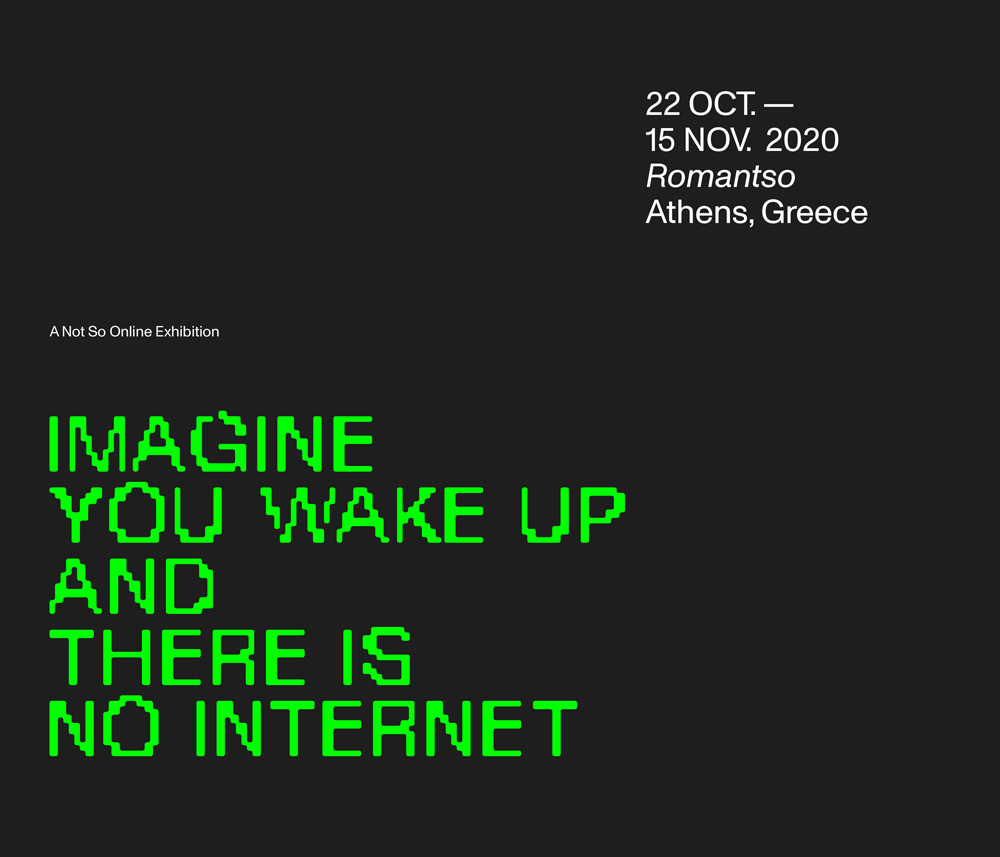 Technopolitics TIMELINE V.5
Technopolitics TIMELINE V.5
Exhibition:
Romantso, Anaxagora 3 –Athens
22.10. – 15.11. 2020
Particpating Artists: !Mediengruppe Bitnik & Low Jack (DE/FR), Aram Bartholl (DE), Jono Boyle (UK), Heath Bunting & Kayle Brandon (UK), Vaggelis Deligiorgis (GR), Exonemo (JP), Marina Gioti (GR), Antonis Kalagkatsis (GR), George Moraitis (GR), No Más / No More (GR), Manos Saklas (GR), Molly Soda (U.S.), Superflux (UK), Technopolitics (AT), Alexandros Tzannis (GR), Filipe Vilas-Boas (PT)
Curated by Katerina Gkoutziouli & Voltnoi Brege
With the support of NEON Organization
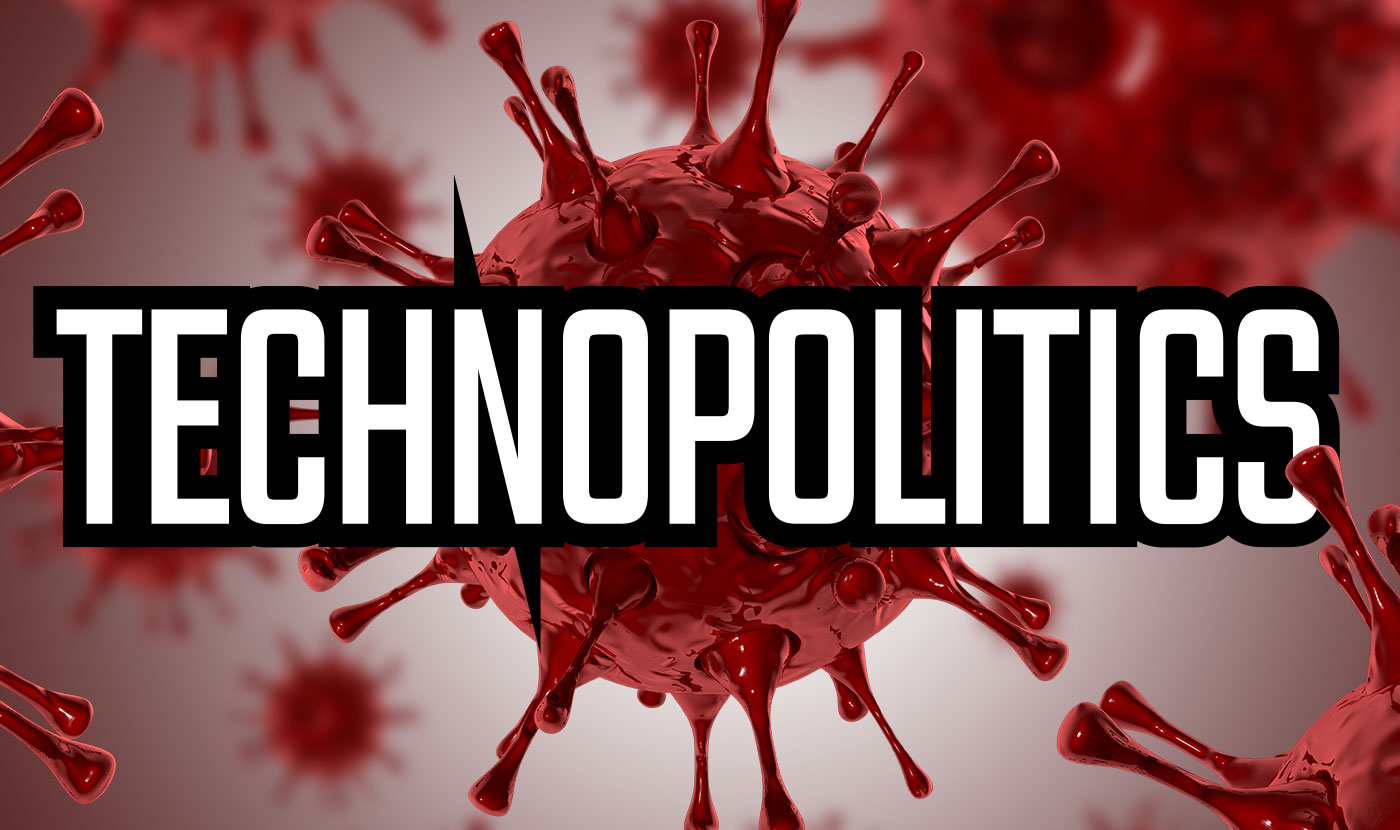 TechnopoliticS evening
TechnopoliticS evening
Tuesday, April 21. 2020 20:00
(CEST, Central European Summer Time), Via ZOOM
The virus, officially named SARS-CoV-2, is often portrayed as something coming from the outside, be it nature or a foreign country. However, its spread is neither a natural disaster nor a strategic ploy, but a deeply techno-political event. As the disease turns into a pandemic it reveals many of the hidden structures and contradictions of the highly integrated, yet locally differentiated contemporary word.
The societal reactions to the spread and the measures which are currently put into place are transformative and might turn revolutionary.
To address an event as distributed and complex as COVID-19, no single point-of-view can suffice. Thus, we have invited artists and theoreticians from four places – Sao Paulo, Chicago, Tel Aviv, and Vienna – to speak about their particular experiences, the techno-political dynamics created by the virus, agency for cultural producers and speculate about what will remain.
SPEAKERS
David Sperling Architect, Institute of Architecture and Urbanism (IAU), University of São Paulo
Lucas Bambozzi Artist, Filmmaker and Activist, São Paulo
Brian Holmes Researcher, Writer, Activist, Chicago
Udi Edelman Isreal Digital Art Center, Tel Aviv
Tsilla Hassine Artist and Art-up Founder, Tel Aviv
Technopolitics Working Group Vienna
 Technopolitics SALON
Technopolitics SALON
Herzliya, Israel. 29. February. 2020, 18h
Participants:Anat Ben-David, Sylvia Eckermann, Udi Edelmann, Doron Goldfarb, Tsilla Hassine, Ran Kasmy Ilan, Volkmar Klien, Gerald Nestler, Felix Stalder, Axel Stockburger, Gerald Straub, Thomas Thaler, Lior Zalmanson, Mushon Zer-Aviv.
Artist
Residency
Herzliya ▸

Program ▸
Video stream ▸
Image Gallery ▸
For more than 10 years now, Western countries have been in crisis mode and economic, social, (geo-)political and ecological issues have become significantly worse. We are off the map and as a consequence the future is both terrifying but also more open.
Contemporary forecasting provides complex tools to intervene in real-time in order to affect future states at present. In contrast to traditional methods of prediction, which derive from a probabilistic concept of representation, the former indicates the turn to a performative regime of governance whose contingent claims strive to leverage the volatile indeterminacy in which the future emerges. Its temporality is therefore not the long-term, but the constantly recalibrated short-term. The state of emergency, inherent in the word crisis, has become the platform on which reality is produced.
Forecasting is an eminently cultural issue, because it provides an aesthetic of the unknown and gives shape to the uncertain. Instead of giving accurate accounts of a situation that cannot be changed, it actualizes the future into the present in order to make the unlikely more likely, or to prevent the likely from happening.
During the event Deep Horizon: The Culture of Forecasting, Technopolitics brought together the audience with artists, researchers and activists. In talks, discussions, workshops and game playing we dealt with the role of forecasting as a way of inventing the future. Think and act ahead!
Participants:
Richard Barbrook, Erik Bordeleau, Jaya Klara Brekke, Thomas Feuerstein,
Isabell Schrickel, Zentrum für politische Schönheit and Technopolitics research group (Sylvia Eckermann, Gerald Nestler, Felix Stalder, Axel Stockburger, Gerald Straub, Thomas Thaler).
Space intervention Random Forest, Sylvia Eckermann
Technopolitics timeline @ São Paulo, Brazil
Hall of the Institute of Architecture and Urbanism of the University of São Paulo
Link (Portuguese)
Technopolitics Timeline @ SIGRADI Conference / São Carlos, Brazil
XXII INTERNATIONAL CONFERENCE OF THE IBEROAMERICAN SOCIETY OF DIGITAL GRAPHICS
The 22nd Congress of SIGraDi takes on the theme of “Technopolitics“. It is understood that all technology is generated within cultural, economic and social fabrics, as well as has political aspects in its conformation and its use. However, it is not uncommon for technologies to be autonomously thought of as prefigurers of futures and unequivocal solutions to problems not yet known. Link
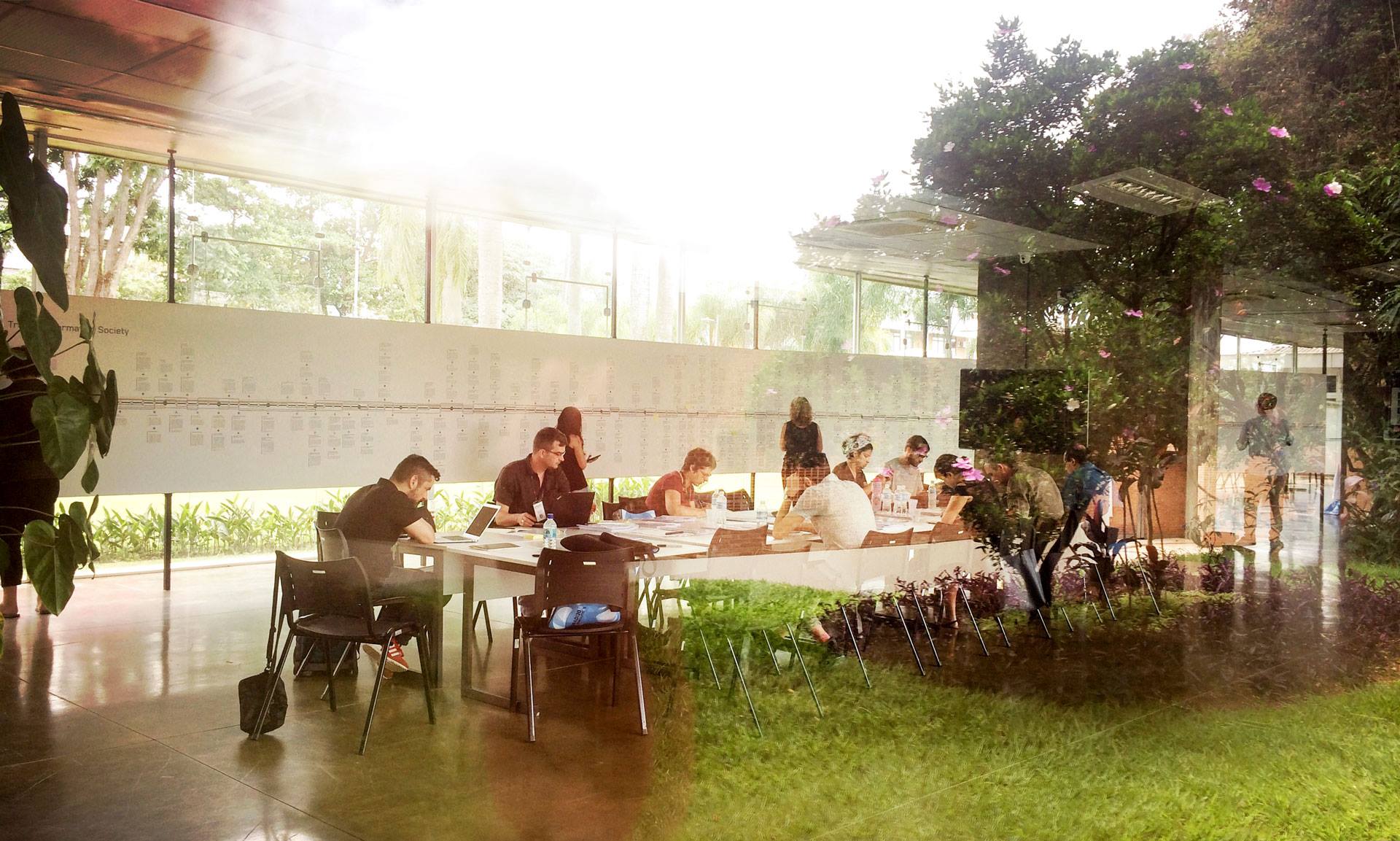
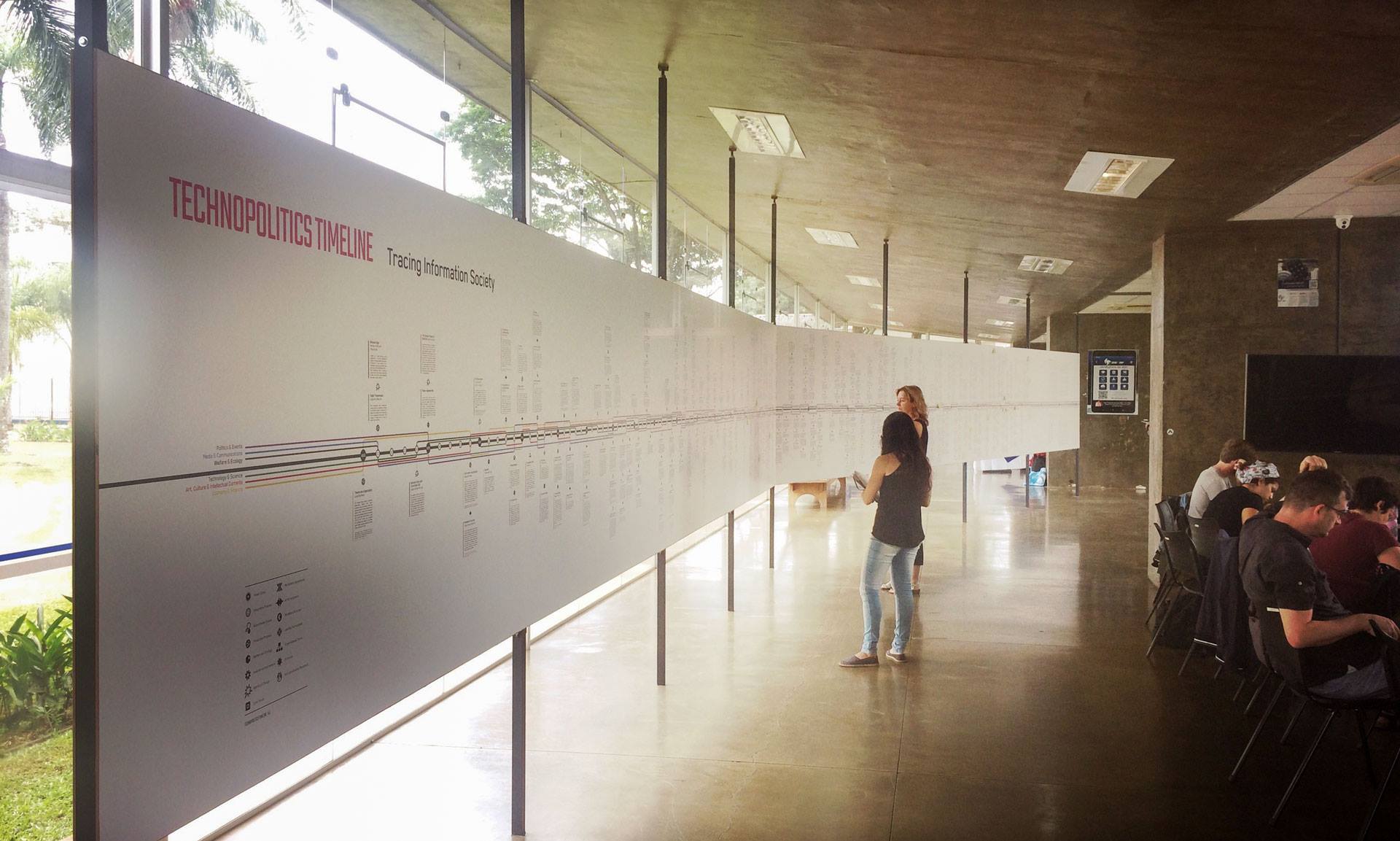
The project was supported by

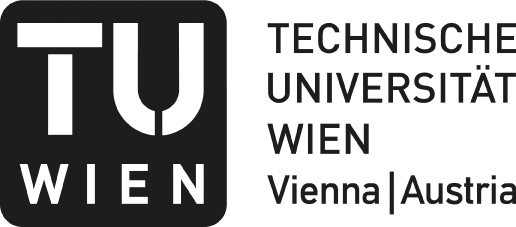
Technopolitics @ Seoul Mediacity Biennale / South Korea
TECHNOPOLITICS was invited to take part in: THE MONOSKOP EXHIBITION LIBRARY curated by Dušan Barok, Monoskop.
The MONOSKOP EXHIBITION LIBRARY explores the notion and medium of the art catalogue.
The catalogue is the publishing vehicle of an exhibition and outlives the latter. But the imaginative power of this medium has more to offer than mere documentation. Hence, MONOSKOP invited artists, designers, curators, poets and researchers to explore the catalogue as an artistic medium. As our contribution, Technopolitics converted Tracing informAtion society - a Timeline into an object-as-catalogue.
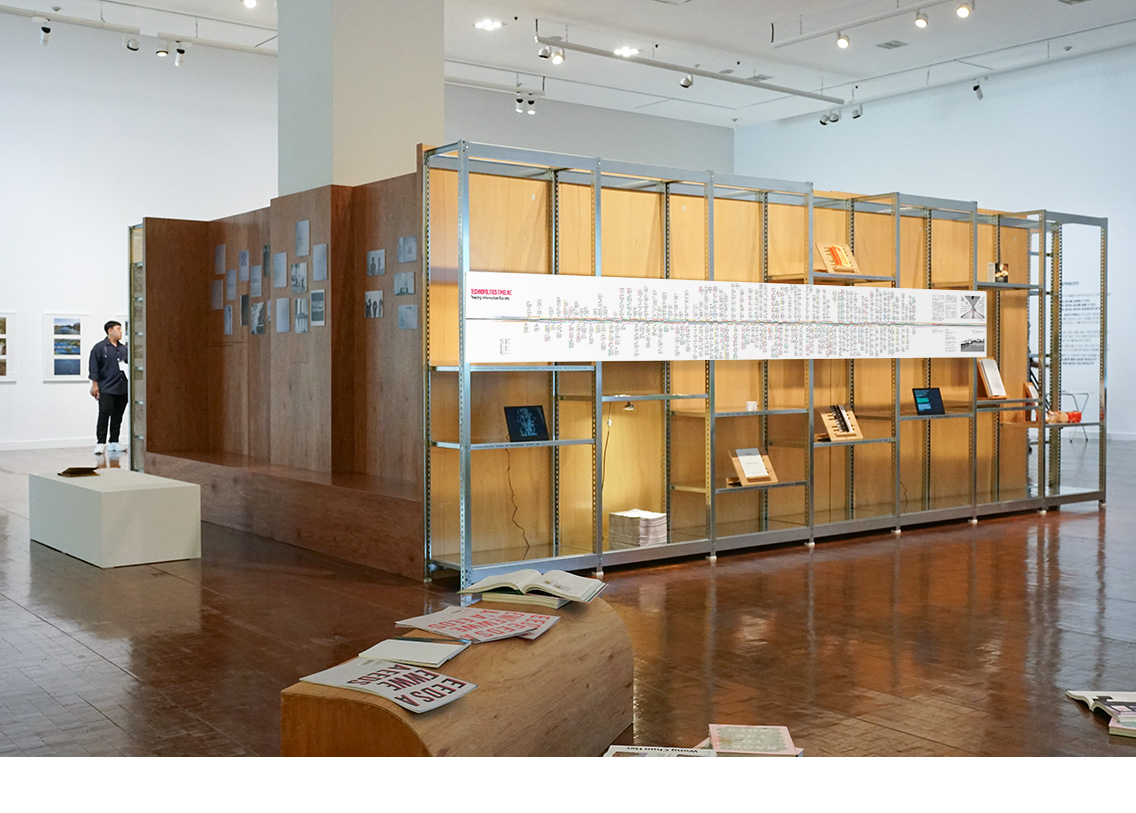
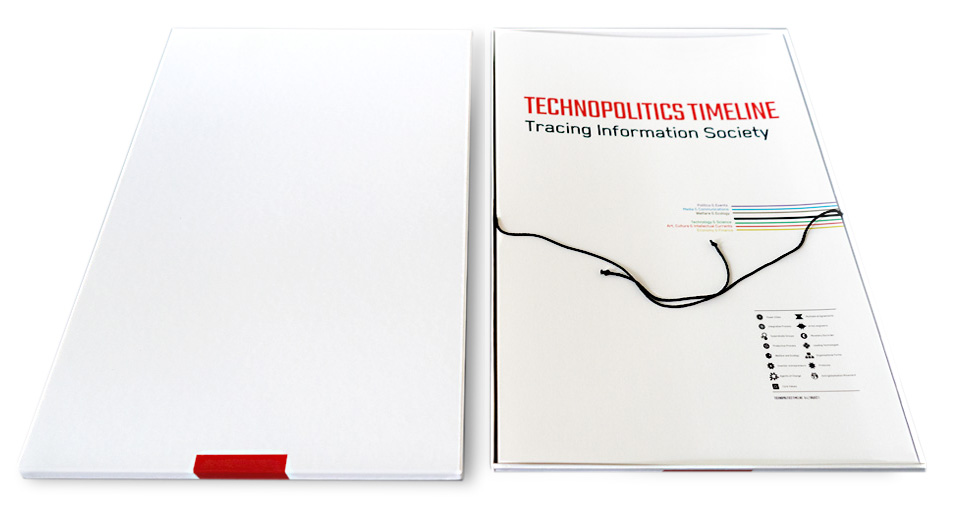
TECHNOPOLITICS TIMELINE V.4 / Object 1, 2018.
Print on Fine Art Photo Cotton Rag, 460 x 48,3 cm, Box, Magnifier.
Technopolitics Timeline @ Patchlab Digital Art Festival / Poland
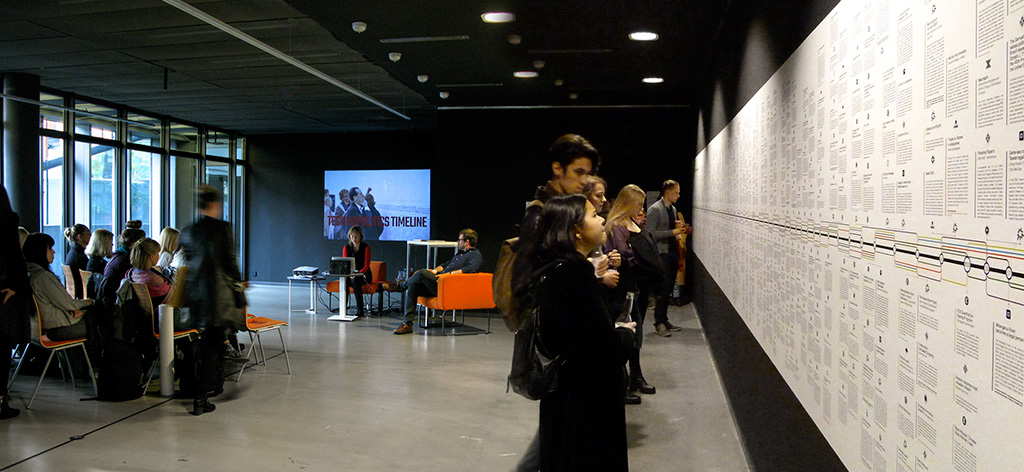
TECHNOPOLITICS presents Tracing Information Society – a Timeline in Krakow. V.4 Hong Kong update
Patchlab: This year’s edition is dedicated to data art and artificial intelligence (AI), designs using extraordinary material – big data bases, which have an increasing impact on our life and the whole society. Data has become a construction material for sophisticated art forms and a basis for philosophical reflection.
The exhibition will take place in Małopolski Ogród Sztuki and at Galeria Bunkier Sztuki. The festival will present artists from Poland, Germany, Austria, France, Greece, Italy, Belgium, Denmark, Iran, Japan and Taiwan.
TechNopolitics is represented in Krakow by Doron Goldfarb and Ina Zwerger.
Technopolitics Timeline @ Connecting Space / Hong Kong
Installation view, Connecting Space Hong Kong. 2017
An exhibition as a curated knowledge space
OPENING
June 23 2017, 7pm
TECHNOPOLITICS sets up a CURATED KNOWLEDGE SPACE that offers a discursive framework for exploring the genesis and current configuration of the information society.
The main visual element of the TECHNOPOLITICS TIMELINE is a large-scale print that traces the evolution of our shared techno-cultural realities. The Timeline’s 500 entries draw attention to different events and genealogies from the fields of art, culture, media, politics, economy, technology, and social life that have been relevant for the shaping of the information society.
The project’s common objective is to investigate from a critical, explorative standpoint the heterogenic historical processes that are structured by techno-economic paradigms. A workshop and discussion program focuses on trans-disciplinary and trans-cultural conversations to connect these processes to the cultural forms of the respective historical moment and place.
details & abstracts
Techopolitics is represented in Hong Kong by Sylvia Eckermann, Doron Goldfarb, Gerald Nestler, Felix Stalder, Axel Stockburger and Ina Zwerger.
Technopolitics Timeline @ transmediale / Berlin
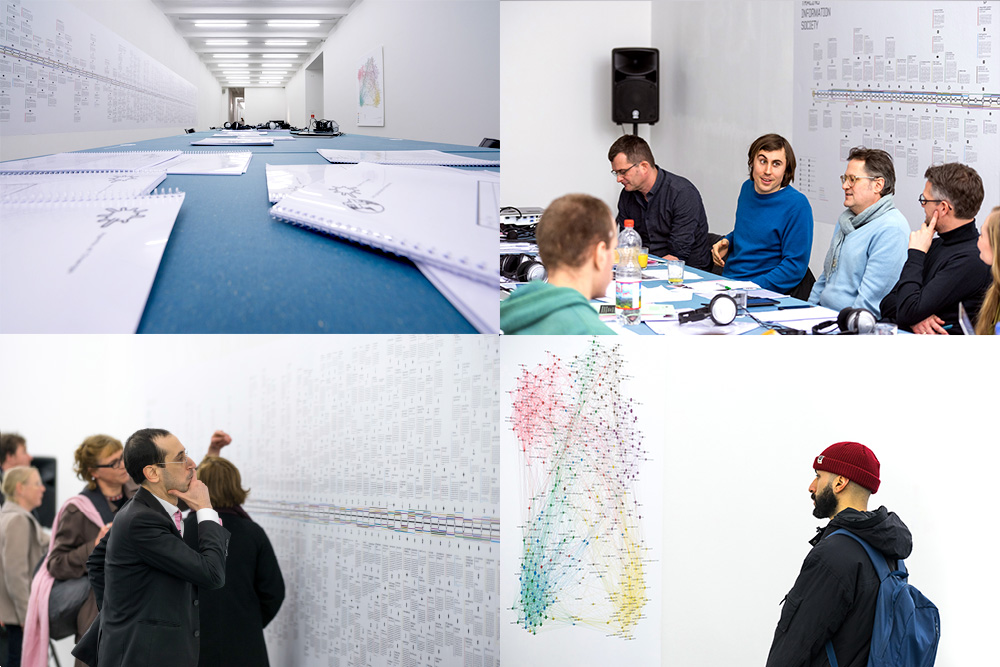
nGbK, transmediale Berlin. 2017
Eine Ausstellung als kuratierter Wissensraum über die Zeitenwende
Die transmediale präsentiert in Kooperation mit Technopolitics die Ausstellung Tracing Information Society – A Timeline, die vom 27. Januar bis zum 5. Februar 2017 in der nGbK gezeigt wird.
Für Tracing Information Society—a Timeline verwandelt die Wiener Forschungsplattform Technopolitics den Ausstellungsraum in einen kuratierten Wissensraum: Eine 12 m lange Timeline zeigt die Entstehung der Informationsgesellschaft von 1900 bis heute. Die Besucher_innen erleben Herausbildung, Transformation und Wirkungsmacht der Informationsgesellschaft in ihren vielfältigen Bezügen zu kulturellen, wissenschaftlichen oder politischen Ereignissen, während sie sich an der Zeitleiste entlang bewegen. Ziel des Projektes ist es, zur Kritik und Überwindung der neoliberalen Informations(un)ordnung beizutragen.
In Form eines "Time-Tables" stellt Technopolitics eine umfangreiche, mit einzelnen Einträgen auf der Timeline korrespondierende Sammlung an weiterführenden Informationsmaterialien zur Verfügung, um eine tiefergehende Auseinandersetzung mit der Thematik zu ermöglichen.
Begleitend zu der Ausstellung findet ein Rahmenprogramm bestehend aus Workshops, Vorträgen und Salons statt. Unter den Teilnehmer_innen sind Wolfgang Ernst, Anselm Franke, Margarete Jahrmann, Cornelia Sollfrank, Geoff Cox, Jacob Lund, Verina Gfader, Anne Kølbæk Iverson, Winnie Soon, Anke Hennig, Clemens Apprich.
Eröffnung: 26. Januar 2017, 19:00 Uhr
Laufzeit: 27. Januar – 5. Februar 2017 (täglich 12–19 Uhr, Mi–Fr bis 20 Uhr)
3. Februar 2017, 13:00-15:00 Uhr:
New Paradigms TECHNOPOLITICS PANEL at transmediale
within the scope of ever elusive – thirty years of transmediale
HKW, John-Foster-Dulles-Allee 10, 10557 Berlin
mit Jutta Weber, Gabriele Gramelsberger, Felix Stalder, Gerald Nestler
Zum Programm
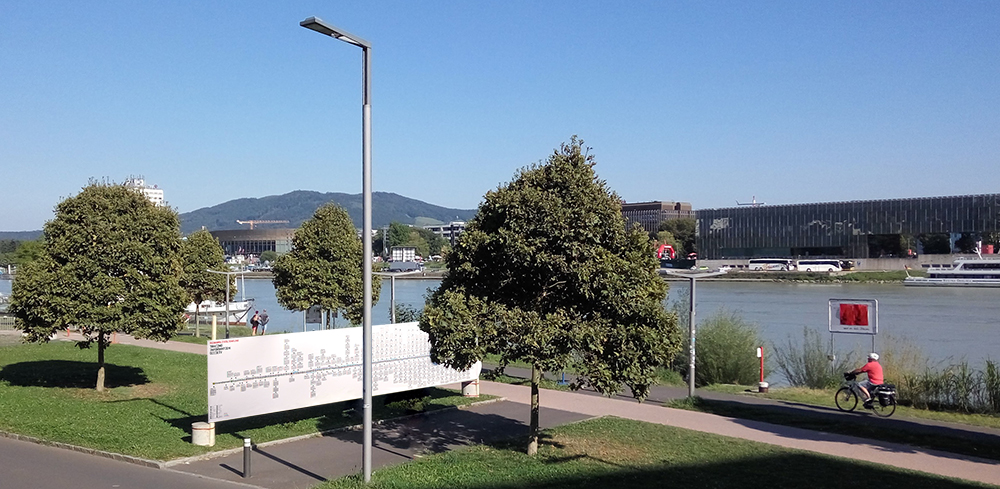
Technopolitics @ MAK / Vienna
Mit dem im MAK FORUM kuratierten Wissensraum „Tracing Information Society“ will Technopolitics die eingefahrenen Diskurse über die Chancen und Gefahren der Digitalisierung aufbrechen.
Eine 10 Meter lange Textarbeit, als Druck an der Wand, eröffnet neue Blickwinkel auf die Informationsgesellschaft, für die sich die ersten Einträge bereits vor mehr als 100 Jahren finden und die das Leben auch im 21. Jahrhundert bestimmen wird.
Als Timeline aufgerollt, lässt sich entlang der zeitlichen Chronologie die Entstehung und Wirkungsmacht der Informationsgesellschaft studieren, nicht beim Scrollen am Bildschirm sondern beim Gehen und Verweilen an den Wegmarkierungen. Durch das mehrdimensionale Mapping von politischen Ereignissen, technologischen Erfindungen und kulturellen Entwicklungen wird sichtbar, wie die Informationsgesellschaft alle Bereiche erfasst und verändert hat.
Analog und digital lädt der Time-Table die Besucher/innen zur Auseinandersetzung ein. Audiovisuelle Medien, Bücher, Bilder usw., die mit Einträgen auf der Timeline korrespondieren, werden nach Kategorien geordnet ausgebreitet und ermöglichen ein vertiefendes Begreifen. Ausschnitte aus Ö1-Sendungen erklären Schlüsselkonzepte der Informationsgesellschaft. Eine weitere grafische Darstellung zeigt mittels Netzwerkvisualisierung auf Basis von Wikipedia die inhaltlichen Quer-Verbindungen zwischen den Einträgen der Timeline auf.
PROGRAMM
| 23. 06. |
|
16–17h |
|
Doron Goldfarb
The Two Degrees of Technopolitics –
über die Netzwerkvisualisierungen der Technopolitics Timeline
|
| |
|
17–18h |
|
Workshop: Lesen und Schreiben der Timeline
Moderation: Armin Medosch und Felix Stalder |
| |
|
|
|
|
| 24. 06. |
|
15–16h |
|
Gerald Straub
Technopolitics Spezialführung "il/legal Tour"
Auf der Suche nach den Spuren von il/legalen Ursprüngen und Konsequenzen.
Treffpunkt MAK Haupteingang |
| |
|
16–18h |
|
Felix Stalder
„Kultur der Digitalität“ Buchpräsentation und Diskussion
moderiert von Armin Medosch |
Eine Kooperation von Technopolitics und dem MAK.
MAK – Österreichisches Museum für angewandte Kunst / Gegenwartskunst
Stubenring 5, 1010 Wien
Zur Dokumentation
Presse: springerin 4/2016
Text: Alessandro Ludovico
Das Projekt wurde unterstützt von:
Sektion Kunst im Bundeskanzleramt, Kulturabteilung der Stadt Wien, MA7.
Mit besonderem Dank an Ö1.

In diesem Technopolitics Salon präsentiert Gerald Raunig in einem speziell für Technopolitics entwickeltem Vortrag Aspekte seines neuen Buchs Dividuum. Als Respondentin fungiert Technik-Philosophin Mona Singer.
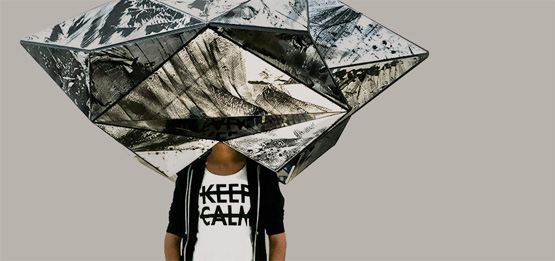 Abb. Sylvia Eckermann, SINGULARIUM
Abb. Sylvia Eckermann, SINGULARIUMWir leben in einem Zeitalter der maschinischen Dividualisierung. Die Realität heutiger dividueller Datensätze, riesiger Akkumulationen von Daten, die auf unendliche Arten geteilt, wieder zusammen- und inwertgesetzt werden können, ist eine der weltweiten Ströme, der Deterritorialisierung und der maschinischen Erweiterung. Wenn nicht mehr ManagerInnen, BankerInnen, BrokerInnen, sondern Programme, Kalkulationen und Berechnungen durchführen und auf solche Kalkulationen und Berechnungen reagieren, dann scheint es, dass nicht mehr die Menschen mit den Programmen operieren, sondern umgekehrt die Programme mit den Menschen. Nicht nur, dass diese sich den Maschinen unterordneten, dass sie Teile der Maschine würden wie die Arbeiter in Marx’ Maschinenfragment, sie sollen gänzlich weggefegt werden von der selbsterweiternden Fantasie ihrer Bildschirme. In der Fantasie der Logistik sprechen die Dinge direkt mit den Dingen. Reduktion aller maschinischen Verhältnisse auf Ding-Beziehungen, Invertierung des Anthropozentrismus: Anstelle des Menschen wird das Ding essenzialisiert.
Doch nicht nur, dass diese Fantasie zu simpel ist, dass sie die Sozialität der Maschinen reduziert – genau auf dem Terrain des Maschinisch-Dividuellen wird auch eine neue Qualität von Widerstand möglich, als kritische Mannigfaltigkeit, molekulare Revolution und Con-division. weiterlesen
Gerald Raunig arbeitet als Philosoph an der Zürcher Hochschule der Künste und am eipcp (European Institute for Progressive Cultural Policies). Er ist Redaktionsmitglied der multilingualen Publikationsplattform transversal texts und der Zeitschrift Kamion. Seine Bücher sind ins Englische, Serbische, Spanische, Slowenische, Russische, Italienische und Türkische übersetzt. Neuere Buchveröffentlichungen in deutscher Sprache: Tausend Maschinen. Eine kleine Philosophie der Maschine als sozialer Bewegung, Wien: Turia+Kant 2008; Fabriken des Wissens. Streifen und Glätten 1, Zürich: diaphanes 2012; Industrien der Kreativität. Streifen und Glätten 2, Zürich: diaphanes 2012; DIVIDUUM. Maschinischer Kapitalismus und molekulare Revolution, Band 1, Wien: transversal texts 2015; Instituierende Praxen. Bruchlinien der Institutionskritik, Neuauflage Wien: transversal texts 2016 (gemeinsam mit Stefan Nowotny);
Mona Singer, ao. Professorin am Institut für Philosophie der Universität Wien; Forschungsschwerpunkte: Technikphilosophie und Kulturphilosophie; zuletzt erschienen: Technik & Politik. Technikphilosophie von Benjamin und Deleuze bis Latour und Haraway (Hg., Löcker 2015); Und was sagt Eva? Warum die Feministin keine Transhumanistin sein will, Posthumanistin dagegen schon, Wespennest 169, 2015.
Technopolitics Salon »Dividuelle Dividenden« wurde unterstützt von:
Sektion Kunst im Bundeskanzleramt
Kulturabteilung der Stadt Wien, MA7
Weingut Anton Schöfmann http://www.schoefmann.at
Migrating Kitchen http://migrating-kitchen.com/
Mit besonderem Dank an Anne Faucheret und Kunsthalle Wien http://www.kunsthallewien.at
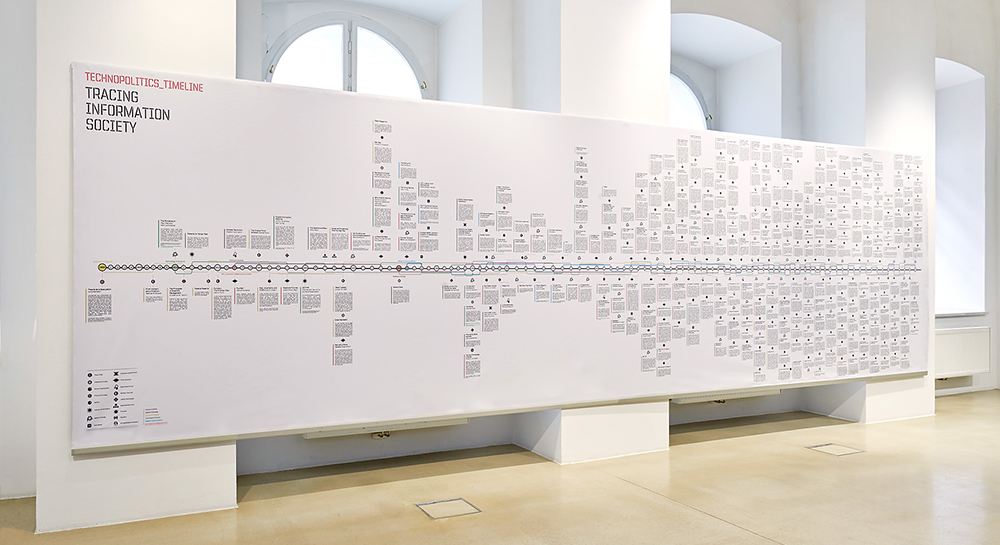
Tracing Information Society – A Technopolitics Timeline, 2015
Digitaldruck, Alurahmen, 700 x 200 cm
25 09 - 05 12 2015
Technopolitics Timeline @ SOCIAL GLITCH / Vienna
Eine Ausstellung im KUNSTRAUM NIEDEROESTERREICH
Herrengasse 13, 1010 Wien
NOVEMBER 11 2015
Technopolitics SALON @ SOCIAL GLITCH
Panel discussion (in English)
Technopolitics research group and invited experts, with open Q&A.
With: Noit Banai and Aneta Stojnić (invited experts) and the working group Technopolitics (Sylvia Eckermann, Doron Goldfarb, Armin Medosch, Gerald Nestler, Felix Stalder, Axel Stockburger, Matthias Tarasiewicz, Thomas Thaler and Ina Zwerger).
